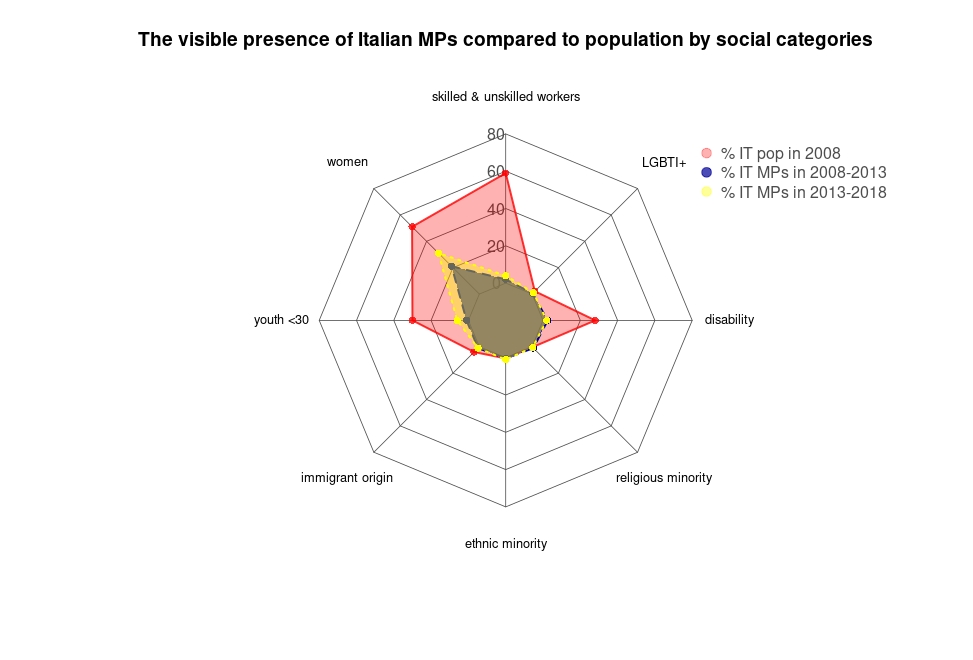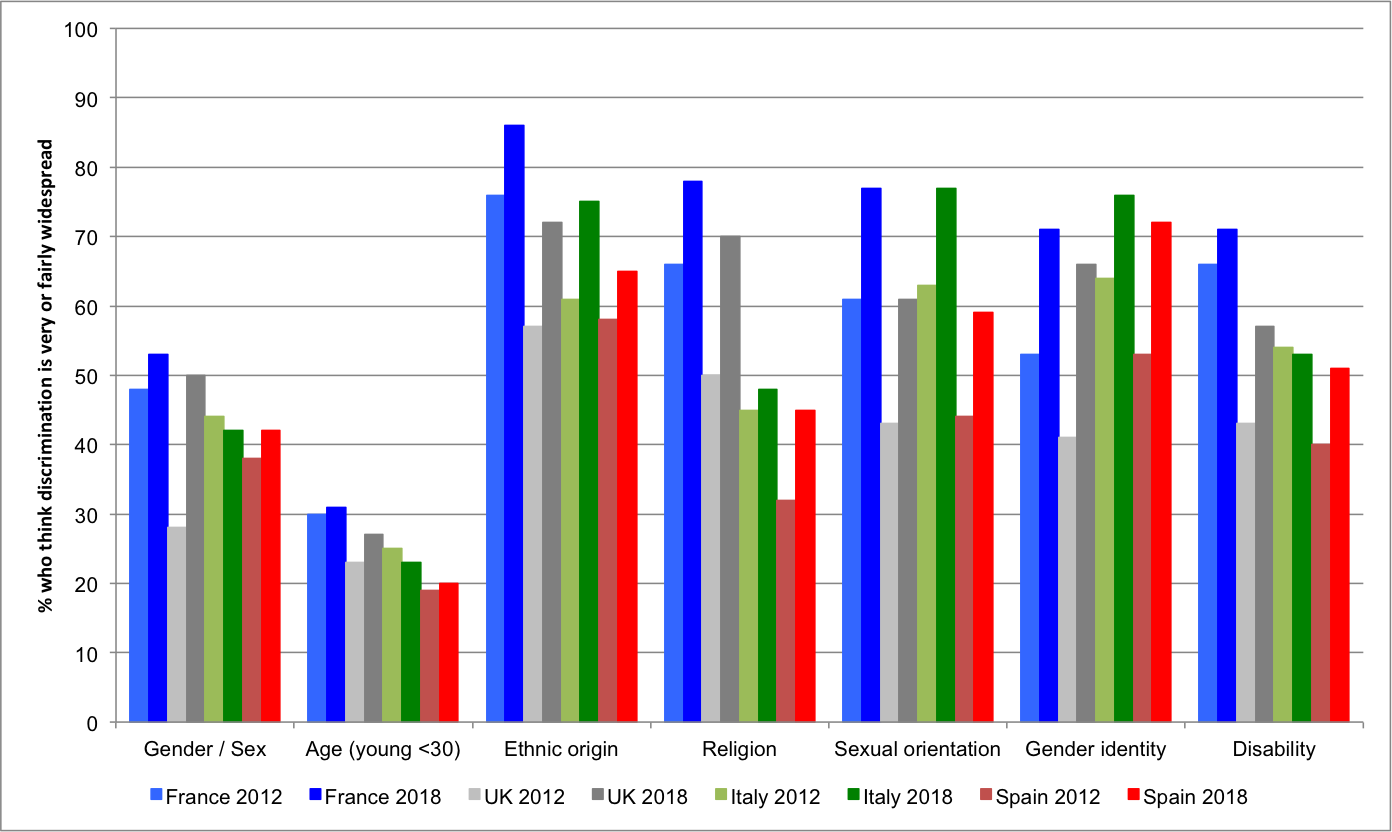Mapping the social risks of environmental transitions
cc959d0c%20(2)_057779834251719cb.jpg?1713452877)
 Actualité Sciences Po
Actualité Sciences Po
Matteo Mandelli is a postdoctoral researcher at LIEPP. He holds a doctorate in political science from the University of Milan and is a member of the board of the Sustainable Welfare and Eco-social Policy Network. His research focuses on just transition policies in Europe. At LIEPP, he is leading the project “Mapping the social risks of environmental transitions”.
- We tend to hear a lot about the difficulties States face to implement green transition policies but less about the social impact that these policies might have. Your project focuses on the eco-social risks that will arise following the implementation of climate change and green transition policies. Why?
Until now, most of the literature on climate policies and climate mitigation has really focused on the environmental aspect of these policies, but we are witnessing more and more that climate change and climate policies will create new social risks. New inequalities will arise as well as a new kind of injustice: people that are least responsible for environmental degradation and carbon emissions are expected to be most affected not only by environmental degradation but also by the policies created to cope with environmental degradation.
This becomes more evident when we consider some recent climate policies such as the Carbon Tax, which produces unequal outcomes. As these phenomena become more and more apparent, there is a need to introduce a Welfare State perspective of the green transition, which is what the study of Sustainable Welfare revolves around.
Eco-social risks represent a third wave of social risks within the Welfare State. The first ones were related to industrialization, the second ones to the shift to a post-industrial economy and a change in family structures in the 90s. Today, climate change is creating a new type of risks that the Welfare State is not yet designed to face.
We still have little knowledge about what these eco-social risks will be, and who will be most impacted. There are some hypotheses, but these risks are not yet defined and we do not have clear indicators that would allow us to evaluate their potential incidence.
We expect that they will create new forms of poverty, material deprivation and exclusion for marginalised communities. They will come directly from climate change and indirectly from the State’s responses to climate change through climate policies. It hence appears crucial to understand these risks to question the changing role of the Welfare State, but also to design efficient climate policies that can be socially just and, as a consequences, socially accepted and legitimate.
- In this project so far, have you been able to identify certain groups of the population that might be most impacted?
We expect that these eco-social risks will exacerbate existing disparities (making disadvantaged people more disadvantaged), especially when it comes to direct risks such as natural disasters. People who are most affected by environmental hazards are people who normally have access to infrastructure in poor condition and less financial means to deal with these disasters.
The indirect risks of climate change, which arise from regressive climate policies that generate a higher financial burden for lower and lower-middle income households if compared to richer ones, are expected to be distributed in a less obvious way, especially impacting people who are dependent on a carbon intensive lifestyle. For example, if a fuel tax is implemented, it will also impact some middle-class people who would not have been particularly vulnerable prior to the introduction of the carbon tax, but who depend on their car to work, to take part in social activities…
Identifying eco-social risks demands to look at pre-existing vulnerabilities, but also exposure to direct risks (naturel disasters) and dependence on a carbon intensive lifestyle. Other than exacerbating existing vulnerabilities, these new risks could change the distribution of vulnerabilities in the population, by making people who were not necessarily vulnerable before, vulnerable now.
Protest of the "'Yellow Vests" (Gilets Jaunes), France, 2018. (Source: Birdog Vasile-Radu/ Shutterstock)
- Are there different scenarios as to how European States might address these eco-social risks? Can we expect a response at the European level?
We are starting to witness the emergence of policy responses to eco-social risks at the European level. A good example is the European Green Deal, which promotes a just transition to a less carbon dependent economy, with the objective to “leave no one behind”.
The addition of a clear social objective to a European policy that organises the climate transition indicates that these risks are taken seriously. To reach this objective, new instruments have been created, such as the Just Transition Fund (which aims to support European regions that depend on carbon intensive industries) and the Social Climate Fund (created to address new vulnerabilities especially when it comes to energy and transport poverty.)
When it comes to responses at the National level, they will depend on national Welfare model. Different kinds of policies could be implemented to tackle energy poverty specifically, for example monetary transfers to compensate for raising bills, investing in the isolation of private buildings...
European Commissioners for the European Green Deal during a press conference, Belgium, 2020. (Source: Alexandros Michailidis / Shutterstock)
- As a member of the board of the Sustainable Welfare and Eco-social Policy Network, could you describe the different actions implemented by this network?
The network was created as the result of a fusion between two pre-existing networks of researchers, one that focused on European social policies, and one that focused on ecological economics. In September 2022 we combined these two networks to gather all scholars interested in socio-ecological questions and the role of the Welfare State in the climate crisis era. The network promotes different kinds of initiatives (research colloquiums, a mailing list and a Newsletter, a stakeholder roundtable where academics meet with civil society organizations, policy makers and bureaucrats to discuss topics related to sustainable welfare…). The aim is to promote activities and build a network between people interested in Eco-social Policies. On the 25th of April, an event co-organised with the Sustainable Welfare and Eco-social Policy Network will take place at Sciences Po, focusing on the Socio-Ecological dimension of the European Green Deal.
- At LIEPP, this research project is led within the Environmental policies and Socio fiscal policies research groups. How important is interdisciplinarity when it comes to the study of eco-social risks ?
Interdisciplinarity is inherent to the topic but it is interesting to see that the silos that we critically investigate in policymaking, namely the separation between the management of social policies and environmental policies, can also be found in the study of policies in academia. Environmental scholars and social policies scholars have different networks, publish in different journals and sometimes seem to speak different languages.
It is critical, and one of the aims of the Sustainable Welfare and Eco-social Policy Network, to build a bridge between the scholars of both disciplines. We need to find a common language to discuss eco-social risks that works within the traditions of both disciplines and to learn from the very rich traditions of both Welfare State researchers and Environmental policies researchers. They may have different analytical or theoretical frameworks but they need to learn from one another to better analyse policies and discuss environmental issues. Ultimately it is a great opportunity for each discipline to enrich itself and to break the silos that isolates researchers from each tradition.
- A Socio-Ecological Transition initiative (SET) recently launched at Sciences Po. What is the aim of this initiative?
SET was launched through the initiative of Bruno Palier, Anne-Laure Beaussier, Eloi Laurent, and myself. It is conceived as a collaboration between different laboratories of Sciences Po (CSO, CEE, OFCE, LIEPP, the AIRE programme and the Institute for environmental transformations) and aims to gather scholars who are interested in social issues and policies and environmental issues and policies to create a common research agenda and to stimulate the debate about these issues (through the organisation of seminars, events, informal dialogue..). On April 24th at LIEPP, SET will co-organise a seminar during which different research projects funded by MIRE will be presented.
Roundtable 'Imagining the future of evaluation'
5060.jpg?1713436962)
 eamesBot / Shutterstock
eamesBot / Shutterstock
LIEPP is pleased to convene the roundtable:
Imagining the future of evaluation
May, 16th. 4pm-6pm.
Location: Sciences Po, Amphithéâtre Simone Veil, 28 rue des Saints-Pères, 75007 Paris
Mandatory registration to participate in person.
Mandatory registration to participate via Zoom.
Abstract:
In this exceptional LIEPP event, five leaders and internationally acclaimed scholars in evaluation will reflect on the future of the field. What new methods and approaches should be promoted? How is evaluation different from social science methods applied to social and economic issues – and should it be any different? What are the major institutional and political challenges to the development of evaluation and the promotion of its use in policymaking and within civil society? What should be the role of evaluation in democracy, and what practical tools can it rely on to fulfil this role? These are some of the questions which will be addressed in this roundtable.
Presenters:
- Thomas D Cook, Professor Emeritus of Sociology, Northwestern University
- Sandra Mathison, Professor of Education, University of British Columbia
- Rebecca A. Maynard, Professor Emerita of Education and Social Policy, Penn Graduate School of Education
- Raymond Pawson, Emeritus Professor of Social Research Methodology, University of Leeds
- Laura R. Peck, Policy Evaluator, MEF Associates
Facilitator: Anne Revillard, Sciences Po, CRIS, LIEPP
Research-based initiatives to address gender-based violence in US and French universities
f935.jpg?1713368766)
 Cristian Storto / Shutterstock
Cristian Storto / Shutterstock
LIEPP's discriminations and category-based policies research group, Sciences Po, the CSO, the CEE and PRESAGE are pleased to convene the seminar:
Research-based initiatives to address gender-based violence in US and French universities
Wednesday 17th April 2024, 1.30 - 3.30 pm
Mandatory registration (for Sciences Po students or staff only)
Abstract:
In recent years, we have been witnessing a growing concern regarding gender-based and sexual violence on university campuses, particularly in the wake of the MeToo movement. This heightened focus has prompted various efforts to prevent and address campus-based violence. Faculty members have notably stepped up within their universities to drive transformative actions. This seminar provides an opportunity to discuss several such research-based initiatives, which are currently taking place in both the United States and France.
Speakers:
Monica J. Casper, Professor of Sociology at San Diego State University, Special Assistant to the President on Gender-Based Violence, Chair of the Blue Ribbon Task Force on Gender-Based Violence
Hélène Périvier, Economist at the French Economic Observatory, Director of Sciences Po's Gender Studies Programme (PRESAGE), PI for the SAFEDUC research project
Chloé Mour, Equality, LGBT+ Rights and Gender-based Violence Officer at the French Ministry of Higher Education and Research
Chair:
Florence Faucher, Sciences Po, CEE
Politiques d’exonérations sur les bas salaires: usages et effets potentiels

 HJBC / Shutterstock
HJBC / Shutterstock
LIEPP's Socio-fiscal policies research group is pleased to convene the seminar:
Politiques d’exonérations sur les bas salaires: usages et effets potentiels
April 23rd. 4.30pm-6pm.
Sciences Po, Salle du Conseil, 13 rue de l’Université, 75007 Paris.
Mandatory registration to participate in person.
Mandatory registration to participate via Zoom.
Speakers:
- Jérôme Gautié (Université Paris 1)
- Frédéric Lerais (IRES)
Report:
Politiques d’exonérations sur les bas salaires: usages et effets potentiels, Rapport final AO-CFDT, 22 janvier 2024
Abstract:
Quelles sont les incidences sur la structure de l’appareil productif et les qualifications des politiques d’exonération sur les bas salaires ? Telle est la question qui a été posée aux auteurs du rapport par la CFDT, qui viendront présenter leurs travaux lors de ce séminaire.
L’objectif de ce rapport est double ; d’éclairer les effets potentiels des exonérations sur les salaires, la formation, les qualifications et plus largement les modes de production, ainsi que d’apprécier la mesure dans laquelle les représentants syndicaux peuvent exercer un droit de regard sur l’usage de ces exonérations.
Le rapport dresse deux constats. D’abord, celui d’un déficit d’information et d’une difficulté d’appréhension des exonérations de cotisations sociales au niveau des branches comme des entreprises, avec une difficulté particulière dans les entreprises multi-établissements. Deuxièmement, les auteurs s’interrogent sur les formes variées d'optimisation qui peuvent avoir des effets sur les carrières salariales, les relations d’emploi (incitation à l’externalisation) et les formes de rémunération (incitations à développer les composantes défiscalisées et plus largement à contourner l’évolution du salaire de base).
After Opium: the braided meanings of drug addiction and recovery in colonial Vietnam

 "Manufacture de l'Opium à Saigon" (1904). Manhhai / Flickr
"Manufacture de l'Opium à Saigon" (1904). Manhhai / Flickr
LIEPP's Health Policies research group is pleased to convene the seminar:
After Opium: the braided meanings of drug addiction and recovery in colonial Vietnam
April 23rd. 5pm-6pm.
Sciences Po. Salle du LIEPP. 1 place Saint Thomas d'Aquin. 75007 Paris.
Mandatory registration to participate in person.
Mandatory registration to participate via Zoom.
Speaker:
Claire Edington (University of California – San Diego)
Abstract:
Rather than adopt a timeless or universal understanding of the “addict” or “addiction” – a common tendency among historians of the opium trade – in this talk, I instead examine its late colonial iteration in Vietnam as the product of multiple strands braided together: the new psychiatric underpinnings of addiction science, colonial ideologies of race and mental health, as well as Vietnamese understandings of illness and the body, and worries about addiction as a threat to any independent, postcolonial future. I argue that French and Vietnamese views on addiction in the interwar years developed in tandem, at times intersecting, even as they pulled from different epistemologies and politics to frame the risks of drug use, both for the self and society at large. By the late 1930s, they would draw together to produce a new class of addicts, a relatively restricted group, defined by their pathological dependence on drugs and their social exclusion. This was not only a state-directed project, but a popular, Vietnamese one as well, which would persist well past the end of colonial rule.
Presentation of the book «La Révolution obligée»
6e5b.jpg?1712145458)
 Damien Grenon
Damien Grenon
L'École urbaine de Sciences Po and LIEPP's Environmental policies research group are pleased to convene the event:
Présentation de l'ouvrage "La Révolution obligée. Réussir la transformation écologique sans dépendre de la Chine et des Etats-Unis"
April 3rd. 5pm-7pm.
Sciences Po, Salle H204, 28 rue des Saints-Pères, 75007 Paris.
The even will take place in French.
Ouvrage paru en février 2024 aux éditions Allary, écrit par David Djaïz et Xavier Desjardins. La présentation de l’ouvrage par les auteurs sera suivie de débats et échanges avec la salle.
La modération sera assurée par Charlotte Halpern, chercheuse au Centre d'études européennes et de politique comparée (CEE) et codirectrice de l'axe Politiques environnementales du LIEPP.
About the book:
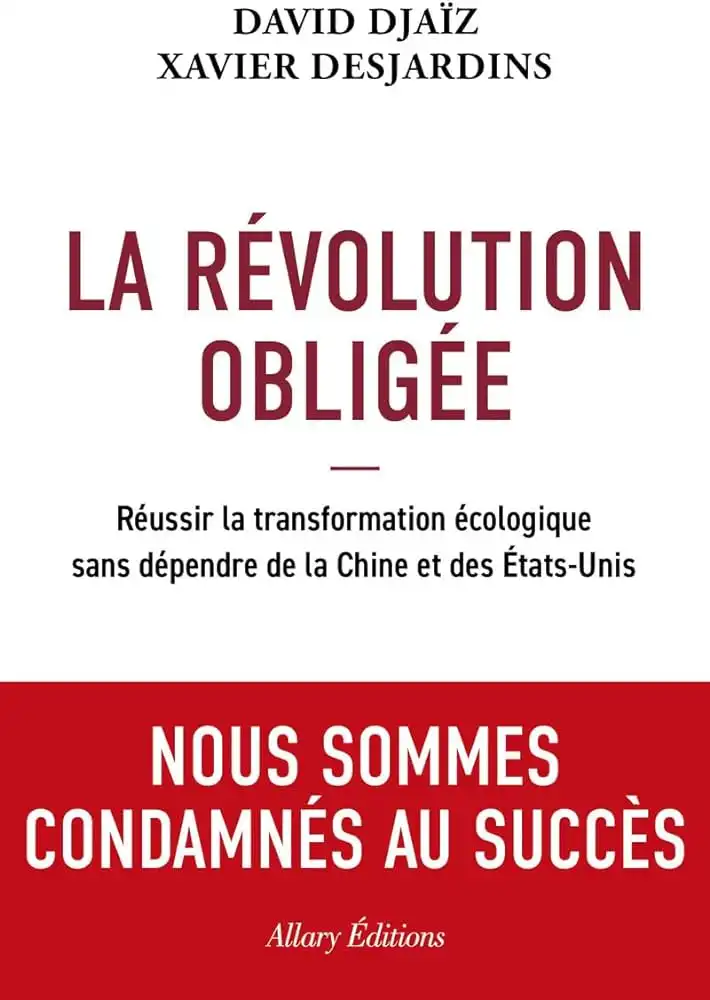 La transformation écologique n’a pas commencé. Malgré les innovations technologiques, les changements d’habitudes, les promesses des entreprises, les plans étatiques ou encore les COP, le monde, en 2023, n’a jamais autant consommé d’énergie fossile. Pourquoi tant de discours pour si peu de résultats ? N’y a-t-il rien de concret derrière ce verdissement qu’une majorité d’organisations et de citoyens appellent de leurs vœux ?
La transformation écologique n’a pas commencé. Malgré les innovations technologiques, les changements d’habitudes, les promesses des entreprises, les plans étatiques ou encore les COP, le monde, en 2023, n’a jamais autant consommé d’énergie fossile. Pourquoi tant de discours pour si peu de résultats ? N’y a-t-il rien de concret derrière ce verdissement qu’une majorité d’organisations et de citoyens appellent de leurs vœux ?
La Chine et les États-Unis ont déjà amorcé un tournant industriel spectaculaire. Ils s’imposent en champions de l’économie verte et organisent notre dépendance.
La France et l’Europe, elles, multiplient les ambitions et normes environnementales qui provoquent un retour de bâton populiste et anti-écologique. Nous cherchons encore comment transformer nos façons de produire, de consommer, d’habiter, de nous déplacer, de nous alimenter. Sans faire monter les colères. Tout en réaffirmant notre puissance industrielle et politique.
Nous avons moins de trente ans pour accomplir notre transformation écologique. Ce livre donne le mode d’emploi pour y parvenir.
About the authors:
 David Djaïz est essayiste et enseignant à Sciences Po. Il est l'auteur de Slow Démocratie (prix de l’Académie des sciences morales et politiques, prix étudiant du Livre Politique-LCP, finaliste du prix du Livre Politique, du prix du Mémorial – Grand Prix littéraire d’Ajaccio et du prix Pétrarque de l’essai France Culture-Le Monde) et de Le nouveau modèle français (prix d'Économie de l'Académie nationale de Bordeaux).
David Djaïz est essayiste et enseignant à Sciences Po. Il est l'auteur de Slow Démocratie (prix de l’Académie des sciences morales et politiques, prix étudiant du Livre Politique-LCP, finaliste du prix du Livre Politique, du prix du Mémorial – Grand Prix littéraire d’Ajaccio et du prix Pétrarque de l’essai France Culture-Le Monde) et de Le nouveau modèle français (prix d'Économie de l'Académie nationale de Bordeaux).
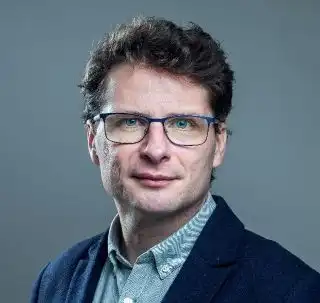 Xavier Desjardins est professeur en urbanisme et Aménagement de l'espace à Sorbonne Université. Il est chercheur au sein de l'équipe Médiations, Science des lieux, science des liens. Ses travaux de recherche portent sur les liens entre urbanisme et mobilité, les politiques territoriales d’aménagement ainsi que les concepts et méthodes de l’urbanisme. Ses terrains de recherche sont principalement situés en Europe de l’Ouest. Il est également consultant en matière de stratégies et projets territoriaux.
Xavier Desjardins est professeur en urbanisme et Aménagement de l'espace à Sorbonne Université. Il est chercheur au sein de l'équipe Médiations, Science des lieux, science des liens. Ses travaux de recherche portent sur les liens entre urbanisme et mobilité, les politiques territoriales d’aménagement ainsi que les concepts et méthodes de l’urbanisme. Ses terrains de recherche sont principalement situés en Europe de l’Ouest. Il est également consultant en matière de stratégies et projets territoriaux.
LIEPP IN THE MEDIA - MARCH 2024
%20(1)%20(1)1a6a%20(1)75a1d902.jpg?1711447416)
 Actualité Sciences Po
Actualité Sciences Po
Socio-fiscal policies research group
Travail : la perspective du « care », article citant le projet "Que sait-on du travail ?" publié par Le Monde le 18/03/2024
« Que sait-on du travail ? » : le « care » pris au piège de la dualité, article citant le projet "Que sait-on du travail ?" publié par Le Monde le 18/03/2024
Faut-il maintenir un salaire minimum, émission de RFI avec Clément Carbonnier du 11/03/2024
« Que sait-on du travail ? » : des « normes viriles » persistent en entreprise, article citant le projet "Que sait-on du travail ?" publié par Le Monde le 11/03/2024
Le RN est-il vraiment le parti des travailleurs ?, émission de France Culture avec Bruno Palier du 11/03/2024
Plan d'économies: "Il n'y a pas d'urgence", pour l'économiste Michaël Zemmour, émission de BFMTV avec Michaël Zemmour du 06/03/2024
« Le télétravail fait-il du bien aux salariés ? Ce que l’on a appris avec le Covid-19 », article citant le projet "Que sait-on du travail ?" publié par Le Monde le 04/03/2024
« Que sait-on du travail ? » : deux jours de télétravail estimés à 5 % d’augmentation de salaire au minimum, article citant le projet "Que sait-on du travail ?" publié par Le Monde le 04/03/2024
Qui doit payer les salaires ?, article de Clément Carbonnier publié par Alternatives Economiques le 27/04/2024
« Que sait-on du travail ? » : l’inertie de la conflictualité au travail, article citant le projet "Que sait-on du travail ?" publié par Le Monde le 26/02/2024
« Capital contre travail : le retour ? », article citant le projet "Que sait-on du travail ?" publié par Le Monde le 26/02/2024
Taxer les riches ou faire jouer la concurrence ?, chronique d'Etienne Wasmer publiée par Les Echos le 22/02/2024
Investir dans la capacité d’apprentissage de l’organisation pour la double transition digitale et écologique, article citant le projet "Que sait-on du travail ?" publié par Le Monde le 19/02/2024
« Que sait-on du travail ? » : les huit dimensions de la force d’une entreprise, article citant le projet "Que sait-on du travail ?" publié par Le Monde le 19/02/2024
Evaluation of democracy research group
Penser, enfin, le pluralisme des médias, tribune de Julia Cagé publiée par Le Monde le 15/02/2024
Sens public, émission de Public Sénat avec Elisa Chelle du 15/02/2024
La décision du Conseil d’État est une excellente nouvelle pour le respect du pluralisme, article citant les propos de Julia Cagé publié par l'Humanité le 14/02/2024
Educational policies research group
Les différences d'orientation entre les filles et les garçons sont "moins nettes dans les milieux favorisés", entretien avec Agnes Van Zanten publié par l'Etudiant le 08/03/2024
700 millions d’économie sur l'école ?, émission de France Culture avec Elise Huillery du 26/02/2024
Les émotions, « Apprendre à apprendre, avec Grégoire Borst », émission de France Culture avec Grégoire Borst du 22/02/2024
Discriminations and category-based policies research group
Comment défendre les intérêts des femmes au travail ?, émission de France Culture avec Anne Boring du 08/03/2024
« 70% du travail domestique et familial est réalisé par les femmes », entretien avec Hélène Périvier publié par La Tribune le 08/03/2024
LIEPP Newsletter - March 2024
a403.png.crop_display_0b4db%20(1)47ba.jpg?1711383377)
 Actualité Sciences Po
Actualité Sciences Po
To access the latest news from LIEPP, read the Newsletter.
Retirement and COVID-19 vaccination: evidence from a fuzzy regression discontinuity design

 DG FotoStock / Shutterstock
DG FotoStock / Shutterstock
LIEPP's Health Policies research group is pleased to convene the seminar:
Retirement and COVID-19 vaccination: evidence from a fuzzy regression discontinuity design
April 3rd. 11.30am-12.30pm.
Sciences Po. Salle du LIEPP. 1 place Saint Thomas d'Aquin. 75007 Paris.
Mandatory registration to participate in person.
Mandatory registration to participate via Zoom.
Speaker:
Ilias Kyriopoulos (LSE)
Abstract:
The transition to retirement is considered one of life’s most significant events, bringing about substantial changes to an individual’s preferences and daily life. This study considers behaviour changes toward COVID-19 vaccination following retirement. Using data from the Survey of Health, Ageing, and Retirement in Europe (SHARE) and a fuzzy regression discontinuity design, we examined the impact of retirement on uptake of COVID-19 vaccinations. After considering potential endogeneity concerns, our analysis reveals that compared to individuals of similar age who have not yet retired, retirees were less inclined to get vaccinated. Our findings are consistent across various estimation methods and model specifications. Additionally, we present evidence suggesting that changes in social interactions following retirement may offer a plausible explanation for this phenomenon. Specifically, retirement results in decreased frequency of social interactions with neighbours, friends, and colleagues. These findings underscore the necessity for public health and vaccination campaigns targeted at retirees.
Comment verser de l'argent aux pauvres ? Comment l'économiste peut-il répondre à la question normative ?

 Oleg Elkov / Shutterstock
Oleg Elkov / Shutterstock
LIEPP's Socio-fiscal policies research group is pleased to convene the seminar:
Comment verser de l'argent aux pauvres ? Comment l'économiste peut-il répondre à la question normative ?
April 3rd. 4.30pm-6pm.
Sciences Po, Salle K011, 1 place Saint Thomas d'Aquin, 75007 Paris.
Mandatory registration to participate in person
Mandatory registration to participate via Zoom
Speaker:
Guillaume Allègre (OFCE - Sciences Po)
Abstract:
La collectivité doit-elle verser de l’argent aux personnes sans revenus? Doit-elle verser cette aide à ceux qui pourraient travailler mais ne travaillent pas volontairement? Doit-elle verser cette aide à tous sans distinction, aidés y compris? Doit-elle verser cette aide aux individus ou aux foyers? L’assistance sociale fait ainsi l’objet de dilemmes, conséquences de rationalités concurrentes. Comment trancher?
La réponse de l'ouvrage Comment verser de l'argent aux pauvres ? (Presses universitaires de France) est qu’il faut débattre des principes de justice sociale et défendre des droits hiérarchisés, en particulier le droit à des moyens convenables d’existence. En cherchant l’optimal, la discipline économique n’est trop souvent pas convaincante. En mettant l’accent sur les droits, cet ouvrage plaide pour un vrai revenu minimum d’insertion, le plus élevé possible, luttant ainsi contre la trappe à pauvreté qui est la pauvreté elle-même.
Un plaidoyer pour la justice et le pragmatisme en économie, en défense des droits économiques des plus pauvres.
What If The Basis For Policy Decisions Is Misleading? The Case Of Perceived Discrimination Of LGBTQ+

 Alexandros Michailidis / Shutterstock
Alexandros Michailidis / Shutterstock
LIEPP's Discriminations et category based policies research group is pleased to convene the seminar:
What If The Basis For Policy Decisions Is Misleading?
The Case Of Perceived Discrimination Of LGBTQ+
Thursday March 21st, 12.30pm-2pm.
Location: Sciences Po, Salle du LIEPP, 1 place Saint Thomas d'Aquin, 75007 Paris
Mandatory registration to participate in person.
Mandatory registration to participate via Zoom.
Speaker:
- Katharina Meitinger (Utrecht University)
Abstract:
Policy makers frequently base their decision on survey measures, such as the Eurobarometer or the European Social Survey. However, not all survey measures are valid, reliable and comparable. LGBTQ+ rights received increasing attention from policy makers in recent years because they address discrimination, stigmatisation, and victimisation problems. LGBTQ+ policies differ within Europe. Political and socio- cultural barriers against LGBTQ+ people are still evident in Central and Eastern European countries, whereas the support is higher in North European countries. However, Eurobarometer data show an empirical puzzle: respondents from countries that are known for extensive discrimination towards homosexuals indicated that they are not aware of discrimination against homosexuals at the workplace. At the same time, in countries that are characterized by relative tolerance and legal equality regarding homosexuals, respondents mention more frequently discriminatory behavior. This mismatch between reality and reported perceived discrimination might lead to misleading policy recommendations. Potential explanations for this discrepancy might be that respondents across countries adopt different perspectives, refer to different policies, think of different groups (e.g., gay or lesbians), lack awareness of discriminatory behavior or respond socially desirable.
This seminar provides an overview of relevant measures of discrimination of LGBTQ+ in cross-national surveys of the general population (e.g., Eurobarometer, European Social Survey, World Value Survey), discusses relevant methodological issues and potential solutions. It also discusses different approaches to assess the cross-national performance of measures, such as web probing and measurement invariance tests.
LIEPP NEWSLETTER - FEBRUARY 2024
a403.png.crop_display_0b4dbb3a9.jpg?1711382873)
 Actualité Sciences Po
Actualité Sciences Po
To access the latest news from LIEPP, read the Newsletter.
LIEPP IN THE MEDIA - FEBRUARY 2024
%20(1)%20(1)1a6a%20(1)e9f1.jpg?1713347178)
 Actualité Sciences Po
Actualité Sciences Po
Socio-fiscal policies research group
« Que sait-on du travail ? » : les assistantes maternelles, un métier où l’on « n’arrête jamais », article citant le projet "Que sait-on du travail ?" publié par Le Monde le 05/02/2024
« Que sait-on du travail ? » : 40 % des cadres sont des « planneurs », article citant le projet "Que sait-on du travail ?" publié par Le Monde le 05/02/2024
Que reste-t-il de l'assurance chômage ?, émission de France Culture avec Bruno Palier du 05/02/2024
Pourquoi les salaires au-dessus du smic augmentent-ils si peu alors que le chômage baisse ?, tribune de Bruno Palier publié par Le Monde le 01/02/2024
Supprimer l’allocation de solidarité spécifique va appauvrir encore les précaires sans emploi, article de Michaël Zemmour, publié par Alternatives Economiques le 31/01/2024
Dire « oui » ou « non » à l’ordinateur : retour sur la numérisation du service public de l’emploi, article citant le projet "Que sait-on du travail ?" publié par Le Monde le 29/01/2024
« Que sait-on du travail ? » : les algorithmes au cœur de la relation entre les demandeurs d’emploi et leurs conseillers, article citant le projet "Que sait-on du travail ?" publié par Le Monde le 29/01/2024
La transformation des organisations du travail en France, un défi qui reste à relever, article citant le projet "Que sait-on du travail ?" publié par Le Monde le 19/01/2024
« Que sait-on du travail ? » : La France peine à développer les organisations apprenantes, article citant le projet "Que sait-on du travail ?" publié par Le Monde le 19/01/2024
Une semaine en France avec Bruno Palier, émission de France Inter avec Bruno Palier du 19/01/2024
Loi immigration: la «préférence nationale», risque majeur pour les étrangers précaires, article citant les travaux d'Elvire Guillaud et Michaël Zemmour publié par Arab News le 19/01/2024
Taxer tout ce qui bouge, pas le reste, chronique d'Etienne Wasmer publiée par Les Echos le 18/01/2024
Educational policies research group
Apprendre à apprendre, émission de France Culture avec Grégoire Borst du 9/02/2024
Écrans pour les tout-petits : éduquer plutôt qu’interdire, est-ce la solution ?, article citant les propos de Grégoire Borst publié par Sud Ouest le 04/02/2024
Les bienfaits de l'écoute, ou comment écouter l'autre dans une société défouloir ?, émission de France Inter avec Grégoire Borst du 31/01/2024
Sommeil : comment aider mon ado à retrouver un rythme, article citant les travaux de Grégoire Borst publié par Femina le 19/01/2024
Excellence, valeurs, entre-soi : pourquoi les parents d'élèves choisissent l'enseignement privé, article citant les propos d'Agnes Van Zanten publié par France Culture le 30/01/2024
Health policies research group
Sur qui doit peser l'augmentation du coût de la vie ?, émission de France Culture avec Hélène Périvier du 30/01/2024
Baisse de la natalité : "Ce n'est pas parce qu'on modifie le congé parental qu'on va inverser la tendance", émission de France Info avec Hélène Périvier du 17/01/2024
Environmental policies research group
Le ministère de l’Environnement se retrouve-t-il affaibli par le gouvernement Attal ?, article citant les propos de Charlotte Halpern publié par Challenges le 17/01/2024
Evaluation of democracy research group
Comment une chaîne devient-elle de gauche ou de droite ?, article citant les propos de Julia Cagé publié par l'Ina le 18/01/2024
Research group "Trajectory of poverty"

 bluedog studio / Shutterstock
bluedog studio / Shutterstock
LIEPP's 'Trajectory of poverty' research group is devoted to presenting work on measuring poverty in all its dimensions, particularly from a longitudinal perspective, and to studying public policies whose aim or consequence is to reduce or exacerbate poverty.
The group brings together researchers from universities and government departments in economics, sociology and political science. The work presented is usually at a preliminary stage.
It meets every six weeks on Friday mornings at LIEPP. The meetings are held in French.
Upcoming sessions :
- 29/03/2024 : Évolutions et déterminants de la critique des bénéficiaires de l'État social dans la France contemporaine : tentative d'opérationnalisation quantitative. Intervenant : Pierre Blavier (Clersé, Université de Lille / LIEPP)
Past sessions:
2024
- 16/02/2024 : Approche comparative de la transition vers la pauvreté et le bien-être (Allemagne, France, Royaume Uni et Australie). Intervenante : Eleonore Richard (PSE)
- 12/01/2024: Le marché du travail au fil des générations. Intervenant : Henri Martin (OFCE, INSEE)
2023
- 17/11/2023: Reliance: les effets complexes d'un programme d'accompagnement à la reprise d'activité pour des familles monoparentales au rsa de longue durée. Intervenant : Arthur Heim (CNAF)
- 29/09/2023: La perception des inégalités économiques par différents groupes sociaux, portée et limite. Intervenants : Célia Bouchet (CEET, CNAM) et Nicolas Duvoux (CRESPPA-LabToP, Université Paris 8)
LIEPP general call for projects 2024
_1aa87.jpg?1713368877)
 G-Stock Studio / Shutterstock
G-Stock Studio / Shutterstock
LIEPP general call for projects 2024
The Laboratory for Interdisciplinary Evaluation of Public Policies (LIEPP) is launching a new general call for projects to strengthen the activities of its research groups. This call for projects is part of the redeployment of the LIEPP in partnership with Université Paris Cité.
This call for projects (AAP) aims to support a wide range of activities in public policy evaluation in connection with LIEPP's six thematic research groups (discriminations and category-based policies, evaluation of democracy, educational policies, environmental policies, socio-fiscal policies, health policies) or in a cross-cutting way around evaluation methods and approaches.
This call is open to all disciplines that can contribute to thinking about public action (data science, law, economics, geography, history, psychology, public health, education sciences, management sciences, environmental sciences, life sciences, political science, sociology, etc.).
Thematic scope of the call for projects: evaluation of programmes and interventions, evaluation of public policies: educational, social, fiscal, environmental, health, anti-discriminatory and categorical policies (e.g. gender, disability, migration policies), evaluation of democracy, theoretical and methodological approaches to evaluation.)
Eligibility: The call is open to all full researchers, doctoral students and post-doctoral students whose main affiliation is with a Sciences Po or Université Paris Cité laboratory.
Type of possible projects:
✔ Networking (events/workshops of existing networks or support for the creation of a new seed funding network),
✔ Co-financing of ongoing projects,
✔ Support for publication,
✔ Short research stays.
Maximum amount of funding requested : 10 000 €
Duration: Expenditure must be incurred by the end of December 2024 at the latest.
How to apply :
We recommend that those interested in this call for projects contact the LIEPP team [andreana.khristova@sciencespo.fr or liepp@sciencespo.fr] as soon as possible to inform them of their wish to submit a project, by sending a short message with the subject [Call for LIEPP projects]. The LIEPP team will be on hand to answer any questions they may have and to help them set up their project (particularly in terms of budget).
Projects may be written in French or English.
Projects must be submitted by 15 March 2024 at the latest, to the following address: liepp@sciencespo.fr with the subject [appel à projet LIEPP]. Incomplete or late applications will not be considered.
Results will be announced on 5 April 2024.
Attached documents :
- Full text of the call for projects (pdf) [FR]
- Application form (word) [FR]
LIEPP IN THE MEDIA - JANUARY 2024
%20(1)%20(1)45a9.jpg?1711382632)
 Actualité Sciences Po
Actualité Sciences Po
Socio fiscal policies research group
Les métiers du secteur médico-social, sous-payés et dominés par le temps partiel contraint, article citant le projet "Que sait-on du travail ?" publié par Le Monde le 15/01/2024
Les métiers du vieillissement, essentiels et pourtant insoutenables, article citant le projet "Que sait-on du travail ?" publié par Le Monde le 15/01/2024
Comment instaurer un minimum social pour tous les jeunes ?, entretien avec Tom Chevalier publié par l'Observatoire des Inégalités le 12/01/2024
La taxe foncière est-elle injuste? Réflexions sur la richesse immobilière, article citant les propos d'Etienne Wasmer publié par Telos le 10/01/2024
Reconnaître le travail pour établir l’égalité salariale femmes-hommes : le cas des sages-femmes, article citant le projet "Que sait-on du travail ?" publié par Le Monde le 08/01/2024
La loi sur l’immigration rompt avec les principes de la Sécurité sociale, tribune d'Elvire Guillaud et Michaël Zemmour publiée par Le Monde le 03/01/2023
Immobilier: faut-il (encore plus) taxer les propriétaires ?, article citant les travaux de Monserrat Botey et Guillaume Chapelle publié par Europe 1 le 29/12/2023
Baisse de charges : l'exécutif cherche la bonne formule pour que le travail paye mieux, article citant les travaux d'Etienne Wasmer publié par Les Echos le 29/12/2023
La rupture de la loi immigration est évidente sur les allocations familiales, entretien avec Michaël Zemmour publié par l'Opinion le 21/12/2023
L'intensification du travail, principale suspecte de la dégradation de la santé des salariés, article citant le projet "Que sait-on du travail ?" publié par Le Monde le 18/12/2024
Le verdissement des emplois, conditionné à des mutations du travail, article citant le projet "Que sait-on du travail ?" publié par Le Monde le 11/12/2024
Le lean à la française dans l’aéronautique : management technocratique et faiblesse du dialogue social, article citant le projet "Que sait-on du travail ?" publié par Le Monde le 04/12/2024
Associer les salariés au management est profitable à l’entreprise, article citant le projet "Que sait-on du travail ?" publié par Le Monde le 04/12/2024
Le modèle économique et social qui s’est mis en place en France après la seconde guerre mondiale a vécu, tribune de Bruno Palier publiée par Le Monde le 01/12/2023
Evaluation of democracy research group
Concentration des médias : l'actionnaire doit-il nommer le directeur de la rédaction ?, article citant les travaux de Julia Cagé publié par Marianne le 02/01/2024
Pour sortir des analyses fourre-tout sur le “populisme”, il faut allier les leçons de l’économie politique à celles des études électorales, tribune de Julia Cagé publiée par Le Monde le 22/12/2023
Rejet de la loi sur l’immigration : une crise prévisible et fondamentale, article d'Emiliano Grossman publié par The Conversation le 18/12/2023
L’alternance politique fait progresser le débat démocratique, émission de France Inter avec Julia Cagé, du 16/12/2023
Jérôme Fourquet face à Thomas Piketty et Julia Cagé : dis-moi d’où tu votes, je te dirai qui tu es, article citant les propos de Julia Cagé publié par Philosophie Magazine le 30/11/2023
Educational policies research group
Usage des écrans par les enfants : un groupe d’experts pour faire des propositions à Emmanuel Macron, article citant les travaux de Grégoire Borst publié par Le Monde le 17/01/2024
Les groupes WhatsApp de parents, cauchemar des enseignants ?, article citant les travaux d'Agnes Van Zanten publié par Télérama le 22/12/2023
Parcoursup : face à l'angoisse des élèves, le marché du coaching de l'orientation se développe, article citant les travaux d'Anne-Claudine Oller publié par France Info le 19/12/2023
Éduquer n’est pas qu’une affaire d’opinion, entretien avec Grégoire Borst publié par Cerveau&Psycho le 19/12/2023
Les groupes de niveau viennent percuter la motivation et l’estime de soi, et donc la réussite scolaire, entretien avec Elise Huillery et Yann Algan publié par Le Monde le 17/12/2023
Discriminations and category-based policies research group
Pouvoir d’achat : «A chaque fois, ce sont les ménages les plus précaires qui encaissent l’inflation», entretien avec Hélène Périvier publié par Libération le 12/01/2024
Mort de Nahel à Nanterre : six mois après, des élus ont l’impression de « danser sur un volcan », article citant les propos de Marco Oberti publié par Ouest France le 30/12/2023
Environmental policies research group
Le ministère de l’Environnement se retrouve-t-il affaibli par le gouvernement Attal ?, article citant les propos de Charlotte Halpern publié par Challenges le 17/01/2024
France 2030, entretien avec Charlotte Halpern publié par Le Gouvernement le 08/12/2023
Health policies research group
Nous devons soigner toutes les personnes avec la même conscience, entretien avec Anne-Laure Féral-Pierssens publié par Les Surligneurs le 20/12/2023
Migrant Farmworker Injury: Temporality and Eventfulness

 University of California Press , CNRS Editions, Dedovstock/Shutterstock
University of California Press , CNRS Editions, Dedovstock/Shutterstock
LIEPP and the Centre for Research on social InequalitieS are pleased to convene the event:
Migrant Farmworker Injury: Temporality and Eventfulness
with Professor Seth M. Holmes. Cultural and medical anthropologist, Physician. University of California, Berkeley.
Thursday February 8th, 5 p.m. - 7 p.m.
Location: Sciences Po, LIEPP, room C210/ Salle d'Innovation, 75007 Paris
How do social structures and social hierarchies impact bodies, health, injury, and disease for different categories of people?
How do social hierarchies and socially structured health assymetries come to be understood as normal and natural in society and in medicine? And when are they confronted or resisted?

The Centre for Research on social InequalitieS and the Laboratory for Interdisciplinary Evaluation of Public Policies are pleased to invite Professor Seth Holmes, anthropologist and physician at the University of California at Berkeley. During his talk, Professor Holmes will share with us some of his original ethnographic work, partly explained in the book Fresh Fruit, Broken Bodies: Migrant Farmworkers in the United States, recently updated and published by the University of California Press (2nd ed. nov. 2023). This work has been translated in French by CNRS Editions (Fruits frais, corps brisés: Les ouvriers agricoles migrants aux États-Unis).
Professor Holmes explores the ways in which social differences come to count – and be counted – in various senses. His main problematics are the gaze, racialization and racism; the subjectivation of the health professional and the embodied production of the clinical and epidemiological gaze; the legitimation, normalization and naturalization of social inequality.
He shared the daily life, suffering and resistance of Mexican migrants in the United States. He treked with his companions clandestinely through the desert into Arizona, lived with Indigenous families in the mountains of Oaxaca State and in farm labor camps. Exploited by the contemporary food system he planted and harvested corn, picked strawberries, and accompanied sick workers to the hospitals.
During this talk, Professor Holmes will expand on his experience and discuss ths various ways in which social inequities come to be perceived as normal in society and in health care.
Politics of deservedness: the case of on-demand food delivery couriers
cc959d0c%20(2)_05a28.jpg?1707400550)
 Actualité Sciences Po
Actualité Sciences Po
Meng-Hsuan Chou is an Associate Professor and the Provost’s Chair in Public Policy and Global Affairs at Nanyang Technological University Singapore, where she joined as a Nanyang Assistant professor.
Her research focuses on the transformation of the state through inter-state and inter-regional policy cooperation in areas of contemporary salience such as migration, academic mobility, higher education, and food. During her stay at LIEPP, Hsuan worked and held a seminar on a new research project looking into the politics of “deservedness” in the on-demand food delivery sector.
- In what context do food delivery couriers currently work?
We are in an age in which food delivery couriers are a common feature in large cities. We can see how they zoom through roads and sidewalks to deliver, sometimes or often against the flow of traffic. Speed and risk define their mobility. If we are those dodging food delivery couriers, we may feel concerned about how their speed could compromise our safety. If we are those waiting for food delivery couriers at home, at the office, or at the park, we understand and may even appreciate how quickly they arrive. Regardless of our positions, we do not usually consider the additional costs of this speed and convenience for our societies. Afterall, as consumers we pay for the delivery service and expect a corresponding return. But there is a growing body of research that tells us about the discrimination food delivery couriers experience as part of their daily work. This discrimination is costly for our societies, and it is important that we address it.
This discrimination appears in different ways. It is useful to begin with an important distinction: most food delivery couriers around the world are considered contract workers. Other terms used to describe their employment status include temporary workers, part-time workers, and freelancers. By not being categorised as employees, food delivery couriers do not have access to the benefits and protection commonly offered to employees. The common reason for categorising food delivery couriers as non-employees is that they do not work full-time and therefore are assumed to have the flexibility that employees do not. Existing research has shown that this assumption does not reflect the reality of contemporary food delivery couriers, who often work full-time and under precarious working conditions.
The second way that food delivery couriers experience discrimination is unique to our age: it is algorithmic. Observers and scholars have coined various terms to describe the relationship between delivery apps and couriers: “algorithmic management”, “algorithmic control”, and “new sweatshops”. What these terms attempt to describe is an exploitative relationship between the employers and food delivery couriers. This occurs in multiple simultaneous ways including, for instance, information asymmetry, gamification, and automated notifications. It is easy to become a food delivery courier, but it is difficult to determine one’s earnings on a regular basis because companies design algorithms to prioritise or minimise certain factors in real time. Similar performance (e.g., in terms of hours, distance, deliveries) may not generate similar earnings. Indeed, in a study of food delivery couriers in Brazil, it was found that couriers earned less during the COVID-19 pandemic despite working on average 9-12 hours per day.
Other ways that food delivery couriers face discrimination can be identified when we look at the profiles of those who work as couriers. We know from existing research that food delivery couriers tend to be young males who are migrants, international students, or new citizens. What these individuals have in common is their general reluctance to seek redress for their working conditions, even when they are exploited. This could be due to a variety of reasons. For instance, couriers may have comparatively poorer linguistic skills of the host country and are consequently unwilling to speak out. Food delivery couriers, especially new international students, may be unaware of the host country’s law or road safety that are meant to protect everyone. Couriers may lack the appropriate work authorisation and want to avoid drawing attention to their status. They may want to earn money immediately. There may also be a gender dimension here that accounts for couriers’ overall reticence to publicise the discrimination they face. These contributing factors are very interesting, because they explain how these individuals are effectively silenced.
The context within which food delivery couriers work today hence contains familiar features such as systemic discrimination, as well as new elements based on algorithmic governance. My research is interested in how these features interact to reinforce or undermine discriminatory practices.

Gianluca Cinnante / Shutterstock
- You argue that the exploitative working conditions that food couriers face can be considered policy failures. Why?
Policies fail for various reasons, and different analytical perspectives offer distinct explanations. My research is guided by the design approach in policy sciences. A policy design perspective orientates the researcher to focus on the relationship between the processes of selecting the policy instruments and the effects of their implementation. According to the theory of social construction and policy design, how policymakers determine the policy’s target population matters in how politics unfold and democracy evolves. This happens in the following ways: by determining the policy’s target population, policymakers also divide them into those who receive the “benefits” from implementing the policy, and those who get the “burdens” of policy implementation. In doing so, policymakers also establish the “deservedness” of those in the target population. Here, people who benefit from policy implementation are considered to be “deserving”, and those who receive the burdens are deemed to be “undeserving”.
I find the notion of “deservedness” fascinating because it carries with it positive and negative connotations about an individual. But an individual is not governed only by one policy; in fact, we are subjected to multiple policies on any given day. So what happens when an individual is constructed as “deserving” by multiple policies? Does this individual become more deserving of many policy benefits? Is this individual a member of the “haves”? Conversely, could we say that an individual who is negatively constructed by several policies belongs to the “have nots”? What happens when positive and negative connotations from different policies intersect? Does this intersection neutralise the effects of the respective policy implementation? Or does this intersection lead to policy reforms, and, if so, how?
These questions may sound theoretical, but I found them very relevant in guiding my research on food delivery couriers. They encourage us to look at the different policies that affect the construction of on-demand food delivery couriers. As mentioned earlier, published research tells us that couriers tend to be migrants, international students, or new citizens. This led me to examine how migration policies construct economic migrants, and how higher education policies construct international students. I am now exploring how these social constructions interact with the construction of on-demand food delivery couriers in the labour market. So far, I found that the negative constructions of economic migrants and international students reinforce the negative construction of food delivery couriers in some countries. Put simply, in major cities in these countries, couriers are considered as “undeserving” of policy benefits and are given a disproportionate share of burdens. However, in other global cities such as Singapore, the clash between negative and positive constructions of food delivery couriers has led to reform debates.
The flourishing of exploitative working conditions that food delivery couriers face may thus be the accumulated results of multiple policy failures. For instance, the failure of labour market policies to monitor their working conditions because couriers (categorised as part-time workers) are constructed as deserving of policy burdens. Or the failure of higher education policies that push universities to prioritise the recruitment of international students for fee-paying purposes, which may in turn contribute to these students being negatively constructed as lowering classroom standards. Or the failure of migration policies that respond to popular sentiments by negatively constructing economic migrants as disposable labour, undeserving of policy benefits. Together, these failures enable exploitative working conditions to thrive.
- Based on your research, what policies could be implemented to combat algorithmic governance?
The ways in which food delivery couriers face discrimination are multiple, and policies to combat algorithmic governance should also be diverse and encompassing. But there are some ways in which we can move forward.
To start, it is important to rethink the employee vs. contract worker divide currently governing much of our labour market policies. To what extent can this divide be maintained given the changing patterns of work? Are we all to become employees, or are we all simply people who work (producing goods, providing services)? What then is the social contract between employers, workers, and the state? How can we recalibrate existing practices to uphold our obligations to one another if our societal goals are to improve collectively? These are some basic questions we must address jointly since policy decisions affect everyone.
Secondly, we need to move away from the “myth of tech exceptionalism”, which amplifies the belief that technology can solve complex social problems. This is a myth that tech companies have perpetuated to evade regulation. Many scholars and policy observers have revealed that this is simply not true in a variety of sectors, including in military conflicts. In the case of food delivery couriers, my research supports the observation that algorithms underpinning delivery apps have simply reinforced and accentuated existing class hierarchies between the “haves” and “have nots”. What is alarming is that the numbers of “have nots” may be growing while this divide is increasingly entrenched. It has been asserted that algorithms are proprietary and are at the heart of companies’ market competitiveness, but we should approach this framing as part of the broader “myth of tech exceptionalism” discourse, dissuading us to see the harmful impact of technology on society.
Additionally, it is useful to see that the multiple negative construction of food delivery couriers across policy sectors could be enabling exploitative working conditions to flourish. We need to ask questions that reflect the complexity of interacting policy implementation effects. Should reforms be introduced in one policy sector or multiple policy sectors? Which reforms are feasible? What is the role of politics and public sentiments in ushering in or blocking policy reforms? What are the implications of introducing nationality requirements for those who can work in the food delivery sector? There are many questions we can ask, and I believe that a broader conversation could illuminate the actual costs of food delivered.
- During the month of May 2023 you were a visiting scholar at LIEPP. How was your experience?
LIEPP is a fantastic place for scholarly interaction. I was warmly welcomed by LIEPP colleagues and visitors from around the world. I especially appreciate the interdisciplinarity at LIEPP: we have diverse research agenda, but we are united by our interest in the role of policy in social life. In our contemporary world increasingly defined by differences, having a shared interest is refreshing. I am thankful to have had this experience at LIEPP.
How do transparent admission standards increase the application to the college-bound upper-secondary school track

 Image StockImageFactory.com (via Shutterstock)
Image StockImageFactory.com (via Shutterstock)
LIEPP's Educational Policies research group and the Centre for Research on Social Inequalities are pleased to convene the seminar:
How do transparent admission standards increase the application to the college-bound upper-secondary school track: A series of randomized field experiments
Friday January 12th. 11.30am-1pm.
Location : Sciences Po, Room K011, 1 place Saint Thomas d'Aquin, 75007, Paris
Speaker:
- Tamás Keller ( HU-REN - Institute of Economics at the Centre for Economic and Regional Studies, Budapest)
Abstract:
Students require accurate information to navigate the education system. In response to this need, various information campaigns have emerged in different fields of social science, with the goal of providing students with essential details. A growing body of empirical literature suggests that schools’ admission standards may discourage students from applying due to the associated risk of non-admission, which students tend to avoid.
This study makes two key contributions to the literature on educational decision-making.
Firstly, we examine how the perception of schools’ admission standards influences students’ perceived admission chances, potentially dissuading them from applying.
Secondly, we conduct a series of pair-matched, cluster-randomized field experiments, revealing schools’ actual admission standards to qualified students to encourage their application.
Our findings indicate that our light-touch treatment led to a small and statistically insignificant main effect.
The paper further delves into heterogeneity in the treatment effect and speculates on reasons why pure information campaigns may not be fully effective.
LIEPP IN THE MEDIA - DECEMBER 2023
%20(1)41f1.jpg?1711383124)
 Actualité Sciences Po
Actualité Sciences Po
Socio fiscal policies research group
Une histoire du conflit électoral, article de Clément Carbonnier, publié par Alternatives Economiques le 27/11/2023
« Que sait-on du travail ? » : des pistes de soutenabilité pour travailler à tout âge, article citant le projet «Que sait-on du travail?» publié par Le Monde le 27/11/2023
Des pénibilités à la soutenabilité du travail : construire de nouvelles voies de prise en compte des relations santé travail, article citant le projet «Que sait-on du travail?» publié par Le Monde le 27/11/2023
La science économique a perdu de vue la question foncière, tribune d'Etienne Wasmer publiée par Le Monde le 24/11/2023
Les effets délétères de la sous-traitance sur la santé des salariés, article citant le projet «Que sait-on du travail?» publié par Le Monde le 06/11/2023
Que sait-on du travail ? Une boîte à outil pour agir, article citant le projet «Que sait-on du travail?» publié par Le Monde le 04/11/2023
Entre délocalisations, intensification et numérisation : travailler dans l’industrie automobile aujourd’hui, article citant le projet «Que sait-on du travail?» publié par Le Monde le 30/10/2023
Les usines du futur n’ont rien à envier à celles des « Temps modernes », article citant le projet «Que sait-on du travail?» publié par Le Monde le 30/10/2023
Les Français ne sont pas flemmards, émission de France Info avec Bruno Palier du 27/10/2023
Une start-up nation avec des profs paupérisés, est-ce bien sérieux ?, chronique d'Etienne Wasmer publiée dans Les Echos le 26/10/2023
Jean-Marc Daniel x Michaël Zemmour, émission de France Inter avec Michaël Zemmour du 24/10/2023
Les fortes attentes vis-à-vis du travail ne sont pas satisfaites, article citant le projet «Que sait-on du travail?» publié par Le Monde le 24/10/2023
Les « travailleurs du clic » les plus actifs sont en majorité des femmes précaires, article citant le projet «Que sait-on du travail?» publié par Le Monde le 23/10/2023
Qui veut gagner des centimes ? Les microtravailleurs : derrière une foule de passage, une première ligne de précaires, article citant le projet «Que sait-on du travail?» publié par Le Monde le 23/10/2023
Discriminations and category-based policies research group
Emploi et handicap : en fait-on assez ?, émission de France Culture avec Anne Revillard du 23/11/2023
La loi pour le plein emploi repose sur une lecture restrictive des difficultés d’accès à l’emploi des travailleurs handicapés, entretien avec Anne Revillard publié par Faire Face le 23/11/2023
Le numérique et l’inclusion des travailleurs handicapés, article citant les travaux d'Anne Revillard et Célia Bouchet publié par Youmatter le 21/11/2023
Recherche : handicap, inégalités professionnelles et politiques d'emploi, article citant les travaux d'Anne Revillard et Célia Bouchet publié par Sciences Po le 21/11/2023
Handicap, inégalités professionnelles et politiques d’emploi, article d'Anne Revillard, Célia Bouchet et Mathéa Boudinet publié par Le Monde le 20/11/2023
« Que sait-on du travail ? » : les entreprises ne peuvent, seules, résorber les inégalités subies par les personnes en situation de handicap, article citant le projet «Que sait-on du travail?» publié par Le Monde le 20/11/2023
Pourquoi et comment suivre la production de ciment par satellite, article de Jean-Charles Bricongne publié par La Banque de France le 08/11/2023
Evaluation of democracy research group
Le 49.3 est-il en train de se banaliser ?, émission de France Inter avec Julia Cagé du 02/11/2023
Il faut convaincre tous les électeurs que leur vote compte, article citant les travaux de Julia Cagé publié par La Dépêche le 02/11/2023
Qui est le mieux placé pour reconquérir le vote populaire ?, émission de France Culture avec Julia Cagé du 29/10/2023
Écologie : après la désobéissance civile, la désobéissance institutionnelle ?, émission de France Culture avec Julia Cagé du 29/10/2023
Il y a un sentiment d’abandon dans le monde rural, entretien avec Julia Cagé publié par Ouest France le 21/10/2023
Environmental policies research group
L’évaluation des politiques de transition doit être davantage processuelle et qualitative, entretien avec Charlotte Halpern publié par Acteurs Publics le 21/11/2023
Face à l'urgence écologique, Sciences Po lance un Institut des transformations environnementales, émission de RFI avec Charlotte Halpern et Mathias Vicherat du 17/11/2023
On a plus de 40 enseignants-chercheurs qui travaillent sur l'environnement" à Sciences-Po, émission de France Inter avec Charlotte Halpern du 06/11/2023
Paris 2024 : Quels impacts sur l'aménagement des villes et des territoires ?, entretien avec Charlotte Halpern publié par Sciences Po le 24/10/2023
Educational policies research group
Orientation : le marché privé du coaching scolaire, “une solution séduisante pour les familles inquiètes”, article citant les travaux de Claudine Oller publié par Télérama le 17/11/2023
Dans les villes moyennes et petites, la carte des émeutes se superpose en partie avec celle des gilets jaunes, article citant les travaux de Marco Oberti publié par Public Sénat le 08/11/2023
Soutien scolaire : un marché en plein essor, émission de France Culture avec Anne-Claudine Oller du 06/11/2023
L’orientation subie est un échec vécu de façon très violente, entretien avec Agnès van Zanten publié par Le Monde le 19/10/2023
Health policies research group
Penser le travail : Sciences Po et Le Monde remettent leur prix 2023, entretien avec Henri Bergeron publié par Sciences Po le 16/11/2023
L'aide médicale d'État est-elle une singularité française ?, émission de France Culture avec Anne-Laure Feral-Pierssens du 06/11/2023
L’appel de 3 000 soignants : « Nous demandons le maintien de l’aide médicale d’Etat pour la prise en charge des soins des personnes étrangères », article citant les travaux d'Anne-Laure Feral-Pierssens publié par Le Monde le 02/11/2023
Side event COP28: Low carbon and climate-resilient health care: global perspectives on solutions and practices

 Actualité Sciences Po
Actualité Sciences Po
COP28 SIDE EVENT
Low carbon and climate-resilient health care: global perspectives on solutions and practices
Tuesday, December 5th, 2023
13:15-14:45 (GST)
Co-hosted by University of Heidelberg and Sciences Po, Contact: charlotte.halpern@sciencespo.fr
Programme (pdf)
The WHO introduced frameworks (e.g., ATACH) for climate-resilient and low-carbon health care. Taking a holistic view, this side event will focus on how different actors in Germany, France, Switzerland, Chad and the Maldives, contribute through research & practices.
Speakers
- Dr Noemi Bender, Head of Sustainability and Climate Protection, Heidelberg University Hospital
- Dr Anneliese Depoux, Director of the Centre Virchow-Villermé, Université Paris Cité and Research affiliate at LIEPP
- Dr Charlotte Halpern, Tenured research at Sciences Po, CEE & LIEPP and Director of the Institute for environmental transformations
- Dr med Alina Herrmann, Climate Change and Health Researcher, Heidelberg Institute of Global Health
- Dr Maximilian Jungmann, Executive Manager, Heidelberg Center for the Environment, CEO, Momentum Novum
- Dr. med, Dr. P.H. Rainer Sauerborn, Senior professor of Climate Change and Health, Heidelberg Institute of Global Health (HIGH)
- Dr Patricia Nayna Schwerdtle, Senior researcher at the Heidelberg Institute of Global Health (HIGH) and a consultant with the Climate Action Accelerator (CAA)
- Prof Nicolas Senn, Head of the Department of Family Medicine, Unisanté, University of Lausanne, President of the Consortium for the ecological transition of the Swiss healthcare System
Programme
- Welcome, Charlotte Halpern and Max Jungmann
- A global perspective, Max Jungman, Heidelberg Center for the Environment
- Building climate change resilience in health care facilities in fragile settings; Patricia Nayna Schwerdtle, Heidelberg Institute of Global Health (HIGH) and Climate Action Accelerator (CAA)
- Sustainability and Climate Protection at Heidelberg University Hospital; Rainer Sauerborn, Heidelberg Institute of Global Health and Noemi Bender, Heidelberg University Hospital
- Carbon footprinting and emission reduction at German hospitals – challenges and opportunities; Alina Herrmann and Rainer Sauerborn, Heidelberg Institute of Global Health
- A road map for conducting the ecological transition of the Swiss healthcare system; Prof Nicolas Senn, Unisanté, University of Lausanne, Switzerland
- Decarbonizing the Healthcare System: Key Challenges for Public Policies in France, Anneliese Depoux, Université Paris Cité, CVV, CPT & LIEPP, and Charlotte Halpern, Sciences Po, CEE & LIEPP
- General discussion
- Conclusive remarks and end of session
Institutional partners
Workshop "Discrimination and Inequalities on online markets"
3e57.png?1702652592)
 Net Vector / Shutterstock
Net Vector / Shutterstock
LIEPP's Discrimination and category based policies research group is pleased to convene the workshop:
Discrimination and Inequalities on online markets
December 15th. 10:00 am - 4:30 pm.
Location: Sciences Po room Goguel, 27 rue Saint Guillaume, 75007 Paris
Abstract:
Today, digital platforms account for a growing share of the economy in providing goods and services (classified ads, short-term rentals, car-sharing, freelancing, etc...). These marketplaces do not intervene (or do so only to a very limited extent) when users interact with each others, set their own prices, respond to buyers, or provide evaluations.
We can therefore expect a certain amount of gender and ethnic discrimination on these specific marketplaces. This one-day workshop brings together research that aims to provide evidence of ethnic and gender discrimination on some of these platforms using experimental and scraping methodologies.
Programme:
10h-10h30: Welcome/coffee
10h30-11h15: Michelangelo Rossi (Telecom Paris)
The Evolution of Discrimination in Online Markets: How the Rise in Anti-Asian Bias Affected Airbnb during the Pandemic
11h15-12h: Pieter-Paul Verhaeghe (VUB)
Ethnic discrimination on the shared short-term rental market of Airbnb
12h-12h45: Mimansa Bairathi (UCL) - zoom
Gender Disparity in Online Reputation: Evidence from an Online Freelance Platform
12h45-14h15: lunch
14h15-15h: Ignacio Berasategui (PSE)
The Price of Trust, Women's Participation and Ethnic Sorting in p2p Markets. Evidence from BlaBlaCar
15h-15h45: Dylan Glover (INSEAD)
Gender differences in screening on online platforms
15h45-16h30: Ozge Demirci (HBS) - zoom
Reducing Discrimination with Information: Evidence from Online Freelancing Platforms
The Comparative Politics of Just Transition Policies
88f1.jpg?1702886991)
 Actualité Sciences Po
Actualité Sciences Po
LIEPP's Socio-fiscal policies & Environmental policies research groups are pleased to convene the seminar:
The Comparative Politics of Just Transition Policies: How and why the new social risks of decarbonisation were addressed in Spain and Ireland
Monday December 11th 2023. 4pm - 5.30pm.
Location: Salle K008, Sciences Po, 1 place Saint Thomas d'Aquin, 75007 Paris
Speaker:
Matteo Mandelli (Sciences Po, LIEPP)
Matteo Mandelli is a Postdoctoral Research Fellow at the Laboratory for Interdisciplinary Evaluation of Public Policies of Sciences Po. He obtained a PhD in Political Studies from the University of Milan. He is co-founder and board member of the Sustainable Welfare and Eco-social Policy Network. His core research interest is the politics of eco-social policies in the European Union and in its Member States.
Abstract:
Just transition policies are useful measures to address the new social risks related to environmental protection and, more specifically, to industrial decarbonisation. Despite their timely relevance, these policies are not only still rare, but also arguably undertheorized. This seminar aims to contribute to the emerging debate about the transformations of the Welfare State in the face of the climate crisis and of net- zero transitions, through a so-far underdeveloped empirical-political perspective. Navigating a largely unexplored field, the seminar aims to strengthen our understanding of just transition policies and politics with a theory-generating ambition. It does so by asking how and why different countries address the social risks of decarbonisation. Spain and Ireland are selected as case studies for a comparison that aims to analyse just transition policies and to unveil the mechanisms behind their adoption and formulation.
The two cases are investigated through process tracing and qualitative methods, building on an original conceptual-analytical framework and on an inductive research strategy, which allows us to map the socio ecological preferences of relevant political parties and organized interest groups. While Ireland has relied on narrow, investment-oriented and governmentalist just transition policies, Spain instead proposed a more transformative and comprehensive policy approach. The emergence of just transition policies can be explained as a result of a green-labour convergence among relevant socio-political actors engaging in a political exchange, in which political support for decarbonisation is traded for economic support to affected societal groups.
Roles of Big Data Analytics in Governing Urban Energy Transitions
5df2.jpg?1700667145)
 Actualité Sciences Po
Actualité Sciences Po
LIEPP's Environmental policies research group is pleased to convene the seminar:
Roles of Big Data Analytics in Governing Urban Energy Transitions: An Experience Sharing of a Transdisciplinary Project on Smart Energy communities in Hong Kong
November 20th, 2023. 12.30-2.30pm.
Location: Sciences Po, Room CS16, 1 place Saint-Thomas d'Aquin, 75007 Paris
Mandatory registration to participate in person
Mandatory registration to participate via Zoom
Speaker:
Dr. Daphne Mah is the Director of the Asian Energy Studies Centre and an Associate Professor of the Department of Geography at Hong Kong Baptist University.
Abstract:
Limiting global warming to 1.5°C to avoid catastrophic climate impacts requires large-scale decarbonisation, decentralisation, and digitalisation of our increasingly interconnected energy systems. With the rapid development of smart grids and smart homes, massive amounts of electricity data have become available. Households can change from passive end-users to proactive engagers in smart grid-enabled energy transitions by playing active roles in energy saving and producing renewable electricity both at home and in communities. However, how and under what conditions that new human-technology interactions can be optimised to realise the full potential of end-user driven smart energy transitions?
This presentation will give a snapshot of our preliminary findings along three themes of investigation:
(i) In what ways combined insights can be derived from smart sensor-based big data analytics and qualitative household interview data to develop household electricity consumption pattern analysis?;
(ii) How do place-based community contexts influence the envisioning of digital energy transitions?;
(iii) How could we create research impacts in society through multi-sectoral partnership?
Contact: environnement.liepp@sciencespo.fr
Une économie qui tourne en rond ?

 Actualité Sciences Po
Actualité Sciences Po
Le Laboratoire Interdisciplinaire des Energies de Demain et le LIEPP sont ravis de vous inviter au séminaire thématique :
Une économie qui tourne en rond ?
Accès libre
Mercredi 29 novembre 2023 de 14 h à 17 h
Salle 454A du bâtiment Condorcet de l’Université Paris Cité, 4 rue Elsa Morante, 75013 Paris.
Programme :
Un café d’accueil sera servi à partir de 13h30
14h00 Antoine Missemer (économiste, CNRS, CIRED, Paris)
Linear vs. circular views of the human-nature relationship in the history of economic thought
The long-run history of environmental and natural resource economics is quite well known. To name just a few milestones, it usually includes the Physiocrats, Jevons’s coal question, Marshall’s and Pigou’s externalities, Hotelling’s 1931 model, Coase’s theorem, Hardin’s tragedy of the commons, up to Nordhaus’s DICE model. This history, in which resources are considered inputs and ecosystems sinks, offers a quite linear and dualistic view of the human- nature relationship. It is, however, not the only one to tell. Since the 18 th century at least, there has been another, less-known economic tradition opting for a more integrative, organicist, and circular view of the human-nature nexus, from Linnaeus’s economy of nature to American land economics and contemporary ecological economics. This presentation will quickly explore these two traditions and give more details on one example from the organicist, circular tradition: the combination of chemistry and economics in the mid-19 th century to design a circular agricultural scheme, as a lever for transforming the entire economic system.
14h30 Anthony Halog (environmental management, School of the Environment - University of Queensland)
Life Cycle and Systems Thinking Methods to Support Policy Design and Evaluation when Transitioning to a Decarbonised, Circular Economy
Transitioning to a decarbonised, circular economy is a complex task that requires a system thinking approach. Life cycle assessment (LCA) is a widely used method for evaluating the environmental impact of a product or process throughout its entire life cycle. This policy- oriented seminar argues that incorporating life cycle and systems thinking perspective into policy design and evaluation can support the ongoing transition to a decarbonised, circular economy.
15h00 Pause
15h30 Teresa Haukkala (politologue, Sciences Po, LIEPP)
European sustainability targets and policy assumptions in 2030 and beyond: a foresight assessment for circular economy. Case: Textile sector
Transition to circular economy is an important aspect in European sustainability targets for 2030. This presentation focuses on the circular economy in the EU27, in particular with respect to recycling and re-use. The talk describes the EU-level policy context for objective development, the roadmap towards the objectives, and the assumptions that were considered to be essential in accomplishing the objectives for 2030. It further anticipates some risks involved, and wild cards to be considered towards 2050. A case study on the textile sector in Finland is used as an example: how can a sustainable textile system be created by 2030?
16h00 Débat final animé par José Halloy (physicien, Université Paris Cité, LIED) et Marc Ringel (économiste, Sciences Po, European Chair for Sustainable Development and Climate Transition)

GENDER EQUALITY POLICY IN PRACTICE

 Actualité Sciences Po
Actualité Sciences Po
MAGE, the Centre Maurice Halbwachs and the Laboratory for Interdisciplinary Evaluation of Public Policies (LIEPP) are please to co-organize the event:
GENDER EQUALITY POLICY IN PRACTICE (GEPP) - EQUAL PAY WORKSHOP IMPLEMENTATION WHEN POLICY FAILS: THE UPHILL BATTLE FOR EQUAL PAY
November 23rd- 24th, 2023
Location: Sciences Po Paris
Sponsors: CMH – Labex TEPSIS, Réseau MAGE, Discrimination and Category Policies Research Group, LIEPP, Sciences Po Paris
DAY 1 THURSDAY NOVEMBER 23 rd : EUROPEAN UNION COUNTRIES
10:00: Welcome Introductions, Goals and Agenda
Isabelle Engeli (Exeter Uiversity)
Amy G. Mazur (Washington State University)
Sophie Pochic (CNRS/ EHSS)
10:45 -12:15
Can pay transparency help reduce the gender pay gap? Insights into the limited and selective effects of French policy
Sophie Pochic (CNRS/ EHSS) et Cécile Guillaume (University of Surrey)
Discussed by Alexandra Scheele
The implementation of equal pay in Sweden: Gender Accommodation
Lenita Freidenvall (Stockholm University)
Discussed by Mari Tiegen
12:15-12:30: Coffee
12:30- 13:30
Equal Pay in Practice at the EU Level: The Never-Ending Story of Implementation
Sophie Jacquot (Université Saint-Louis – Bruxelles)
Discussed by Elisa Cheiregato
13:30-14:30 Lunch
14:30-16:00
The role of social dialogue institutions in implementing European equal pay policy: Between collective awareness, mixed understandings and structural limits of contemporary policy instruments in Belgium (1951-2019)
Veronika Lemeire (Hasselt University ) and Patrizia Zanoni (Hasselt University)
Discussed by Susan Milner
It’s a long way to … nowhere? Equal Pay Legislation in Germany
Andrea Jochmann-Döll and Alexandra Scheele (University of Bielefeld )
Discussed by the French Team
16:00- 17:30
Pay transparency measures in Italy: A symbolic response to pay inequality between men and women without challenging structural inequalities
Elisa Chieregato (European Commission, DG for Employment, Social Affairs and Inclusion)
Discussed by the Olga Salido-Cortés
Walking towards equal pay with the boots of a giant and the feet of a dwarf: implementing equal pay in Spain (2019-2022)
Olga Salido-Cortés (University Complutense of Madrid )
Discussed by Sophie Jacquot
17:30-17:45 Coffee Break
17:45 –18:00 Recap and Lessons Learned
DAY 2 FRIDAY NOVEMBER 24 TH : COUNTRIES OUTSIDE OF THE EU
9:30 Welcome Back and Agenda for the Day
9:45-11:15
Change and Stagnancy: progressive gender equality regimes and their impact on equal pay in the case of Norway
Mari Teigen Institute for Social Research (Institute for Social Research) and Ines Wagner (Institute for Social Research)
Discussed by Lenita Freidenvall
The elusive struggle for equal pay in the UK: A weak and contingent legal framework
Susan Milner (University of Bath)
Discussed by the French Team
11:15 – 12:45
Implementation of Equal Pay at the Federal and State Levels in the USA: The Imperative of Gender Accommodation
Ashley English (University of North Texas ), Season Hoard (Washington State University),
Meredith Niezgoda (Texarkana College ) and Sydney Smith (Washington State University)
Discussed by Iris Bradford
The Challenges and Pitfalls of Implementing Proactive Pay Equity Legislation in Canada
Francesca Scala (Concordia University), Stephanie Paterson(Concordia University) and Iris Bradford (Concordia University)*
Discussed by the US Team
Lunch 12:45- 13:30
13: 30-14:30 Wrap up and Next Steps
GENDER EQUALITY POLICY IN PRACTICE (GEPP) - EQUAL PAY WORKSHOP

 Actualité Sciences Po
Actualité Sciences Po
MAGE, the Centre Maurice Halbwachs and the Laboratory for Interdisciplinary Evaluation of Public Policies (LIEPP) are pleased to co-organize the event:
Gender equality policy in practice (GEPP) - Equal Pay Workshop implementation when policy fails : the uphill battle for equal pay
November 23 rd - 24 th , 2023
Location: Sciences Po Paris
Sponsors: CMH – Labex TEPSIS, Réseau MAGE, Discrimination and Category Policies Research Group, LIEPP, Sciences Po Paris
DAY 1 THURSDAY NOVEMBER 23 rd : EUROPEAN UNION COUNTRIES
10:00-1100: Welcome Introductions, Goals and Agenda
Isabelle Engeli (Exeter Uiversity)
Amy G. Mazur (Washington State University)
Sophie Pochic (CNRS/ EHSS)
11:00 -12:30:
Can pay transparency help reduce the gender pay gap? Insights into the limited and selective effects of French policy
Sophie Pochic (CNRS/ EHSS)* et Cécile Guillaume (University of Surrey)*
Discussed by Alexandra Scheele
The implementation of equal pay in Sweden: Gender Accommodation
Lenita Freidenvall (Stockholm University) *
Discussed by Mari Tiegen
12:30- 13:30
Equal Pay in Practice at the EU Level: The Never-Ending Story of Implementation
Sophie Jacquot (Université Saint-Louis – Bruxelles)
Discussed by Elisa Cheiregato
13:30-14:30 Lunch
14:30-16:00
The role of social dialogue institutions in implementing European equal pay policy: Between collective awareness, mixed understandings and structural limits of contemporary policy instruments in Belgium (1951-2019)
Veronika Lemeire (Hasselt University )* and Patrizia Zanoni (Hasselt University)
Discussed by Susan Milner
It’s a long way to … nowhere? Equal Pay Legislation in Germany
Andrea Jochmann-Döll and Alexandra Scheele (University of Bielefeld )*
Discussed by the French Team
16:00- 17:30
Pay transparency measures in Italy: A symbolic response to pay inequality between men and women without challenging structural inequalities
Elisa Chieregato (European Commission, DG for Employment, Social Affairs and Inclusion)*
Discussed by the Olga Salido-Cortés
Walking towards equal pay with the boots of a giant and the feet of a dwarf: implementing equal pay in Spain (2019-2022)
Olga Salido-Cortés (University Complutense of Madrid )*
Discussed by Sophie Jacquot
17:30-17:45 Coffee Break
17:45 –18:00 Recap and Lessons Learned
DAY 2 FRIDAY NOVEMBER 24 TH : COUNTRIES OUTSIDE OF THE EU
9:30 Welcome Back and Agenda for the Day
9:45-11:15
Change and Stagnancy: progressive gender equality regimes and their impact on equal pay in the case of Norway
Mari Teigen Institute for Social Research (Institute for Social Research) * and Ines Wagner
(Institute for Social Research)*
Discussed by Lenita Freidenvall
The elusive struggle for equal pay in the UK: A weak and contingent legal framework
Susan Milner (University of Bath)*
Discussed by the French Team
11:15 – 12:45
Implementation of Equal Pay at the Federal and State Levels in the USA: The Imperative of Gender Accommodation
Ashley English (University of North Texas )*, Season Hoard (Washington State University),
Meredith Niezgoda (Texarkana College ) and Sydney Smith(Washington State University)
Discussed by the Canadian Team
The Challenges and Pitfalls of Implementing Proactive Pay Equity Legislation in Canada
Francesca Scala (Concordia University)*, Stephanie Paterson(Concordia University) and Iris Bradford (Concordia University)*
Discussed by the US Team
Lunch 12:45- 13:30
13: 30-14:30 Wrap up and Next Steps
Unpacking Foreign Aid: Discussing policies and their unintended consequences

 Actualité Sciences Po
Actualité Sciences Po
The Laboratory for Interdisciplinary Evaluation of Public Policies (LIEPP), Paris School of International Affairs (PSIA) and the Population and Development Center (Ceped) are pleased to invite you to the event:
Unpacking Foreign Aid: Discussing policies and their unintended consequences
Thursday November 16th. 7.30pm - 9pm.
Location: Room H101, Sciences Po, 28 rue des Saint Pères, 75007 Paris
Speaker:

Prof. Dirk-Jan Koch, author of two books on international aid and a renowned pracademic, is working as a Chief Science Officer at the Dutch Ministry of Foreign Affairs and a professor of international trade and development cooperation at Radboud University. With an academic and policy career spanning two decades in Europe and Africa, he has managed to bring research and practice together through his work. His work focuses on boosting the impact of international development efforts.
Discussants:
- Rigas Arvanitis, Director, Ceped
Rigas Arvanitis is a sociologist, economist and director of research at the Institut de Recherche pour le Développement (IRD). He is the director of the Population and Development Center (Ceped).
- Hélène Juillard, Adjunct Professor, PSIA
Hélène Juillard is a Director at Key Aid Consulting and Adjunct Professor at Sciences Po, Manchester and Geneva Universities. She specialises in the evaluation of large scale crisis response and has a particular interest in cash and market based programming.
Abstract:
International development cooperation is a multibillion-dollar industry, which aims to reduce poverty in the Global South and tackle global challenges, such as climate change. But is this happening? Foreign aid (be it humanitarian, peacebuilding or development support) frequently brings with it a range of unintended consequences, both negative and positive. During this event, Dirk-Jan Koch will delve into these consequences, providing a fresh and comprehensive guide to understanding and addressing them.
Pracademic Dirk-Jan Koch is both critical and constructive at the same time: he will point out where things go wrong in the international aid sector, but also how it can be improved.
This conference will be opened by Thibaut Jaulin, Academic Advisor and Adjunct Professor at PSIA and Anne Revillard, Director of LIEPP and member of the Centre for research on social inequalities (CRIS). Following the presentation by Dirk-Jan Koch, two discussants, Rigas Arvantitis, Director of Ceped and Hélène Juillard, Adjunct Professor at PSIA, will offer comments. A Q&A session with the audience will follow.
_0.png)
LIEPP DANS LES MEDIAS - OCTOBER 2023
a4c0.jpg?1698160108)
 Actualité Sciences Po
Actualité Sciences Po
Socio-fiscal Policies research group
- Plus d’un tiers des salariés ont un rythme de travail imposé par un contrôle informatisé, article citant le projet «Que sait-on du travail?» publié par Le Monde le 16/10/2023
- « Que sait-on du travail ? » : avec l’Index de l’égalité professionnelle, des bonnes notes sans impact majeur, article citant le projet «Que sait-on du travail?» publié par Le Monde le 09/10/2023
- « Que sait-on du travail ? » : une élite salariale de plus en plus isolée depuis trente ans, article citant le projet «Que sait-on du travail?» publié par Le Monde le 02/10/2023
- « Pourquoi le plafond de verre résiste-t-il encore ? », article citant le projet «Que sait-on du travail?» publié par Le Monde le 25/09/2023
- Crise de l'immobilier : soulager ou guérir ? , tribune d'Etienne Wasmer publiée dans Les Echos le 21/09/2023
- « Que sait-on du travail ? » : les raisons qui continuent de freiner l’égalité femmes-hommes, article citant le projet «Que sait-on du travail?» publié par Le Monde le 25/09/2023
- « Que sait-on du travail ? » : quand il s’agit de négocier, la référence aux conventions de branche est importante pour moins d’une entreprise sur deux, article citant le projet «Que sait-on du travail?» publié par Le Monde le 18/09/2023
Discriminations and Category-Based Policies research group
- Décryptage : le "Nobel' d'économie 2023 de Claudia Goldin par Hélène Périvier, article d'Hélène Périvier publié par Sciences Po le 13/10/2023
- Un Nobel à soi : Claudia Goldin ou l’économie féministe, émission de France Culture avec Hélène Périvier du 12/10/2023
- « Nobel » d’économie : Claudia Goldin et l’émancipation des femmes américaines, article d'Hélène Périvier publié par The Conversation le 11/10/2023
- Le congé parental, un dispositif peu utilisé, émission de France Inter avec Hélène Périvier du 18/09/2023
Evaluation of Democracy research group
- Julia Cagé x Jérôme Jaffré : Les fractures françaises en 2023, émission de France Inter avec Julia Cagé, du 12/10/2023
- Comment Piketty et Cagé mettent la classe 'géo-sociale' au cœur du vote, article citant les travaux de Julia Cagé, publié par Pour l'Eco le 17/10/2023
- Histoire du conflit politique, une conversation avec Julia Cagé, Thomas Piketty, Branko Milanovic et Laurent Jeanpierre, entretien avec Julia Cagé publié par Le Grand Continent le 15/10/2023
- Le néo gramscisme, émission de France Inter avec Julia Cagé du 14/10/2023
- Pourquoi la France reparle-t-elle des classes populaires et des bourgeois ?, article citant les travaux de Julia Cagé publié par Libération le 08/10/2023
- Etats-Unis : « Donald Trump pourrait être amené à liquider son patrimoine », entretien avec Elisa Chelle publié par Public Sénat le 02/10/2023
- « Une histoire du conflit politique » : tout comprendre au livre de Cagé et Piketty, article citant les travaux d'Elisa Chelle publié par Le Figaro le 21/09/2023
Educational Policies research group
- Emeutes : des banlieues aux villes moyennes, une étude souligne le facteur déterminant de la pauvreté, article citant les travaux de Marco Oberti publié par Le Monde le 12/10/2023
- Décryptage : comprendre les émeutes de juin 2023 avec Marco Oberti, article de Marco Oberti publié par Sciences Po le 12/10/2023
- « Certains contenus ont des effets positifs sur le développement langagier » : comment encadrer l’usage des écrans chez les enfants ?, article citant les propos de Grégoire Borst publié par l'OBS le 29/09/2023
- Entre les jeunes et la lecture, le numérique fait-il écran ?, émission de France Culture avec Grégoire Borst du 27/09/2023
- Université : les étudiants doivent-ils être rémunérés ?, émission de France Culture avec Elise Huillery du 20/09/2023
- Une allocation pour tous les étudiants : “Notre politique actuelle infantilise les jeunes”, article citant les propos de Tom Chevalier publié par Télérama le 20/09/2023
- Enseignement supérieur : faut-il se méfier du privé à but lucratif ?, émission de France Culture avec Agnès Van Zanten du 18/09/2023
Health Policies research group
- Santé mentale : les consultations auprès d'un psychologue ont augmenté de 60 % chez les 18-24 ans, selon une étude Doctolib, article citant les travaux d'Isabelle Durand-Zaleski publié par France Info le 12/10/2023
- La France doit prendre sa part dans une politique européenne de la santé, article citant les propos de Thomas Rapp publié par Les Echos le 02/10/2023
The expansion of the public mental health care system in France
cc959d0c%20(1)_1131e.jpg?1704280317)
 Actualité Sciences Po
Actualité Sciences Po
 Isabel M. Perera is an Assistant Professor of Government at Cornell University. Her studies focus on the way politics shape social policies, labor markets, and overall economies of affluent democracies, focusing on the United States and Western Europe. During the month of June 2023, she was a visiting scholar within LIEPP’s Health Policies research group and conducted a seminar on The Welfare Workforce: Trade Unions and Mental Health Care in France.
Isabel M. Perera is an Assistant Professor of Government at Cornell University. Her studies focus on the way politics shape social policies, labor markets, and overall economies of affluent democracies, focusing on the United States and Western Europe. During the month of June 2023, she was a visiting scholar within LIEPP’s Health Policies research group and conducted a seminar on The Welfare Workforce: Trade Unions and Mental Health Care in France.
- Your current work focuses on the expansion of the public mental health care system in France during the 20th century. How did this service expand?
There was enormous pressure to reduce public mental health care during the late 20 th century. Part of this pressure came from the movement to “de-institutionalize” people with mental illness out of hospitals and promote their social inclusion. These efforts had good intentions. They aimed to reduce psychiatry’s reliance on hospitals – but deinstitutionalization soon became an excuse of cash-strapped governments to cut spending on mental health care entirely. While all Western countries managed to de-populate mental hospitals this way, only a few were able to expand the non-hospital, community-based services that the deinstitutionalization movement saw as its ultimate goal. That’s where the French case comes in. “La voie française” of deinstitutionalization was different from that of most other countries. France managed to de-populate mental hospitals; but not close them wholesale. Rather, France was one of those few countries to expand non-hospital, publicly funded mental health care, precisely as deinstitutionalization was underway.
While researching French deinstitutionalization, I found that the trade unions representing mental hospitals and related services played an important role in advocating for expansion. They wanted to protect their jobs! What made these unions especially influential, I think, was that they represented a broad coalition of workers across the occupational strata: doctors, nurses, attendants -- and, importantly, service administrators and managers, who often have direct access to policy-makers as their advisees. This coalition lasted for several decades and benefited from several key moments in French political history (e.g., the public employment expansions following May 1968 and Mitterand’s policy settlements of the 1980s). By the late 20 th century, they had managed to increase their job security and, in doing so, expand the mental heath system.
- What results did this expansion have?
The expansion of French mental health care has led to the “sectorization” system, which seeks to provide a wide variety of public mental health care services (hospital and non-hospital) to geographic catchment areas across the entire territory. The result is a fairly large public mental health care system. Although the system has faced renewed attempts to cut spending in recent years, it remains larger and more comprehensive than those of many other countries.
- When it comes to the implementation of public policies, how can worker advocacy make a difference?
Where public policies concern public services, they also concern public employees. These workers often are keen to protect these services, especially given tight labor market conditions. Jobs in the public sector are among the most secure and stable in today’s economy. Government workers would like to keep things that way, so they try to increase public funding revenues and bargain for additional job protections.
The spillover effects produce a feedback cycle: in the long run, public sector trade unions work to secure public jobs, which in turn secure public services, ultimately feeding resources back into public unions and empowering them further.
However, this mutually reinforcing feedback cycle is not always morally desirable. Sometimes, public unions can defend services that expand state surveillance or repression beyond what is ethically appropriate (especially an issue in policy or carceral services); or they simply defend services that the public may no longer deem as necessary (e.g., postal work in the digital era). It is important to be sensitive to these risks, particularly since workers have an outsized effect on service provision when client groups lack the political power to demand them (or not) on their own. But in many other cases, public sector trade unions are critical to the maintenance and expansion of valuable public services, such as health care and education.
- During the month of June 2023, you were a visiting scholar at LIEPP. How was your experience?
LIEPP is a wonderful place to work. I especially benefited from the rich expertise of the health policies research group, which provided excellent feedback on my research project. At the same time, I also was able to learn from scholars from the other research groups. This exposure allowed me to both broaden my knowledge of area specialties outside my own while thinking more about our shared theoretical frameworks. Moreover, I very much appreciate LIEPP’s ability to translate top academic research into practice. In my view, this is exactly the task of the policy scholar – but it can be very difficult to do well. Too often, we limit our work to paywalled academic journals and or closed academic conferences. LIEPP, with its emphasis on both Working Papers and Policy Briefs, shows us how to bridge the divide between theory and practice.
LIEPP Newsletter - October 2023
a403.png.crop_display_0391cf502.jpg?1698072845)
 Actualité Sciences Po
Actualité Sciences Po
To access the latest news from LIEPP, read the Newsletter.
User and stakeholder involvement in realist evaluation
cc959d0c8d75_0e53d.jpg?1704280354)
 Actualité Sciences Po
Actualité Sciences Po
Dr. Ana Manzano is an associate professor in public policy at the School of Sociology & Social Policy, University of Leeds. She is an expert in health policy and healthcare evaluation, focusing on theory-driven realist evaluation methodological approaches, advanced qualitative methods, and their application in mixed-methods studies. She has published widely in the area of quality standards for evaluation; and she is passionate about the relationship between methods, evidence at the intersection between health and social domains. She has worked on complex public policy issues such as maternal mental health, chronic illness, financial incentives in healthcare, user decision-making and healthcare utilisation.
She hosted a session as part of LIEPP’s METHEVAL cycle of seminars on June 8, 2023: User and stakeholder involvement in realist evaluation.
- Could you briefly describe realist evaluation and the context in which it became more popular?
Realist evaluation is a theory-driven approach to policy evaluation that aims to understand causality and explain the intricate relationship between outcomes, mechanisms, and contextual circumstances at various levels (macro, meso, and micro) within a given policy, programme or intervention. It gained prominence in the early 21st century through the influential book "Realistic Evaluation" published by British academics and evaluators Ray Pawson and Nick Tilley in 1997. This evaluation approach gained traction within the evidence-based policy movement, which had expanded from the evidence-based medicine movement that emerged in the early 1990s.
In the United Kingdom, the then prime minister Tony Blair popularized an agenda that emphasized "what counts is what works." Likewise, the Obama administration in the United States prioritized evidence-based social policy. Realist evaluation emerged as an academic response to the traditional outcome-driven evaluation approaches that these political agendas relied on. These approaches often failed to acknowledge or examine the underlying mechanisms and contextual factors that influence the effectiveness and scalability of programmes.
Today, realist evaluation is a well-established method for evaluating complex programmes, policies, and interventions. It is recommended by the UK government and the UK Medical Research Council as a valuable approach in policy evaluation.
- In practice, how does realist evaluation involve users and stakeholders?
Realist evaluation requires evaluators to have a deep understanding of the programme they are evaluating. To do this, it is crucial they engage with stakeholders who are knowledgeable about these programmes. Typically, realist evaluation projects do not aim to answer the evaluation question: “Does this programme work?” because this approach does not consider that programmes can ‘work’. Instead, programmes are understood to offer resources to people (users, frontline staff, managers and whoever the programme is addressed at) who choose to act on these resources that determine whether the programme works. Realist evaluation questions examine “How does this programme work? For whom? Under what circumstances? And why?”. To capture such answers, programme users and stakeholders are central for evaluators as they can help disentangle programme complexity and the role of context in generating programme results. That is: how the programme may work differently for different people, in different localities or institutions or at different points throughout its lifespan.
- What are the limits of user involvement in evaluation, and more specifically in realist evaluation?
Involving users in research and evaluation is always a difficult and skillful task. People have busy lives with jobs and/or caring responsibilities and research is not their top priority. When they accept to be interviewed or to answer our surveys, they mostly do it out of altruism, although some people may also do it as part of their activism (e.g., raising awareness about social injustice). User involvement in evaluation is more than just being a participant in our data collection methods: people are asked to help evaluators for longer periods, at various stages of the projects, or even to do the evaluation themselves.
One of the key challenges is finding people who are willing to be involved at that level of commitment and continue for the duration of the evaluation project. Another challenge is to define who qualifies as a user. Figuring out who we are missing when we involve people in evaluation is critical to ensure that the evaluation captures the perspectives and experiences most relevant to the evaluation objectives.
Finally, achieving quality involvement of users in evaluation necessitates capacity building efforts (which is time consuming and costly). Users may require support and training to effectively engage in the evaluation process. In realist evaluation projects all those barriers remain, and other challenges emerge. For example, users are not likely to have heard before about the realist evaluation approach, so they may have to be trained in both the participatory approach to evaluation (get users to develop evaluation thinking) and the realist evaluation thinking (focusing on hows, whys and complex causality).
- How could other evaluators use concepts of realist evaluation when it comes to the evaluation of public policies?
There are many realist evaluation concepts that can be useful to other evaluators, for example:
- Developing programme hypotheses (assumptions, also called “programme theories”) on how the policy is expected to work. This is always a useful exercise when laying the groundwork for any evaluation.
- Articulating underlying assumptions, using mechanisms, context, outcome configurations: how different contextual factors enable or hinder specific programme mechanisms to produce expected and/or unexpected results. It's all about understanding what influences what, who differently and why this is the case.
These concepts are not necessarily unique to the realist evaluation approach so experienced evaluators may already use them but in a more intuitive, less structured way.
- During the spring of 2023, you were a visiting at LIEPP. How was your experience?
My experience as a visiting scholar at LIEPP was great and intellectually stimulating! The experience left a lasting impression since it offered a unique opportunity to broaden my intellectual horizons. LIEPP has a vibrant academic community, and I had the chance to interact with scholars from various disciplines. During my stay I also had the opportunity to participate as a discussant in the External Validity conference co-organised by LIEPP and the University of Maryland. And to present the first draft of a paper examining how users and stakeholders engage in realist evaluation studies. I enjoyed the chance to immerse myself in a different academic culture which I found enriching both personally and professionally. The potential for future fruitful collaborations arising from my visit adds an exciting dimension to the experience. And of course, the vibrant atmosphere of Paris added to the enjoyment!
LIEPP IN THE MEDIA - SEPTEMBER 2023

 Actualité Sciences Po
Actualité Sciences Po
Socio-fiscal Policies research group
Quand il s’agit de négocier, la référence aux conventions de branche est importante pour moins d’une entreprise sur deux, article citant le projet «Que sait-on du travail?» publié par Le Monde le 18/09/2023
L’absentéisme des conducteurs de bus, conséquence d’un « travail maltraité », article citant le projet «Que sait-on du travail?» publié par Le Monde le 11/09/2023
La baisse de qualité de l’emploi, une menace pour les classes moyennes moins aisées, article citant le projet «Que sait-on du travail?» publié par Le Monde le 04/09/2023
Comment les stratégies de baisse des coûts ont abîmé le travail en France, article de Bruno Palier publié par Esprit en 09/2023
Comment les stratégies du low cost à la française ont intensifié et abîmé le travail ?, article citant le projet «Que sait-on du travail?» publié par Le Monde le 28/08/2023
Les ni en emploi, ni en études, ni en formation (NEET) en France : un défi qui reste à relever, article citant le projet «Que sait-on du travail?» publié par Le Monde le 21/08/2023
Pourquoi la taxe foncière connaît-elle sa plus forte augmentation depuis 1986 ?, émission de France Culture avec Etienne Wasmer du 23/08/2023
L’insertion des jeunes non qualifiés, un problème français, article citant le projet «Que sait-on du travail?» publié par Le Monde le 21/08/2023
Les stratégies de réduction des coûts ont dévalorisé le travail, entretien avec Bruno Palier publié par CFECGC le 28/07/2023
Discriminations and Category-Based Policies research group
Butin à monnayer ou manne à partager : avec les données, les chercheurs peuvent-ils faire feu de tout bois ?, article citant les travaux de Célia Bouchet publié par France Culture le 09/09/2023
Pourquoi n’y a-t-il pas assez de logements pour les étudiants ?, émission de France Culture avec Jean-Benoît Eyméoud du 01/09/2023
Quel congé parental pour lutter contre les inégalités de genre ?, émission de France Culture avec Hélène Périvier du 29/07/2023
Congé parental : « Revoir son indemnisation est un des leviers pour le rendre plus attractif pour les pères », entretien avec Hélène Périvier publié par 20 minutes le 27/07/23
Evaluation of Democracy research group
Peut-on échapper au vote de classe ?, émission de France Culture avec Julia Cagé du 18/09/2023
Il faut reconquérir les classes populaires rurales, entretien avec Julia Cagé publié par l'Obs le 06/09/2023
Julia Cagé et Thomas Piketty livrent une vision inédite de l’histoire politique française, article citant les travaux de Julia Cagé publié par Le Monde 05/09/2023
Political inequality, émission de Vox EU CEPR avec Julia Cagé du 28/07/2023
Educational Policies research group
L'État a-t-il abandonné les banlieues ?, émission de SPLASH avec Nina Guyon du 18/09/2023
Comment réduire les inégalités d'orientation, chronique de Nina Guyon publiée par Les Echos le 07/09/2023
Un véritable marché de l’éducation est en train de se créer, entretien avec Agnes Van Zanten publié par Alternatives Economiques le 26/08/2023
Health Policies research group
Coût de la non-prise en charge de la santé mentale en France : Boris Vallaud affirme 110 milliards d’euros, article citant les travaux d'Isabelle Durand-Zaleski publié par 42mag le 04/09/2023
La non prise en charge de la santé mentale coûte-t-elle 110 milliards d'euros à la France, comme l'affirme Boris Vallaud ?, article citant les travaux d'Isabelle Durand-Zaleski publié par FranceInfo le 01/09/2023
Cannabis : légalisation, dépénalisation… Où en sont nos voisins européens ?, article citant les travaux d'Henri Bergeron publié par Le Point le 28/08/2023
Pénuries de médicaments : repenser notre modèle économique, tribune de Guillaume Dedet et Thomas Rapp publié par Les Echos le 28/07/2023
LIEPP Newsletter - September 2023
a403.png.crop_display_0b4db.jpg?1698072883)
 Actualité Sciences Po
Actualité Sciences Po
To access the latest news from LIEPP, read the Newsletter.
Policy Evaluation: Methods and Approaches

 Actualité Sciences Po
Actualité Sciences Po
To consult the open access version.
To download a PDF version of the book.
To consult the french version.
As part of its transversal activities in public policy evaluation, LIEPP took part in the preparation of a bilingual book presenting 24 qualitative, quantitative or mixed methods or approaches in evaluation. The book was published by Sciences et Bien commun (Quebec) and is fully accessible online in open access.
This project is part of the drive to extend the interdisciplinary scope of LIEPP in the context of its redeployment in partnership with the Université Paris Cité (UPC).
As an applied research practice, policy evaluation has borrowed a range of methods from the social sciences. But its growth has also led to the development of specific approaches. Based on this observation, two fundamental choices, in line with LIEPP's collective project, guide this book: combining tools from fundamental research with others developed in evaluation practice, and opening a dialogue between quantitative and qualitative methods. Twenty-four qualitative, quantitative or mixed methods or approaches are thus presented in a didactic and illustrated manner, based on a common series of questions that facilitate their comparison.This book draws heavily on the group of researchers open to interdisciplinarity and to the dialogue between methods that has been built up at LIEPP over the years: among the 25 authors of this book, nine are affiliated to LIEPP and eight others have had the opportunity to present their research at seminars organised by LIEPP. Thanks to its accessibility, this book is both a tool for interdisciplinary and inter-methods dialogue for academics, and a useful introduction for students, practitioners, policymakers and civil society.
Coordinated by:
- Anne Revillard: associate professor of sociology, member of the Centre for Research on social Inequalities (CRIS) of Sciences Po and director of LIEPP since august 2020.
Links:
Link to the table of contents and the online publication
Link to a PDF version of the book
Link to the french version of the publication
Contributors:
- Mathias André (INSEE)
- Neil Andersson (Université McGill)
- Habibata Baldé (Université de Conakry)
- Carlo Barone (CRIS/LIEPP)
- Loubna Belaid (École Nationale d’Administration Publique de Montréal)
- Genowefa Blundo-Canto (CIRAD)
- Abdourahmane Coulibaly (Faculté de médecine et d’odontostomatologie (Mali), IRL « Environment – Health - Societies » UCAD, USTTB, CNRST / CNRS )
- Thomas Delahais (Quadrant Conseil)
- Agathe Devaux-Spatarakis (Quadrant Conseil)
- Emanuele Ferragina (Sciences Po)
- Nicolas Fischer (CESDIP)
- Denis Fougère (CRIS, LIEPP / CEPR, Londres / IZA, Bonn )
- Lara Gautier (École de santé publique de l’Université de Montréal /Centre de recherche en santé publique / Institut de recherche SHERPA)
- Pauline Givord (INSEE)
- Charlotte Halpern (CEE, LIEPP)
- Quan Nha Hong (École de réadaptation de l’University of Montreal / Centre de recherche interdisciplinaire en réadaptation du Montréal métropolitain (CRIR) / Institut universitaire sur la réadaptation en déficience physique de Montréal (IURDPM) )
- Nicolas Jacquemet (Université Paris 1 / PSE)
- Sarah Louart (CLERSE)
- Ana Manzano (University of Leeds)
- Valérie Pattyn (University of Leiden)
- Clément Pin (INSEI /GRHAPES /LIEPP / EMA)
- Pierre Pluye (University McGill / École des sciences de l’information)
- Estelle Raimondo (Groupe indépendant d’évaluation de la Banque mondiale)
- Thomas Rapp (LIRAES, Chaire AgingUp! / LIEPP )
- Anne Revillard (CRIS/LIEPP)
- Valéry Ridde (CEPED/IRD)
- Émilie Robert (École de santé publique de l’University of Montreal)
- Lou Safra (CEVIPOF, LIEPP / Institut d’Études Cognitives)
Women in Politics

 Actualité Sciences Po
Actualité Sciences Po
LIEPP “Women in Politics” Workshop
Paris, September 21-22, 2023, Room H204 - 28 rue des Saint Pères, 75007
This workshop brings together researchers working on the causes and consequences of women's political representation in democratic electoral systems. Presentations last 35 min (including clarification questions) and are followed by 10 minutes of Q&As.
Thursday 21st
12.30 pm – 1.30 pm Welcome lunch
1.30 pm – 2 pm Workshop Introduction – Julia Cagé (Sciences Po)
2 pm – 3.30 pm
« Party Nominations and Female Electoral Performance: Evidence from Germany » – Thomas Fujiwara (Princeton)
« Gender and Political Coalitions » – Pamela Campa (SITE - Stockholm School of Economics)
4 pm – 5.30 pm
« Gender Gaps in Political Seniority Systems » – Jon Fiva (BI Norwegian Business School)
« Gender Bias in the Reelection of Politicians » – Zohal Hessami (Ruhr-University Bochum)
7.30 pm Dinner (speakers-only) - Location TBA
Friday 22nd
9.00 am – 9.30 am Coffee & pastries
9.30 am – 11 am
« Learning about Women's Competence: the Dynamic Response of Political Parties to Gender Quotas in South Korea » – Martina Zanella (Trinity College Dublin)
« Campaign Finance Quotas and Political Representation: Evidence from Brazil, 2002-2022 » – Felipe Lauritzen & Olivia Tsoutsoplidi (Sciences Po)
11 am – 11.30 am Coffee & pastries
11.30 am – 1 pm
Becoming Political: How Marching Suffragists Facilitated Women’s Electoral Participation in England – Valeria Rueda (University of Nottingham)
Increased Representation of Women Improves The Electoral Performance of Political Parties – Frederik Kjøller Larsen (University of Copenhagen)
1 pm – 2 pm Lunch
2 pm – 3.30 pm
« The geography of women's political representation » – Johanna Rickne (Stockholm University)
« 100 Years of (women) political representation in the UK » – Edgard Dewitte (Sciences Po/University of Oxford)
3.30 pm – 4 pm Coffee & pastries
4 pm – 5 pm Keynote address - Rohini Pande (Yale)
5.15 pm – 6 pm « Social desirability bias in attitudes towards sexism and DEI policies in the workplace » – Anne Boring (Erasmus University Rotterdam - LIEPP)
Public attitudes towards European policies
cc959d0c56fb.jpg?1704280388)
 Actualité Sciences Po
Actualité Sciences Po
 Sharon Baute is Assistant Professor of Comparative Social Policy at the Department of Politics and Public Administration at the University of Konstanz.
Sharon Baute is Assistant Professor of Comparative Social Policy at the Department of Politics and Public Administration at the University of Konstanz.
Sharon Baute studied Sociology at Ghent University and received her PhD in Social Sciences from KU Leuven, where she was member of the Belgian National Coordinating team of the European Social Survey and co-investigator of the Belgian National Election Study. Before joining the University of Konstanz, she was a Marie Skłodowska-Curie Fellow affiliated at the Amsterdam Institute for Social Science Research at the University of Amsterdam. Her current research covers topics in social policy, European integration and international solidarity, focusing in particular on public attitudes concerning the social dimension of the European Union. During the month of March 2023, she was a visiting scholar at LIEPP and conducted a seminar on European solidarity in the green transition.
- During your LIEPP seminar, you presented your research on public attitudes towards EU climate change mitigation policies. Why are public attitudes important?
The European Union (EU) has developed a roadmap for a new growth strategy – the European Green Deal – which states the EU’s ambition to become the first climate-neutral continent in the world by 2050. However, EU climate change mitigation policies can be designed in very different ways and have different implications for the nature and intensity of European solidarity. For policies to be politically viable and democratically legitimate, it is important that they receive sufficient public support. This is also the case when it comes to EU-level policies, which ultimately affect the lives of European citizens. In my LIEPP seminar I presented the first results of my research, which focused on public support for alternative EU policy packages that aim to mitigate climate change. A key aspect of my research is the role of policy design in shaping support for EU climate mitigation policy. Previous research has shown that public support is strongly influenced by the specific features and combinations of policy measures across various domains. To gain a better understanding of European solidarity in the green transition, a large survey, involving approximately 6,000 individuals, was conducted at the University of Konstanz. The survey explored respondents’ support for various policy packages that varied in terms of relevant policy dimensions such as the sectoral scope and social spending. This experimental setup allows to uncover how policymakers can design a green transition that garners wider acceptance. The research focused on Germany, the largest economy and greenhouse gas emitter (in absolute levels) in the European Union. At the same time, Germany has the capacity to act as a donor country of European solidarity, which makes it an intriguing case for studying public support towards EU climate change mitigation policies.
- One of the challenges of the green transition is to ensure that its social and economic impact does not disadvantage people based on their social class and increase existing inequalities. Does your research provide some insights into how this issue may be perceived by citizens?
The social-economic consequences of the transition towards a climate-neutral economy have been a particular concern for the European Union. In response to these concerns, the EU has established a Just Transition Mechanism as a tool to enable a just transition to a climate neutral economy. This mechanism addresses the social and economic impacts of the green transition, with a focus on regions, industries and workers facing the most significant challenges posed by the green transition. Considering the potential consequences of climate change and climate policies for social inequality, it is reasonable to assume that these concerns resonate with the population. However, it has remained unclear whether the inclusion of social programs can generate greater public support for climate action at the EU level. This is precisely one of the questions that my research aims to address. The results of the survey experiment show the complexity of the issue. It becomes evident that not all social policy initiatives are equally supported and substantial differences in preferences exist between groups. However, in general, it appears that social policies can play an important role in strengthening support and forming broader coalitions for the green transition in Europe. Through my research, I aim to provide valuable insights into how citizens perceive the social and economic aspects of the green transition. By examining public attitudes towards the inclusion of social programs, I hope to contribute to a better understanding of the relationship between climate action and social equality. Ultimately, these insights can inform policymakers and help shape strategies that promote a just and inclusive transition to a climate-neutral economy.
- Your academic work focuses mainly on public attitudes towards the social dimension of the European Union. Why is it significant to investigate attitudes towards this dimension?
The European integration project originated as a project of peace and economic cooperation. However, due to its predominant economic focus, the European project has for some groups become associated with a race to the bottom and raised fears related to employment security and social protection for instance. Neglecting these concerns runs the risk of socio-economically vulnerable members of society resorting towards populist leaders. My previous research has uncovered that while lower socio-economic status groups tend to be more Eurosceptic, they are simultaneously the ones most supportive of EU-level social initiatives such as a European-wide minimum income scheme. This observation is encouraging and highlights the need for a nuanced debate on what kind of Europe is desirable rather than debates about whether citizens want more or less Europe. It underscores the importance of exploring and understanding the citizen's perspective on how the social dimension of the EU should be shaped. Consequently, it is crucial to analyze public attitudes towards different policy options for the European Union. This endeavor enables us to gain insights into reconciling European integration with the development of strong welfare states from the citizens’ perspective. By investigating the interplay between European integration and the strengthening of social welfare, we can foster a more informed and constructive discourse on the future direction of the EU, striving for a Europe that effectively addresses socio-economic concerns and safeguards the wellbeing of its populations.
- During the month of March 2023, you were a visiting scholar at LIEPP. How was your experience?
My experience as a visiting scholar at LIEPP was truly remarkable. The LIEPP has a vibrant and inspiring research environment with a very welcoming and cooperative atmosphere. I had the privilege of interacting with highly dedicated scholars from diverse disciplines, many of whom were actively engaged in research areas closely aligned with my own, such as inequality and climate policies. One aspect that I particularly appreciated was the ample opportunity for intellectual exchange with LIEPP members and affiliates on a daily basis. This allowed me to delve into stimulating discussions and gain fresh insights. Furthermore, my visit coincided with my teaching break at the University of Konstanz, enabling me to fully immerse myself in new research projects. The timing of my research visit was especially advantageous, as I had the chance to gather invaluable feedback on my latest research on European solidarity in the green transition. The feedback and comments which I received, stemming from different national perspectives as well as disciplines, provided a broader context and different perspectives on my research findings. Moreover, staying in Paris during the turbulent pension reforms in March was an exceptionally fascinating experience. The public protests in the city served as a stark reminder of the significance of public opinion research, highlighting the sensitivity of social rights among European citizens. I will undoubtedly continue to closely follow the political developments in France with great interest. Looking ahead, I am excited about the opportunity to remain connected to LIEPP and to stay informed and inspired by the ongoing and future research activities within the centre.
LIEPP NEWSLETTER - JULY 2023
%20(1)4070.png?1690383998)
 Actualité Sciences Po
Actualité Sciences Po
To access the latest news from LIEPP, read the Newsletter.
LIEPP IN THE MEDIA - JULY 2023

 Actualité Sciences Po
Actualité Sciences Po
- « Que sait-on du travail ? » : la précarisation du marché du travail est portée par les moins de 25 ans, article citant le projet «Que sait-on du travail?» publié par Le Monde le 10/07/2023
- « Les jeunes sont-ils des travailleuses et travailleurs comme les autres ? », article citant le projet «Que sait-on du travail?», publié par Le Monde le 10/07/2023
- Fiscalité de l'environnement : taxer l'air et la terre, chronique d'Etienne Wasmer publiée par Les Echos le 06/07/2023
- « Que sait-on du travail ? » : le secteur de la propreté, fragmenté, sous-rémunéré et en mal de reconnaissance, article citant le projet «Que sait-on du travail ?» publié par Le Monde le 03/07/2023
- « Les travailleurs et les travailleuses du nettoyage : deux millions de personnes au cœur des désordres du travail », article citant le projet «Que sait-on du travail ?» publié par Le Monde le 03/07/2023
- Rémunération supplémentaire du travail ou aumône intéressée ?, article de Clément Carbonnier publié par Alternatives Economiques le 29/06/2023
- « Que sait-on du travail ? » : quand le sens disparaît, le salarié part, article citant le projet «Que sait-on du travail ?» publié par Le Monde le 26/07/2023
- « Le sens du travail, enjeu majeur de santé publique », article citant le projet «Que sait-on du travail ?» publié par Le Monde le 26/07/2023
- Pourquoi notre système de retraites resterait-il déficitaire malgré la réforme ?, émission de France Culture avec Michaël Zemmour du 22/06/2023
Evaluation of democracy research group
- Les médias ne sont pas des entreprises comme les autres, entretien avec Julia Cagé publié par Les Décideurs le 04/07/2023
- « Les journalistes devraient pouvoir élire leurs dirigeants au JDD comme ailleurs », entretien avec Julia Cagé publié par l'Humanité le 27/06/2023
- Les journalistes doivent pouvoir travailler en toute indépendance – notamment indépendamment des désirs de leurs actionnaires, tribune citant les propos de Julia Cagé publié par Le Monde le 27/06/2023
Health policies research group
- Des systèmes de santé «néolibéralisés», article de Valery Ridde publié par Le Courrier le 09/07/2023
Discriminations and category-based policies research group
- Fin de la discrimination positive aux États-Unis ?, article d'Elisa Chelle publié par AOC le 13/07/2023
- Migrants : entre Frontex et les États, quelle répartition des responsabilités ?, émission de France Culture avec Virginie Guiraudon du 04/07/2023
Young Research Program (2023)
The support program for young researchers in public policy evaluation is part of the redeployment of the LIEPP in partnership with the University of Paris. In 2023, it is open to doctoral students (from the first year of their thesis at the beginning of the 2023-2024 academic year) and young doctors (who have defended their thesis less than two years ago, and whose thesis must have been defended after August 31, 2021) whose main affiliation is with a Sciences Po or University of Paris laboratory, regardless of discipline.
See the complete description of the program in 2023 and the application procedures.
PROGRAM LAUREATES WINNERS FOR 2023/2024 :
CARTAILLER, Julie, economics, LIRAES (Université Paris Cité): What are young people's preferences for mental health care?
The survey on use, non-Take up and pReferences of young Adults’ mental health CarE (TRACE) aims to provide recommendations about young adults’ mental health (18-30 years old).
Mental disorders are considered to be the world leading health economic burden, greater than cardiovascular diseases or cancer. Young adults suffer more from mental and addictive disorders than the general population. However, they rarely use mental health care. This implies a significant cost and a loss of quality of life that often lasts the entire life of a patient.
The TRACE survey aims to estimate the use of mental health care by young adults, its causes and suggest ways of improving their mental health care. These recommendations will be based on young adults’ care preferences to propose support methods that suit them.
CORCHETE, Charlotte, sociologie, CRIS (Sciences Po): Correcting the consequences of ethno-gender bias in student assessment using a grading scale? A randomized controlled trial with middle school French teachers
In France, recent results have shown that there are performance gaps (not explained by social origin) for boys of North African or sub-Saharan origin in the ninth grade and that potential ethno-gender biases can be activated during grading and school tracking processes (Brinbaum, 2019). The implementation of experiments in education is a good lever to reduce the consequences of potential biases of teachers in order to promote equality.
The first objective of this project is to conduct a systematic literature review of all experiments (2000-2022) to identify the consequences of ethno-gender biases of teachers in the assessment of students (e.g. in relation to grades, behaviour and school tracking).
The second objective is to conduct an experiment that is inexpensive and easy to implement by the public action in order to encourage the use of precise grading scales (already used for the "brevet des collèges") throughout the year for the evaluation of pupils.
DIALLO, Fatoumata, science politique, CERI (Sciences Po): Standardized solutions for sustainable transport. A comparative study of Bus Rapid Transit (BRT) implementation processes in Cape Town, Lagos and Île-de-France
Cities have increasingly become crucial actors in finding and implementing solutions to evolve towards sustainable development modes, notably in the sector of transportation. At the turn of the century, one policy model spread across the world: Bus Rapid Transit (BRT) systems. BRT networks are transport modes characterized by the circulation of buses on dedicated lanes. BRT became a popular standardized solution heralded by NGOs and development banks praised for its affordability and for the significant positive impacts it could have in terms of sustainability gains in cities. Yet, despite its many iterations throughout the 2000s and 2010s, the BRT’s actual impact on improving sustainability remains questionable. The study questions the role played by BRT as a standardized policy solution in fostering more sustainability in three different contexts: Cape Town, Lagos and Île-de-France. The data shows that while such standardized solutions can bring important sectoral changes and bring sustainable mobility to the fore locally, they encounter mixed results in achieving short-term sustainability gains.
EID, Julia, santé publique, CEPED (Université Paris Cité): Effects on socio-economic and health status of comprehensive support for women in precarious situations living with diabetes, hypertension or obesity in Ile-de-France
Diabetes, obesity and hypertension are chronic diseases which represent a real global epidemic affecting particularly the most disadvantaged populations. Management of these diseases does not rely only on medical treatment but requires profound and long-term changes in lifestyle (diet and physical activity) for people living with these chronic diseases.
Since February 2022, Ikambere association has opened a center for women in precarious situations living with these diseases in Ile-de-France. This service offers comprehensive health and social support.
This research proposes to evaluate the impact of a public policy to reduce social inequalities in health through the prism of this innovative project carried out by Ikambere association, which is widely supported by public institutions for this experiment.
The aim of this research project is to measure the effects of the center's support on the socio-economic and health situation of the women supported and to identify the mechanisms that lead to these changes. A mixed methods evaluation is conducted as well as a cost analysis.
If benefits are demonstrated, this research will facilitate the dissemination and development of this type of structure.
This dissertation analyzes the lack of representation of young people in political institutions. Shifting the analysis away from questions of youth depoliticization, it looks on the contrary to young candidates that, going against the tide, decide to run for office in local elections. Why and how would someone become a local candidate between 18 and 35 years in major towns? How do municipal institutions, in the broader sense of the term (Wolman, 1995) influence the perception and recruitment of young people? Two aspects will be compared: on one hand, the perception of politics and the background of political actors, and on the other, the way municipalities have sought to adapt to these new cohort of candidates. The research does not aim so much to document already well-known selection biases (gender, life cycle, social class, etc.) but rather seeks to analyze – by looking at actors’ strategies and representations, political groups, and political institutions – the mechanisms through which better representation for all could be achieved in municipalities.
JEONG, Jiwon, santé publique, CERMES3 (Université Paris Cité): Alcohol use and sexual risk among young adults in France and South Korea
This study aims to contextualize the relationship between alcohol use and sexual risk in the context of cultural norms. It examines representations of alcohol-related sexual risk, exploring the norms and practices constructed in various cultural contexts. This work will allow to identify a group more vulnerable to alcohol-related sexual risks, by identifying the socio-cultural contexts that facilitate or impede these risks.
This study focuses on three research objectives:
1) to contextualize the relationship between alcohol use and sexual risk, and develop a typology of the groups at risk
2) examine individual and cultural representations of alcohol-related sexual risk, exploring norms and practices
3) determine the social factors underlying the self-stigmatization of people who have experienced alcohol-related sexual risk.
This thesis draws on quantitative and qualitative methods, including a cross-cultural comparison (France-South Korea), to provide an understanding of the dynamics of alcohol-related sexual risk, from the individual to the social level.
KONECHNI, Bartholomew, sociologie, CRIS (Sciences Po): Étude de l'évolution des comportements de protection pendant la crise COVID-19
The COVID-19 pandemic presented a fundamental challenge to societies across the globe. With few levers to pull on, governments resorted to three basic solutions; coercion, incentives, and eventually vaccination. These solutions paved the way for new instruments of governance (stay-at-home orders, compulsory mask-mandates, direct economic transfers, vaccination passes, etc) in an effort to shape human behaviour and prevent epidemiological disaster. Whilst many of these policies did effectively reduce the number of cases and deaths , most were difficult to implement in the long-run. With a focus on European and North American societies, this project seeks to answer three broad questions about the development of protective behaviours in response to policy. First, how did compliance with non-pharmaceutical interventions evolve over the long run of the pandemic (i.e. March 2020 – December 2021)? Second, how did different policy approaches (coercion, incentives, and vaccinations) impact that evolution? Finally, what factors moderated policy efficacy (i.e. class, trust in government, partisanship)?
KRAEPIEL, Lucie, sociologie, CSO (Sciences Po): Designing and organizing outpatient care for cardiovascular pathologies: professional and organizational issues
This project is part of the PhD I am currently doing at the Centre de Sociologie des Organisations. The aim is to study and analyse the way in which health establishments (public hospitals, private establishments and ESPICs), and also the professional groups involved, appropriate the incentives to introduce outpatient care, particularly in the treatment of cardiovascular pathologies.
Ambulatory care has been strongly encouraged over the last twenty years by institutions (Ministry(s), Regional Health Agencies, High Authority for Health) in a more general drive to rationalise costs and practices. They are organisational upheavals that impact both intra- and inter-professional group relations. The aim of this project is to analyse and evaluate the consequences of long-term reforms such as those leading to incentives for ambulatory care on work, professional practices and professional relations within hospital services undergoing those transformations.
LAURITZEN, Felipe, économie, Département d'économie de Sciences Po: Can Public Campaign Funding Change Politicians’ Behaviour? Evidence from Brazil, 2004-2022
My research analyzes the impact of recent electoral reforms in Brazil on politicians' behavior towards citizens and political parties. It examines the influence of campaign finance and innovative policies to reduce private interests. The study builds upon existing literature, focusing on the causal effect of campaign finance on electoral outcomes and the positive effects of banning corporate donations and implementing spending caps. By investigating data on financing, legislative activity, and earmarked transfers, it assesses the influence of campaign donors on politicians' actions. My research uses novel survey data and empirical tools, studying the joint effects of reforms during the 2014-2018 election cycle. The findings contribute to understanding political representation and inform policymakers on improving political systems globally.
LAVIER, Cécile, sociologie, CSO (Sciences Po): Rethinking "vaccine reluctance": a comparative study of HPV and HBV vaccinationsRethinking "vaccine reluctance": a comparative study of HPV and HBV vaccinations
The aim of this thesis is to study the construction and reception of vaccination policies against hepatitis B and human papillomavirus, two vaccinations that immunize against sexually transmitted diseases that can ultimately lead to the development of cancer, but which have been controversial in terms of their efficacy and safety. The comparison between these two vaccinations aims to deconstruct the scientific and institutional discourse that establishes a causal link between these mediatic and legal disputes and vaccination coverage that is deemed unsatisfactory. Based on a qualitative socio-historical study, this research aims to highlight other factors that explain the reception of these preventive measures, by jointly studying the trajectories of these two vaccinations in French policy.
MAREC Marie-Gaëlle, psychologie, santé publique, sociologie, CRPMS (Université Paris Cité): Evaluation of the practice of Supported Employment in France for people with psychiatric disabilities
The sustainable professional integration of people with mental disabilities is a topical concern, as it is a major factor in social inclusion and recovery. This theme has become the focus of an active international research movement. The supported employment model is now recognized as an evidence-based practice, with numerous studies having established the superior efficacy of this approach for integrating these populations into the mainstream workplace. Developed in many countries, this practice is now recognized and recommended in France by the public authorities (article 52 of law 2016-1088 of August 8, 2016, known as the "loi travail").
This research evaluates the implementation of this practice in France by 27 services, particularly in terms of professional integration rates (and job retention) but also by assessing the effects of this practice on the people supported. The skills of employment advisors and the measures put in place by companies to promote the professional integration of people with mental disabilities are also studied.
This project aims to contribute to the development of evaluation and research practices in the medico-social sector, an important area of activity in the field of mental health, and one that is not yet very much associated with academic research practices in France.
MARTINI, Philippe, sciences politique, CERI (Seciences Po): Values and cosmogonic self-determination in the measurement and evaluation of development policies
In the context of international development, indicators enable integration between states and coordination of their development policies, by providing a common language establishing standards and representations that define what development is. Development implies a commonly accepted vision of well-being, which can be disseminated through the use of indicators in the evaluation of public policies.
In a plural world, some states are faced with the challenge of guaranteeing the self-determination of their development model, based on their own worldview, while the indicators used internationally require standardization of developmental practices and values, to communicate with other international actors.
This paper will attempt to shed light on this dilemma through the case of Bhutan. This Central Asian country is known for its particular way of assessing development through its Gross National Happiness Index, which conceives progress in a multidimensional manner based on a Buddhist cosmogony. Nevertheless, the government would also be compelled to report to international bodies in terms of conventional indicators in order to guarantee the permanence of loans and international assistance. Thus, our research will seek to answer the question "How does Bhutan mediates between the need to communicate internationally and the preservation of its domestic vision of well-being in the evaluation and measurement of its public development policies?"
ROBICQUET, Pierre, sociologie, santé publique, CERMES3 (Université Paris Cité): Sharing mental health? Contrasting dynamics of resource pooling and work specialization in public psychiatry
The organization of mental health in France is based on the coordination of healthcare services, social services, and medical-social services, with the aim of ensuring the continuity of care for individuals living with mental disorders. In an effort to streamline practices and improve efficiency, public authorities have been emphasizing the implementation of a "graded" and "coordinated" approach for nearly a decade. They advocate for a stricter division of roles, confining public psychiatry to a function of treatment rather than assistance and support. However, social science research has shown that government interventions have not succeeded in clarifying the provision of services or breaking free from dependence on the hospital model, which has been significantly weakened to achieve that goal. Several subsets of actors and networks continue to coexist within each territory and hospital, to varying degrees of resistance to change, and their roles are still negotiated locally. The objective of this project is to understand how public health reforms aiming to regulate the provision of mental health services since 2010 have been designed and how they are appropriated by administrators and healthcare professionals in hospitals.
TAIEB, Elora, psycholigie, LaPsyDe (Université Paris Cité): Characterization of socio-economic, cognitive and emotional factors involved in reading and mathematics difficulties in school-age children.
From elementary school onwards, the proper acquisition of reading and mathematical skills is crucial. However, a significant number of children present difficulties with the acquisition of these fundamental skills, though not being diagnosed as "dyslexic" or "dyscalculic". These children, who often come from disadvantaged socio-economic backgrounds (SES), do not benefit from appropriate help or remediation.
The precise origin of reading and mathematical difficulties in this population has been little studied and could be multifaceted. In particular, SES could act on the development of cognitive skills, whether specific (e.g., phonological awareness for reading, number comparison for mathematics) or general (e.g., executive functions), but also on emotional skills (e.g., anxiety, resilience).
As such, this project aims at reducing educational inequalities by identifying effective remediation targets for children facing such learning difficulties.
Location is key for attendance to school, especially after the end of compulsory education. Heterogeneity in the supply of higher education programs across a territory might constrain enrolment, which may later account for inequalities in living standards in adulthood. By taking advantage of rich administrative data on French students' schooling trajectories, I assess to what extent relaxing the constraint on local selective program supply can affect students' higher education outcomes. I focus on both preparatory classes to elite graduate schools and vocational two-years selective programs. First, I show that distance to the nearest selective program matters in application and access rates to these types of programs. Then, I rely on time and space variations in opening of new selective programs from 2007 to 2015 to identify the effect of a change in the local supply of higher education. I find that the opening of new classes significantly increases the probability of attending selective programs for pupils studying near or in the high school where the new class opened. Opening new selective programs also reduces students’ probability to enroll at the university, which is usually the closest default higher education option. I find larger effects for students in cities of less than 10 000 inhabitants, and for students from the vocational track in high school with vocational programs openings.
TSOUTSOPLIDI, Olivia, économie, Département d'économie de Sciences Po: Campaign Finance Quotas and Political Representation
This research project seeks to explain and address the most persistent of gender gaps, that of political representation. It evaluates a set of recent reforms in Brazil: (i) a 2018 reform that allocates public funding and free TV/radio time for candidates’ campaigns proportionally to women and Afro-Brazilian candidates; and (ii) a 2021 reform that allocates funding to parties in proportion to the electoral performance of such minority candidates. It compares the relative success of these two quota funding policies to more traditional quotas on candidate lists and explains the different mechanisms through which they affect politics. It uses a quasi-random dimension of the policy to identify its effect on electoral outcomes and candidate selection (political supply channel). It also uses a survey experiment to examine its impact on voter attitudes to identify potential behavioural effects of the policy on electoral outcomes (political demand channel). It aims to build an economic model to analyse the mechanisms through which the quota policy affects political representation, political selection, and the new entrants’ decision. We expect our findings to have concrete policy implications for closing the political gender gap. Its interdisciplinary approach combines theoretical insights from political science and economics with econometric techniques and behavioural experimental methods, to study the effect of quotas on electoral outcomes and policy choices.
LIEPP IN THE MEDIA - JUNE 2023

 Actualité Sciences Po
Actualité Sciences Po
Socio-fiscal policies research group
- Le gouvernement a fait une erreur à quatre milliards d'euros, émission de BFMTV avec Michaël Zemmour du 21/06/2023
- « Que sait-on du travail ? » : derrière la prétendue « flemmingite », une pandémie de conditions de travail dégradées, article citant le projet "Que sait-on du travail ?" publié par Le Monde le 19/06/2023
- « Que sait-on du travail ? » : la qualité du management, une source de revenus non négligeable, article citant le projet "Que sait-on du travail ?" publié par Le Monde le 12/06/2023
- « Que sait-on du travail ? » : les salaires des emplois en « seconde ligne » bien plus bas qu’ailleurs et pour longtemps, article citant le projet "Que sait-on du travail ?" publié par Le Monde le 05/06/2023
- La revalorisation des emplois de “seconde ligne” : une nécessité économique et sociale, article citant le projet "Que sait-on du travail ?" publié par Le Monde le 05/06/2023
- Le Prix Maurice Allais de Science économique à Odran Bonnet, Guillaume Chapelle, Alain Trannoy et Étienne Wasmer, article de Presse Agence citant les travaux de Guillaume Chappelle et Etienne Wasmer publié le 03/06/2023
- Deepfakes : un projet Manhattan pour les archives nationales, chronique d'Etienne Wasmer publiée par Les Echos le 01/06/2023
- Fraude sociale : le plan du gouvernement "est sans doute très politique", émission de France Inter avec Michaël Zemmour du 30/05/2023
- La qualité de l’emploi et du travail en comparaison européenne : une contre-performance française ?, article citant le projet "Que sait-on du travail ?" publié par Le Monde le 29/05/2023
- « Que sait-on du travail ? » : en France, un niveau de risques physiques relativement élevé, article citant le projet "Que sait-on du travail ?" publié par Le Monde le 29/05/2023
Evaluation of democracy research group
- 2024 : Trump peut-il survivre aux affaires ?, émission de Public Sénat avec Elisa Chelle du 20/06/2023.
- La polarisation, fièvre des sociétés démocratiques, article citant les propos de Jan Rovny publié par Le Monde le 17/06/2023
- Julia Cagé, lauréate du Prix du jeune économiste 2023, émission de France Culture avec Julia Cagé du 03/06/2023
Educational policies research group
- Enfants et écrans : "Les médias sont alarmistes, les études scientifiques beaucoup moins", article citant les propos d'Henri Bergeron publié par l'Express le 12/06/2023
- On apprend mieux en s’amusant, article citant les propos d'Henri Bergeron publié par Le Point le 31/05/2023
Health policies research group
- Opioïdes aux Etats-Unis : le procès d’une addiction mortelle, émission de Pharma Affairs avec Elisa Chelle du 24/05/2023
LIEPP Newsletter - June 2023
a40373c5.png?1695368430)
 Actualité Sciences Po
Actualité Sciences Po
To access the latest news from LIEPP, read the Newsletter.
Laura Morales - member of the European Union Agency for Fundamental Rights new Scientific Committee.
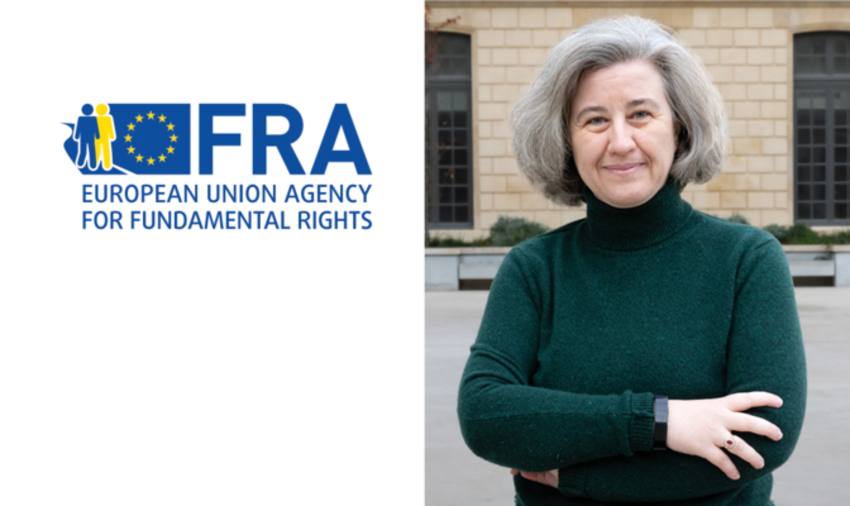
 Actualité Sciences Po
Actualité Sciences Po
Laura Morales, co-director of LIEPP’s Discrimination and category-based policies research group, was appointed as a member of the European Union Agency for Fundamental Rights new Scientific Committee.
The EU Agency for Fundamental Rights (FRA) provides independent, evidence-based advice to EU and national decision makers, thereby helping to make debates, policies and legislation on fundamental rights better informed and targeted.
Along with 10 other independent members of the Committee, all highly qualified in fundamental rights, Laura Morales will guarantee the scientific quality of the Agency's work.
Four Faced How Sustainability Governance is Failing our Planet and What to Do About it

 Actualité Sciences Po
Actualité Sciences Po
LIEPP's Environmental Policies research group, AIRE and Sciences Po's Centre for European Studies and Comparative Politics research group "The State as produced or public policies" are pleased to convene the seminar:
Four Faced How Sustainability Governance is Failing our Planet and What to Do About it
July 6th, 2023. 12.30-2.30pm
Location: Sciences Po, room K011, 1 place Saint-Thomas d'Aquin, 75007 Paris
Speaker:
Ben Cashore is the Li Ka Shing Professor in Public Management, and director, the Institute for Environment and Sustainability (IES), the Lee Kuan Yew School of Public Policy National University of Singapore: sppbwc@nus.edu.sg. He specialises in global and multi-level environmental governance, comparative public policy and administration, and transnational business regulation/corporate social responsibility.
Abstract:
Never have scholars and practitioners spent so much time designing institutions and policies to govern catastrophic environmental challenges denoted by climate change and mass species extinctions, and never before have these problems accelerated in such startling fashion. This talk offers an innovative explanation as to why this has happened and more importantly, what to do about it. It draws on a manuscript in progress, as well as interdisciplinary collaborations spanning three decades.
I argue that there are four competing ways that scholars and practitioners conceive of, empirically measure, and prescribe solutions for, sustainability challenges. These “four faces” of sustainability are distinguished on two dimensions: whether or not they justify their orientation owing to key features or “structural attributes” of the problem at hand; and whether or not they champion some type of “utility” enhancing project. Each of these four faces are reinforced by four distinct schools of sustainability: Commons (Type 1); Optimization (Type 2); Compromise (Type 3); and Prioritization (Type 4).
While the Prioritization school was successful in championing Type 4 problem in the 1960s and 1970s, there has been a subtle but powerful drift towards Type 3, 2 and 1 conceptions that champion competing transformation projects, the success of which help explain the acceleration of environmental degradation.
Any effort to solve Type 4 problems requires undertaking two tasks. First, sustainability scholars must overcome their unconscious bias favouring Types 3, 2, 1 problem conceptions, which is largely reproduced through each school’s emphasis on mastering highly technical skills that biases the evidence their members collect, and the problems they target. This requires understanding the impacts of each school in the last three decades across international organizations, schools of the environment, and sustainability governance innovations. Second, a return to treating the climate and biodiversity crisis as Type 4 problems requires building “thermostatic” institutions at multiple scales. I illustrate my argument by drawing on successful cases of Type 4 successes including endangered species conservation in the US Pacific Northwest, acid rain in North America, the global ozone layer, and Covid-19.


![]()
LIEPP IN THE MEDIA - MAY 2023

 Actualité Sciences Po
Actualité Sciences Po
Axe évaluation des politiques socio-fiscales
- Le savoir dans la crise, entretien avec Michael Zemmour publié par La Vie des Idées le 19/05/2023
- Réforme des retraites : les DRH contraints de repenser les fins de carrière, article citant les propos de Bruno Palier publié par Le Monde le 17/05/2023
- L’intensification du travail, entretien avec Bruno Palier publié par La Vie des Idées le 05/05/2023
- De l'embauche à la retraite, qui profite du travail ?, émission de CliqueTV avec Michaël Zemmour du 01/05/2023
- Face-à-Face, émission de BFMTV avec Michaël Zemmour du 29/04/2023
- Croyance dans l’efficacité des marchés, article de Clément Carbonnier publié par Alternatives Economiques le 26/04/2023
Axe discriminations et politiques catégorielles
- Les violences sexistes et sexuelles, un risque pour le salarié comme pour l'entreprise alerte le Sénat, article citant les propos de Catherine Cavalin publié par Le Journal Spécial des Sociétés le 11/05/2023
Axe évaluation de la démocratie
- L’alternance politique améliore les performances économiques, entretien avec Julia Cagé publié par Le Monde le 22/05/2023
- Julia Cagé et Vincent Pons, Prix du meilleur jeune économiste 2023, entretien avec Julia Cagé publié par Le Monde le 22/05/2023
Axe politiques éducatives
- Pouvons-nous dédramatiser l’usage des réseaux sociaux par nos ados ? Et même pourquoi pas en considérer les effets positifs ?, article citant les propos de Grégoire Borst publié par L'OBS le 21/05/2023
- Face à la ségrégation sociale dans le privé, « un manque d’ambition », entretien avec Marco Oberti publié par Mediapart le 18/05/2023
- Mixité scolaire : «Pap Ndiaye a les mains liées» par un gouvernement réticent à l’idée de déplaire à la droite, entretien avec Agnès Van Zanten publié par Libération le 12/05/2023
- Mixité scolaire, émission de France Culture avec Agnès Van Zanten du 12/05/2023
- Mixité sociale à l’école : la France est-elle un mauvais élève ?, émission de France Info avec Elise Huillery du 11/05/2023
- Une plus grande mixité sociale au collège a des effets positifs sur le bien-être de tous les élèves, entretien avec Elise Huillery publié par Le Monde le 11/05/2023
- Réformer en France 3/4 : l’école privée, angle mort des politiques scolaires ?, émission de France Culture avec Elise Huillery du 03/05/2023
- Épisode 1/3 : Julie-Victoire Daubié : l’émancipation par l’école, émission de France Culture avec Hélène Périvier du 01/05/2023
- Hausse des salaires des profs : une réponse à la crise des vocations ?, émission de France Culture avec Elise Huillery du 27/04/2023
- Enseignement privé et ségrégation scolaire, article de Marco Oberti publié par La Vie des Idées le 25/04/2023
- Lutter contre la ségrégation scolaire, émission de l'Institut Français de l'éducation avec Marco Oberti du 13/04/2023
Axe politiques de santé
- La personne de confiance : cet accompagnant (mal connu) de la fin de vie, article de Maiva Ropaul publié par The Conversation le 23/05/2023
LIEPP Newsletter - may 2023
a403.png?1686055320)
 Actualité Sciences Po
Actualité Sciences Po
To access the latest news from LIEPP, read the Newsletter.
The Welfare Workforce: Trade Unions and Mental Health Care in France

 Arthimedes / Shutterstock
Arthimedes / Shutterstock
LIEPP's Health Policies research group is pleased to convene the seminar:
The Welfare Workforce: Trade Unions and Mental Health Care in France
June 9th. 2pm-4pm.
Location : Salle 102. Sciences Po. 56, rue des Saints Pères (access via 27, rue Saint Guillaume), 75007 Paris.
Mandatory registration to participate in person
Mandatory registration to participate online
Speaker:
Isabel M. Perera (Cornell University)
Abstract:
Why would the government provide health and social services to those who cannot demand them? Absent powerful clients, I find, the maintenance and expansion of such services can depend on the political organization of those who work for the welfare state: the “welfare workforce.” A chapter from a forthcoming book project demonstrates how and when in late twentieth century France, welfare workers successfully advocated for expansions to the public mental health care system -- despite the powerful economic and ideological pressures to the contrary. Within-case process analysis, supported by extensive archival material, documents how a durable coalition of public sector workers and their managers (a distinct source of political influence) produced the expansive French public mental health system that remains in place today.
6th edition of the workshop ‘Experimental research on social inequalities’
LIEPP's Educational Policies research group and the CRIS are pleased to convene the workshop:
6th edition of the workshop ‘Experimental research on social inequalities’
May 22nd & 23rd
May 22nd
10-10.30 Welcome & Introductory presentation
Field experiments in sociology: a delayed (and sloppy) launch
G. Abbiati (Milan University), G. Argentin (Milan Bicocca University), D. Azzolini (IRVAPP), G. Ballarino (Milan University), D. Cartagini (Milan Bicocca University), E. Manzella (Milan University), M. Pellegrini (Milan University), L. Vergolini (IRVAPP)
10.30-12 Educational inequality and parenting
A library in the palm of your hand? Inequalities in reading literacy and educational Attainment.
S. Anger (IAB and University of Bamberg) B. Christoph (IAB) A. Galkiewicz (University of Potsdam and IAB), S. Margaryan (University of Potsdam and BSE), F. Peter (DZHW), M. Sandner (TH Nürnberg), T. Siedler (University of Potsdam, IZA and BSE)
Parental feedback strategies, child overconfidence and learning
K. Barron (WZB), M. M. Schneider (Norwegian School of Economics), O. Sund (University of Amsterdam)
What do parents value in a school? A factorial survey experiment in three countries
G. Salza (University of Luxembourg), M. Triventi (University of Trento)
12.30-13.30 Educational inequality and family background
More driven? Experimental evidence on differences in cognitive effort by social origin
J. Radl, P. Apascaritei, W. Foley, L. Kröger, A. Palacios-Abad, H. Solga, J. Stuhler, M. Swarr
Social class variation in perceptions of children’s educational success as a component of family ideals: Vignette experiments in 8 countries
A. Aassve (Bocconi University), A. Adserà (Princeton University), P. Chang (Harvard University), H.-J. Chung (Princeton University), L. Mencarini (Bocconi University), H. Park (University of Pennsylvania), C. Peng (Bocconi University), S. Plach (Bocconi University), J. M. Raymo (Princeton University), S. Wang (National University of Singapore), J. Yeung Wei-Jun (National University of Singapore)
14.30-16 Educational inequality and teachers
Research design presentation: Teacher’s bias in assessments by student’s SES and ethnic origin: A Pre-Registered large-Scale factorial experiment on pre-service teachers
C. J. Gil-Hernández (JRC-EC), I. P. Paneda (WZB), J. Castaño (Seville University), L. Salazar (JRC-EC)
The role of student's ethno-racial origin and gender in teacher evaluation and grading: an experiment in French Junior High schools
C. Corchete (Sciences Po)
Tackling the gender gap in mathematics with active learning methodologies
M. Di Tommaso (University of Torino), D. Contini (University of Torino), D. De Rosa (Ministry of Economy), F. Ferrara (University of Torino), D. Piazzalunga (University of Torino), O. Robutti (University of Torino)
16.30-18 Educational inequality and educational choices
How do transparent admission standards increase the application to the college-bound upper-secondary school track ? A series of randomized field experiments
T. Keller (Centre for Social Sciences, Budapest)
The effect of intensive counselling for high-school students on vertical and horizontal selection into the postsecondary educational pathway and further educational outcomes
M. Erdmann (WZB), M. Helbig (WZB), M. Jacob (University of Cologne), I. Pietrzyk (University of Cologne), J. Schneider (University of Cologne)
Preparing students for the digital era: lessons learned from FabLabs in school
M. F. Ferracane (EUI), V. Ballerini (University of Florence), A. De Falco (EUI), A. Dominici (EUI), F. Menchetti (University of Florence), S. Noirjean (University of Florence)
May 23rd
9-11 Ethno-racial inequalities and discrimination
Stressful discrimination in social interaction as a person-environment transaction: integrating the experiental/subjective with the behavioral/objective
M. Arangueren M. (Sciences Po)
Research design presentation: Studying discrimination attributions from the perspective of multiple actors: A factorial survey experiment with a tied design
K. Warnke (Utrecht University), V. Di Stasio (Utrecht University)
Effects of uncertainty about intentions to stay and return on the human capital investments of refugees
Y. Kosyakova (IAB-University of Bamberg), H. Brücker (IAB-Humboldt University), S. Schwanhäuser (IAB)
Online hate speech, prejudice, and discriminatory intentions among adolescents: a randomised controlled trial
C. Borgna (University of Turin), E. Charitopoulou (European University Institute), M. Miglio (European University Institute)
11.30-13 Gender and labor market inequalities 1
Drivers of gender gaps in promotions – A factorial survey experiment with German employers
P. C. Wehner (BIBB), P. Protsch (University of Cologne/BIBB), A. de Grip (ROA-Maastricht University)
Gender biases in assistant professorship recruitment: does discipline matter?
S. Hofmeister (WZB), A. Rusconi (WZB), H. Solga (WZB)
14-15 Gender and labor markets 2
Disability, gender and hiring discrimination – a field experiment
E. Ugreninov (Oslo Metropolitan University), V. Bjørnshagen (Oslo Metropolitan University), D.-O. Rooth (Stockholm University)
Partnership penalties for working in a gender-atypical occupation? Observational and experimental evidence from Germany
L. Hipp (WZB), P. Schober (University of Tubingen), S. Leumann (WZB)
Gendered double standards for occupational success
L. Hipp (WZB & Potsdam University), K. Kelley (WZB), P. Protsch (University of Cologne/BIBB)
15-16.30 Income inequalities & social policy
Inequality of opportunity and outcomes, and its effects on inequality acceptance and social cohesion
M. Bucca (Pontificia Universidad Católica de Chile), M. Molina (New York University Abu Dhabi)
What People Believe Others (Should) Earn: Multifactorial Survey Experiments on Beliefs about Actual and Fair Earnings
L. Schmitt (University of Munich), K. Auspurg (University of Munich) P. Hufe (University of Bristol), A. Peichl (University of Bristol & IFO Institute), M. Stoeckl (IFO Institute)
Social policy and household labor supply in Germany, Israel and Italy
A. Levanon (University of Haifa), E. Struffolino (University of Milan), D. Gomelsky (Humboldt University), A. Fasang (Humboldt University)



The politics of “deservedness”: the case of on-demand food delivery couriers

 Gianluca Cinnante / Shutterstock
Gianluca Cinnante / Shutterstock
LIEPP's Discriminations and Category-Based Policies research group is pleased to convene the seminar:
The politics of “deservedness”: the case of on-demand food delivery couriers
June 1st. 12:30-2pm.
Location : Salle du LIEPP, Sciences Po, 1 place Saint Thomas d'Aquin, 75007 Paris.
Mandatory registration to participate in person
Mandatory registration to participate via Zoom
Speaker:
Meng-Hsuan Chou (Associate Professor, Provost’s Chair in Public Policy and Global Affairs, School of Social Sciences, Nanyang Technological University (NTU), Singapore)
Abstract:
Existing studies have consistently pointed to the exploitative working conditions under which food delivery couriers toiled as symbolic of the dark side of algorithmic governance. The on-demand food delivery sector is known for precarity where most couriers are considered “part-time” even though their working conditions have “full-time” features without the corresponding compensation and benefits. Terms such as “algorithmic management,” “algorithmic control,” “despotism,” and “new sweatshops” have been used to describe the relationship between delivery apps and couriers who tend to be from an immigrant or minority background, and have historically experienced systemic discrimination. By determining where (destination) and when (expected arrival time), algorithms push couriers to be creative with how, often at great physical risks, economic costs, and emotional toll. The COVID-19 pandemic has only accentuated these conditions as lockdowns increased the demands for safe distance food deliveries. Scholars and activists have documented organised resistance movements and individual techniques against the exploitative working conditions food couriers face, but attempts to address what appears to be policy failures have been less systematic. In this seminar, I will demonstrate how the theory of social construction and policy design is a promising starting point for considering reforms to improve the working conditions of food delivery couriers. Specifically, this theory provides the analytical tools for us to unpack how policy target groups are socially constructed as “deserving” or “undeserving” of policy benefits, and how these social constructions “feed forward” to determine policy evaluation, and shape politics.
LIEPP IN THE MEDIA - APRIL 2023

 Actualité Sciences Po
Actualité Sciences Po
Axe évaluation des politiques socio-fiscales
La tyrannie de la majorité et celle de la minorité, chronique d'Etienne Wasmer publiée par Les Echos le 19/04/2023
Le gouvernement appuie sur des boutons qui alimentent le vote en faveur de l’extrême droite, article citant les propos de Bruno Palier publié par Télérama le 14/03/2023
Le passage en force ne serait qu’une victoire à la Pyrrhus qui engluerait le quinquennat définitivement, tribune de Bruno Palier publiée par l'Huffington Post le 05/04/2023
Un politique sera toujours plus impressionné par une interview que par une publication, entretien avec Bruno Palier publié par The Meta News le 29/03/2023
Fallait-il faire disparaître les grands corps de l’État ?, chronique d'Henri Bergeron et Jeanne Lazarus publiée par AOC le 29/03/2023
Réforme des retraites : le péril jeune, émission de France Culture avec Tom Chevalier du 29/03/2023
Veut-on vraiment rester dans ce schéma de vie active intense, puis de retraite brutale ?, entretien avec Bruno Palier publié par Usbek et Rica le 28/03/2023
Après le 49.3, la Nupes peut-elle convertir la colère en adhésion ?, article citant les propos de Bruno Palier publié par Politis le 21/03/2023
Les Français travaillent trop dur, article citant les propos de Bruno Palier publié par Courrier International le 18/03/2023
De la rue au 49-3, quelles conséquences ?, émission de France Culture avec Michaël Zemmour du 18/03/2023
Réforme des retraites : on vous explique pourquoi des travailleurs aux carrières longues devront cotiser plus de 43 ans, article citant les travaux de Michaël Zemmour publié par France Info le 17/03/2023
Pour l'économiste Michaël Zemmour, Emmanuel Macron tient "un discours de dramatisation qui n'a rien à voir avec les enjeux" de la réforme des retraites, émission de BFMTV avec Michaël Zemmour du 17/03/2023
La baisse du coût du travail est devenue la pierre angulaire des politiques économiques et sociales françaises, tribune de Bruno Palier publiée par Le Monde le 17/03/2023
Cette réforme des retraites et la façon dont elle est menée apparaissent comme un carburant du RN, tribune de Bruno Palier publiée par Libération le 17/03/2023
"Les lendemains politiques d'une réforme contestée", émission de France Inter avec Bruno Palier du 15/03/2023
Marine Le Pen a un réservoir de voix parmi les plus touchés par la réforme des retraites, article citant les travaux de Bruno Palier et Paulus Wagner publié par Mediapart le 15/03/2023
Lentement mais sûrement, la société française s'appauvrit, chronique d'Etienne Wasmer publiée par Les Echos le 15/03/2023
Grand entretien - Jeanne Lazarus Peut-on encore épargner en toute sécurité ?, émission d'Arte avec Jeanne Lazarus du 13/03/2023
Ils sont où les patrons qui défendent la réforme des retraites ?, émission d'Arrêt sur Images avec Michaël Zemmour du 10/03/2023
Axe évaluation de la démocratie
Réforme des retraites : « L’effet négatif du 49.3 est loin d’être anecdotique », tribune de Sylvain Brouard publiée dans Le Monde le 18/03/2023
La suppression de l’ISF a fait exploser… les dons politiques, article citant les propos de Julia Cagé publié par Economie Matin le 15/03/2023
Les dons philanthropiques, un outil politique pour les plus riches, article citant les propos de Julia Cagé publié par Le Monde le 14/03/2023
Comment la réforme de l'ISF a modifié le comportement des riches donateurs, article citant les propos de Julia Cagé publié par Les Echos le 14/03/2023
Télé Bolloré : des clashs et du trash jusqu’à quand ?, article citant les propos de Julia Cagé publié par La Dépêche le 12/03/2023
Axe politiques éducatives
Choix de l'école : le prix de la liberté, émission de France Culture avec Agnes Van Zanten du 17/04/2023
Parcoursup a 5 ans : “Les méthodes de classement des candidatures ne sont pas transparentes”, article citant les propos d'Agnes Van Zanten publié par Télérama le 11/04/2023
Exposition aux écrans : est-ce vraiment dangereux pour les enfants ?, article citant les propos de Grégoire Borst publié par RTL le 09/03/2023
Axe politiques de santé
Maladies professionnelles, retraites : le déni répété des maux du travail, tribune de Catherine Cavalin et Jérôme Pelisse publiée par Libération le 30/03/2023
LIEPP Newsletter - april 2023

 Actualité Sciences Po
Actualité Sciences Po
To access the latest news from LIEPP, read the Newsletter.
Décarboner le système de santé : enjeux pour les politiques publiques ?

 Actualité Sciences Po
Actualité Sciences Po
Les axes Politiques environnementales et Politiques de santé du LIEPP organisent la journée d'étude :
Décarboner le système de santé : quels enjeux pour les politiques publiques ?
Consulter le compte rendu de l'évenement
Mercredi 3 mai 2023, 9h30-18h
Organisateurs :
Matthias Brunn (LIEPP), Anneliese Depoux (UPCité, CVV et CPT), Charlotte Halpern (Sciences Po, CEE and LIEPP) et Laurie Marrauld (EHESP)
Présentation :
.png)
External validity in program evaluation

 Actualité Sciences Po
Actualité Sciences Po
LIEPP and the University of Maryland School of Public Policy are pleased to convene the seminar:
External validity in program evaluation
Tuesday June 6th 2023
Location: Sciences Po, Amphi Erignac, 13 rue de l’Université, 75007 Paris
(and possibility to follow the event online)
Seminar organised by Doug Besharov (University of Maryland) and Anne Revillard (LIEPP, Sciences Po)
While program evaluation has been characterized by increased methodological sophistication to ensure the robustness of conclusions developed on the specific cases or sites under study, less attention has been paid to external validity, i.e., the extent to which these conclusions may apply to other contexts. This seminar brings together scholars and practitioners conducting evaluative research in a diversity of disciplines, to open a discussion on external validity from different methodological perspectives.
Access videos of the seminar :
External validity in program evaluation Session 1 [Video]
External validity in program evaluation Session 2 [Video]
External validity in program evaluation Session 3 [Video]
Programme:
9:30-10:45: Session 1
- Introductions, by Anne Revillard (LIEPP, Sciences Po), Douglas J. Besharov (University of Maryland), Martin Weber (Director of Audit Chamber II, Investments for Cohesion, Growth and Inclusion of the European Court of Auditors), and Bastiaan de Laat (Head, OECD In-depth Evaluation).
- “Learning about External Validity from Multiple Literatures” (Jeff Smith, University of Wisconsin)
Discussant : Valérie Pattyn (Leiden University)
10:45-11:00: Coffee break
11:00-12:30: Session 2
- “Differing Program Environments and Limited Replications Constrain Generalization: The Case of Published Evaluations of School Finance Policies” (Danielle Handel and Eric Hanushek, Stanford University)
Discussant: Priscilla Alamos Concha (Radboud University)
- “Improving the Usefulness and Use of Systematic Reviews and Meta-Analyses to Inform Policy and Practice” (Rebecca Maynard, University of Pennsylvania)
Discussant : Ana Manzano (University of Leeds)
12:30-14:00: Lunch break
14:00-16:30: Session 3
- “The Logic of Generalization from Systematic Reviews to Policy and Practice” (Julia Littell, Bryn Mawr College)
Discussant : Thomas Delahais (Quadrant Conseil)
- “How Mixed-Methods Research Can Improve the Policy Relevance of Impact Evaluations” (Burt Barnow and Sanjay Pandey, George Washington University)
Discussants : Quan-Nha Hong (University of Montreal) and Sergi Fàbregues (Catalunya Open University)
- "Does Evidence-Based Policymaking Work for Local Policymakers When Rigorous Impact Evidence Comes from Other Localities?" (Larry Orr, Johns Hopkins Bloomberg School of Public Health)
Discussant: David Seidenfeld (American Institutes for Research, International Development Division)
- Concluding remarks, by Tom Ling (European Evaluation Society)
16:30-16:45: Coffee break
16:45-17:45: Internal work session with authors
Chairs: Doug Besharov (University of Maryland) and Anne Revillard (Sciences Po)
Invited participants: Irene Akua Agyepong (Ghana Health Service), Priscilla Alamos Concha (Radboud University), Burt Barnow (George Washington University), Douglas M. Call (University of Maryland), Bart Cambré (Antwerp Management School), Thomas Delahais (Quadrant Conseil), Sergi Fàbregues (Catalunya Open University), Bui Thi Thu Ha (Hanoi University of Public health), Danielle Handel (Stanford University), Eric Hanushek (Stanford University), Quan-Nha Hong (University of Montreal), Sumit Kane (University of Melbourne), Julia Littell (Bryn Mawr College), Ana Manzano (University of Leeds), Rebecca Maynard (University of Pennsylvania), Tolib Mirzoev (London School of Hygiene and Tropical Medicine), Sanjay Pandey (George Washington University), Valérie Pattyn (Leiden University), Valéry Ridde (Université Paris Cité, IRD), Benoît Rihoux (Université catholique de Louvain), Jeff Smith (University of Wisconsin), Geoff Wong (Oxford University)
How Congressional Committee System Reform Affects Issue Attention

 Actualité Sciences Po
Actualité Sciences Po
LIEPP's Evaluation of democracy research group is pleased to convene the seminar:
How Congressional Committee System Reform Affects Issue Attention
May 17th. 5pm- 6:30pm
Location: Salle du LIEPP. Sciences Po. 1 place Saint Thomas d'Aquin, 75007 Paris.
Speaker:
Sean Theriault ( University of Texas at Austin )
Abstract:
This research project examines how the basic structure of the committee system affects the problems Congress addresses. Using data from the Comparative Agendas Project (https://www.comparativeagendas.net/), I examine how major structural changes to the committee system disrupted how members of Congress respond to the information flows into the U.S. Capitol. Using the congressional hearings database (1870s to present), this project examines how reforms effect how Congress processes information – if at all. In major committee system reforms in both 1946 (at the full committee level) and 1974 (at the subcommittee level), some committees were virtually unchanged while others were created, merged, or deleted. The degree of structural change in the policy area creates the necessary experimental and control groups in which to evaluate the dispersion of congressional hearings across major subtopics. The changes either in frequency or flow of proposals after the reforms indicates the extent to which the reforms changed the work of Congress. If the policy flows of unreformed and reformed committees look similar before and after the reform, we will have evidence that reforms do not change how Congress processes information; but if the difference between unreformed and reformed committees is pronounced, we will have evidence that reforms matter. The results from this analysis will speak to the efficacy of reform and the efficiency of the legislative committee system in processing and responding to the information that flows into Congress.
Que sait-on du travail ? Un projet de médiation scientifique
Project description :
With the planned pension reform of 2023, the issue of work has become central to the public debate. Even though it has often been neglected in the past by the media and the authorities (including during the preparation of this pension reform), work in France has been the subject of a great deal of research in the social sciences, enabling us to document precisely what we know about the quality of life at work, working conditions, arduousness, work organisation, management, democracy at work, gender norms, discrimination, the boundaries between work and non-work, and so on, management, democracy at work, gender norms, discrimination, the boundaries between work and non-work, vocational training, career development, the transition to retirement and combining work and retirement, and the different situations of workers, young and old, skilled and unskilled, in different sectors of the economy and with different statuses.
This series of texts is not intended to cover every aspect of the labour issue, but to make available in an accessible format the results of a number of social science studies (economics, management, sociology, political science, etc.) concerning the labour situation in France.
3rd LIEPP International scholars in policy evaluation programme (2023-2024)

 Actualité Sciences Po
Actualité Sciences Po
LIEPP International scholars in policy evaluation programme
Call for Applications for a research stay in 2024
The Laboratory for Interdisciplinary Evaluation of Public Policies (LIEPP), a research platform at Sciences Po (Paris, France), launches its third International scholars in policy evaluation programme. The visiting fellowships funded as part of this programme (for visits in 2024) aim at fostering the incoming mobility of scholars from universities and research institutions outside of France, in order to expand LIEPP’s research activities and develop its international relations.
Created in 2011 under the "Investissements d'avenir" programme of the French National Research Agency, this laboratory is being redeployed since 2020 in partnership with Université Paris Cité.
LIEPP develops an innovative approach to evaluative research: articulating quantitative, qualitative and comparative methods; confronting disciplinary views; and promoting the cross-fertilization of methodological and theoretical inputs from different disciplines, with those from the international field of evaluation. LIEPP thus works on anchoring the evaluation approach in academic research.
This call is targeted at scholars specializing in policy evaluation and who, in their universities or research institutions, are in permanent academic positions equivalent to those of Full Professor, Associate Professor, or Assistant Professor. Applications from all countries outside of France are welcome. LIEPP is open to all social science disciplines, including (but not limited to) economics, education, environmental science, management, political science, public administration, psychology, sociology.
Research activities conducted by the visiting scholar should focus on one or more of the following areas of specialization of LIEPP (see links for a description of each research program):
- Discriminations and category-based policies (research group led by Morgan Laouenan and Laura Morales)
- Educational policies (research group led by Carlo Barone)
- Environmental policies (research group led by Charlotte Halpern and Martin Hendel)
- Evaluation of democracy (research group led by Julia Cagé and Emiliano Grossman)
- Health policies (research group led by Henri Bergeron and Thomas Rapp)
- Socio-fiscal policies (research group led by Clément Carbonnier, Nathalie Morel and Michaël Zemmour)
Applications by scholars with a broader (methodological or theoretical) specialization in evaluation are also welcome.
The selection of applications will be made by the laboratory council (composed of the research groups directors and the director of LIEPP), on the basis of the scientific quality of the project, its relevance in terms of policy evaluation, and its fit with one or more of LIEPP’s areas of specialization.
For more information about LIEPP’s activities, please check our website : www.sciencespo.fr/liepp/en
Terms & conditions
As part of this visiting programme, LIEPP is offering a stay of one month covering the expenses related to accommodation in Paris up to 3000 euros for one month. In addition, LIEPP will finance travel expenses for one roundtrip ticket to Paris in economy class (and airport transfers).
The one-month stay is to be scheduled between January, 2nd, 2024 and December, 15th, 2024 (except in August).
Scientific contribution
During the stay, the visiting scholars will be asked to present their work in one of our seminars, and to contribute to our LIEPP Open Access publication series via a working paper or a policy brief on a topic of relevance to policy evaluation. The working paper or policy brief, whose title and abstract will be sent with your application, should be delivered within four months after the visit at the latest.
Location
Sciences Po – Laboratory for Interdisciplinary Evaluation of Public Policies (LIEPP), Paris, France. Our offices are located in the center of Paris, 1 place St Thomas d’Aquin (7e). A shared workspace will be available for the visiting scholar, as well as access to the Sciences Po Library.
Deadline for application
The deadline for application is September 8th, 2023.
The results of the selection will be made available in October, 2023.
Application
Applications can be written in English or French. They should be sent to liepp@sciencespo.fr [subject: Visiting programme]. They include:
- A curriculum vitae ;
- A cover letter explaining your interest and contribution to policy evaluation in one of the LIEPP research areas, or broader methodological or theoretical contribution to policy evaluation. Specify which project(s) you would plan to work on during your stay. Collaborations with LIEPP affiliates are encouraged. Make sure to mention precisely which LIEPP research group your fellowship would be affiliated to (see list above).
- A pdf copy of one published (or in print) article or book chapter that illustrates your contribution to policy evaluation.
- The first draft (or at least title and abstract) of your working paper or policy brief to be published in LIEPP’s publication series.
- A seminar proposal: title of your presentation and abstract (the seminar may be organized around your working paper proposal).
Don’t hesitate to contact us at liepp@sciencespo.fr if you need additional information ahead of your application.
(1) LIEPP Policy Briefs are intended to present the results of research that has already been completed, and that has already been validated in the form of a research report or scientific article, for example, which should be referenced in the PB. The PB aims to present these results in a synthetic manner, emphasizing the implications for the evaluation of public policies. The PB is short (less than 5,000 words) and aims to make the results of the research accessible to a wide audience (public actors, civil society).
Programme Laureates :
- Zsolt Boda (Centre for Social Sciences, Budapest)
- Tamás Keller (Centre for Social Sciences, Budapest)
- Ilias Ioannis Kyriopoulos (London School of Economics and Political Science)
- Caroline Le Pennec (HEC Montreal)
- Katharina Meitinger (Utrecht University)
- Nicholas R. Micinski (University of Maine)
- Michael Sullivan (St Mary's University, San Antonio)
The Value of Informal Care in Europe

 Actualité Sciences Po
Actualité Sciences Po
LIEPP's Health Policies research group is pleased to convene the seminar :
The Value of Informal Care in Europe
April 21st. 12:30- 2pm
Location : Salle du LIEPP. Sciences Po, 1 place Saint-Thomas d'Aquin, 75007 Paris.
Speaker :
Joan Costa-Font (London School of Economics and Political Science)
Abstract :
The provision of informal care has been the traditional mechanisms to address the care needs of European populations in need. However, its value goes unaccounted in long term care spending, as it refers to unpaid care and includes unmonetized costs, which if substituted by the market or community care would result in higher costs to both families and social protection systems. This paper draws on causal estimates and the wellbeing methods to estimate the causal of informal care in different European countries.
LIEPP IN THE MEDIA - MARCH 2023

 Actualité Sciences Po
Actualité Sciences Po
Socio-fiscal policies research group
Retraites : la grand-mère des batailles, article citant les propos de Michaël Zemmour publié par Mediapart le 08/03/2023
Même si on a un vieillissement de la population, sans réforme, les dépenses de retraites ne vont pas augmenter, émission de BFMTV avec Michaël Zemmour du 08/03/2023
On n'avait jamais vu d'unité syndicale sur une réforme des retraites depuis qu'elles existent, émission de France Inter avec Bruno Palier du 06/03/2023
Il est important de comprendre pourquoi les Français disent non, émission de France Info avec Bruno Palier du 06/03/2023
Le 5/7, émission de France Inter avec Bruno Palier du 06/03/2023
Face-à-Face, émission de BFMTV avec Michaël Zemmour du 06/03/2023
Retraites : 5 réformes alternatives (que l’État aurait pu proposer), article citant les propos de Bruno Palier publié par Philosophie Magazine le 01/03/2023
Sens public, émission de Public Sénat avec Bruno Palier du 22/02/2023
La longue histoire des retraites (et de leurs réformes) en Europe, entretien avec Bruno Palier publié par Le Journal CNRS le 20/02/2023
Michaël Zemmour, économiste en pointe et épine dans la réforme des retraites, profil sur Michaël Zemmour publié par Libération le 18/02/2023
Est-ce qu’on travaille trop ?, article citant les propos de Bruno Palier publié par Philosophie Magazine le 16/02/2023
Manifestations contre la réforme des retraites : "L'enjeu est de maintenir la pression", émission de France 24 avec Bruno Palier du 16/02/2023
Discriminations and category-based policies research group
Retraites, pouvoir d’achat, inflation… Les femmes grandes perdantes ?, émission de France Culture avec Hélène Périvier du 09/03/2023
Pourquoi les impôts sont sexistes, émission Le Monde citant les travaux d'Hélène Périvier du 08/03/2023
Educational policies research group
Parcoursup, la loi du plus fort ?, émission de France Culture avec Anne-Claudine Oller du 20/02/2023
Parcoursup : entre pression des parents et liberté totale, article citant les propos d'Anne-Claudine Oller publié par Le Parisien le 20/02/2023
Health policies research group
Nous sommes encore loin de ce qu’il faudrait faire pour que notre système de santé fonctionne, entretien avec Henri Bergeron publié par Syndicalisme Hebdo le 03/03/2023
Système de santé : la lente agonie, article citant les propos d'Henri Bergeron publié par Syndicalisme Hebdo le 03/03/2023
LIEPP Newsletter - march 2023

 Actualité Sciences Po
Actualité Sciences Po
To access the latest news from LIEPP, read the Newsletter.
Newsletter du LIEPP - mars 2023

 Actualité Sciences Po
Actualité Sciences Po
Pour accéder aux dernières actualités du LIEPP, lire la Newsletter.
Mesurer et analyser les discriminations dans l'enseignement supérieur et la recherche

 Actualité Sciences Po
Actualité Sciences Po
L'axe Discriminations et politiques catégorielles du LIEPP a le plaisir de vous inviter au séminaire :
Mesurer et analyser les discriminations dans l'enseignement supérieur et la recherche - présentation des enquêtes ACADISCRI et ESTRADES
Mercredi 12 avril. 12h30-13h30.
Lieu : Salle du LIEPP. Sciences Po, 1 place Saint-Thomas d'Aquin, 75007 Paris.
Inscription obligatoire pour assister au séminaire en présentiel / à distance
Intervenante:
Christelle Hamel, membre de l'équipe de recherche ACADISCRI (URMIS)
Christelle Hamel est sociologue, chargée de recherche à l’Institut national d’études démographiques. Elle est spécialisée dans la conduite d’enquête quantitatives en population générale. Elle a coordonné l’enquête Trajectoires et Origines, sur les conditions de vie et l’expérience des discriminations des immigrés et enfants d’immigrés résidant en France (2009). Elle a également piloté l’enquête Violence et rapports de genre sur les violences faites aux femmes en France. Actuellement, elle participe à la coordination de l’enquête ACADISCRI, sur les discriminations dans l’enseignement supérieur.
Présentation:
L'enquête ACADISCRI a été menée entre 2020 et 2022 afin de mieux connaître les conditions de travail et d’études des étudiant·es et des personnels de l’enseignement supérieur et de la recherche, de mesurer et de comprendre les inégalités de traitement auxquels ces dernier·es peuvent se trouver confronté·es. Première enquête d’ampleur nationale portant sur les principales catégories de discrimination dans le monde académique (sexe, origines ethno-raciales, classe sociale, identité de genre, orientation sexuelle, santé, handicap, opinions politiques et syndicales…), cette étude cherchait à analyser finement l’expérience des discriminations et ses variations selon les disciplines académiques, les statuts et degrés de précarité des personnes concernées (étudiant·es et personnel), le niveau d’études, les rapports hiérarchiques, ou encore la dynamique des établissements (climats de travail, politiques, organisations). En fournissant aux établissement un diagnostic sur l’ampleur et la configuration des discriminations en leur sein, l'enquête a cherché à la fois à produire des connaissances scientifiques nouvelles sur ces questions et à fournir les données empiriques nécessaires aux établissements de l’ESR pour concevoir et améliorer leurs plans d’action en matière de lutte contre les inégalités et discriminations.
Depuis, l’équipe de recherche de l’enquête ACADISCRI de l’URMIS s’est associée avec l’équipe du programme GEODE de la Fédération de Recherche CNRS « Théorie et Évaluation des Politiques Publiques » (TEPP) pour élaborer le projet ESTRADES. Ce projet, conçu en 2022, vise à mesurer et analyser les discriminations selon les deux critères les plus étudiés dans d’autres domaines, le genre et l’ethnicité, en combinant deux types d’observations quantitatives, issues l’une de testings auprès des responsables de formation participant à la sélection à l’entrée en master, l’autre d’enquêtes de victimation auprès des étudiant·es, à la fois dans l’accès au supérieur et dans les conditions d’études. Ces observations seront croisées et prolongées par des analyses quantitatives et qualitatives, intégrant une approche interdisciplinaire (économie et sociologie) pour analyser de façon approfondie les processus de discrimination dans l’enseignement supérieur en France et évaluer la pertinence d’une combinaison de méthodes pour saisir ces processus.
Young Research Program (2023) - Call for applications

 Actualité Sciences Po
Actualité Sciences Po
The support program for young researchers in public policy evaluation is part of the redeployment of the LIEPP in partnership with the University of Paris. In 2023, it is open to doctoral students (who must be enrolled in a thesis at the time of application) and young doctors (who have defended their thesis less than two years ago, and whose thesis must have been defended after August 31, 2021) whose main affiliation is with a Sciences Po or University of Paris laboratory, regardless of discipline.
See the complete description of the program in 2023 and the application procedures.
Interview with Laurence Warin, winner of the LIEPP young researcher programme in 2021/2022.
Why endurance matters to assess the gender gap in political representation - Ragnhild Muriaas
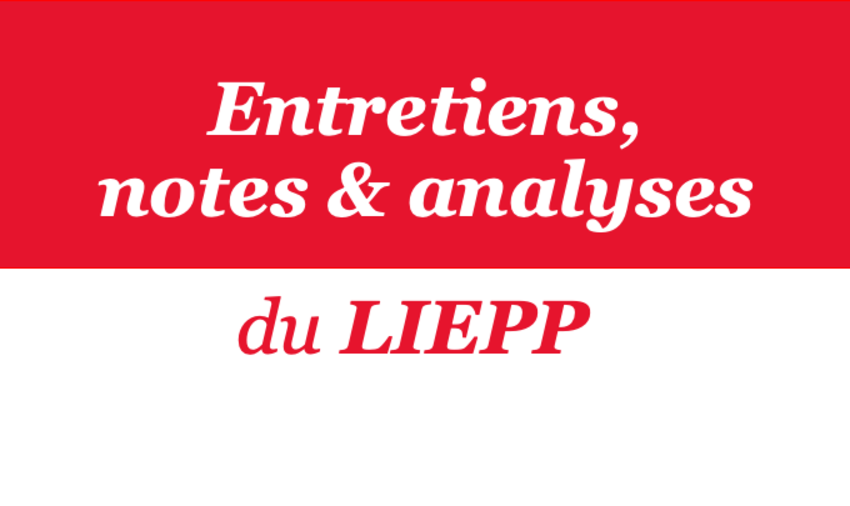
 Actualité Sciences Po
Actualité Sciences Po
 Ragnhild Louise Muriaas is a professor of political science at the University of Bergen (Norway). Her research focus is the interaction between gender and politics, with a particular focus on representation, political careers and political financing. She is currently the project leader of a ERC project (consolidator) titled SUCCESS Gender-Gap in Political Endurance: a novel political inclusion theory (2021-2026). During the first phase of the project, the research team will develop a data set on political endurance, with a special focus on studying the share of women among parliamentary seniors. In the second phase of the project they’ll conduct field studies on different aspects of gender and political endurance, with a special focus on explaining the causes and consequences of gender imbalance among the senior members of parliament. The data will be collected in democracies such as France, Norway and the United States.
Ragnhild Louise Muriaas is a professor of political science at the University of Bergen (Norway). Her research focus is the interaction between gender and politics, with a particular focus on representation, political careers and political financing. She is currently the project leader of a ERC project (consolidator) titled SUCCESS Gender-Gap in Political Endurance: a novel political inclusion theory (2021-2026). During the first phase of the project, the research team will develop a data set on political endurance, with a special focus on studying the share of women among parliamentary seniors. In the second phase of the project they’ll conduct field studies on different aspects of gender and political endurance, with a special focus on explaining the causes and consequences of gender imbalance among the senior members of parliament. The data will be collected in democracies such as France, Norway and the United States.
During the fall of 2022 Ragnhild Muriaas was a visiting professor as part of LIEPP’s Discrminations and Category-Based Policies research group. She is now a visiting scholar at the CEE (Sciences Po).
- The issue of representation in political careers is often mentioned in the public debate. Why did you choose to address it with a focus on endurance ?
There’s a reason why we chose to study representation and why the numeric difference between men and women in Parliaments is important. There’s been a lot of research on that and also studies on quotas and how to get to parity, here in France for example. But let’s say that you have a Parliament where the gender balance is almost perfect, 45% of women and 55% of men, one might say that there would be gender balance. But if all the women there are newcomers, here for their first term, while the men have stayed on for three or four terms, do we then think of it as gender balance ?
Of course we assume that all representatives are able to have the same kind of impact and to represent their voters efficiently, but is that true ? What if the representatives with the most experience, who have had access to different positions are also those driving social and political change and having a stronger impact on policies ?
We’re shifting the focus to endurance to determine its impact and if, when endurance is taken into account, we can really talk of gender balance in Parliaments.
- During your research, what results have you found so far that indicate the presence of gendered discrimination in Parliaments ?
We had this interest in Parliamentarians that have stayed for a long time, so we looked at them as a group to look at the differences between men and women and the gender gap in how long they stayed. During our first study, focused on 9 western democracies, we found that in focusing on the endurance of Parliamentarians there is a gender gap across time and across countries.
Figure 1 : Gender differences in endurance amongst Parliamentarians in 10 Western democracies from 1965 up until 2021
There has been a change in the past decades, of course. We looked for patterns of endurance and gender gap in endurance in data going back to 1945. If we concentrate on the gender gap amongst those who have stayed in Parliament for the longest time, we can see that it decreases over time in all 9 countries. Still, in most countries the gender gap among senior members remains considerable. There’s only a few countries like Spain or Norway where the gender gap has been closing over the last few terms.
- Could you give us more examples of patterns that we should be aware of as Parliaments are becoming more diverse ?
We can take into account research that looks into the impact of discrimination before entering Parliament, and into the experience of newcomers who first enter Parliament. Such research shows that newcomers often feel disadvantaged. It often takes time for them to get to know the system and to have an impact.
There’s a study by Nirmal Puwar which shows that a lot of the representatives entering the British Parliament in the 1990s felt like space invaders. Even as a lot of Parliaments are becoming more diverse, we need to continue looking at the patterns of discrimination, not only regarding gender, but all discriminations. If people from different backgrounds are entering Parliament in greater numbers, does that also mean that they stay in politics and that they are equally represented among those who serve multiple terms ?
Shuttertock Illustration : She was allowed to enter, but will she endure?
- How could other scholars use the concept of political endurance to question discrimination in Parliaments ?
We chose to focus on gender in this research : men, women and how they endure in Parliament. But it’s also possible to use the measurements used in this research to determine if other discriminated groups endure in Parliaments.
It takes less time to be considered a senior member of Parliament in some countries than in others. In some Parliaments, you would have to stay four or five terms to be among those who have served for the longest time. In other Parliaments there is more volatility, so staying for fewer terms (two or three) would already mean that you are among those who’ve served the longest. If you chose to focus on the 25% of representatives who have served for the longest amount of time, that’s one relational measure that needs to be taken into account.
It is also possible to study a more static measure : looking at the gender gap within people who have served three terms or more. For each term they’ve served, what does the pattern look like ?
These tools can be used to determine if Parliaments are discriminatory spaces for all kinds of minorities: people from a different class, people with different educational backgrounds... The idea is that there should eventually be an equilibrium in representation of all types of citizens in Parliaments.
- During the fall of 2022, you were a visiting scholar as part of the Discriminations and Category-Based Policies research group at LIEPP. How was your experience?
It’s been a great experience. It’s a really welcoming research environment and it’s nice to work among a group of diverse international scholars where we can discuss issues of discrimination from all sorts of points of view. During my stay I had the opportunity to present the first draft of a paper discussing the concept of political endurance and showing how it can be measured in Western democracies. (Seminar Parliamentary Stayers in Western Democracies: Mind the Gender-Gap in Political Endurance). At that point, it was interesting to get feedback that pointed us in different directions and to hypotheses that might not have yet been studied. For instance the question of seniority. There is a great discussion in Western democracies with political parties only allowing their representatives to serve two terms. It begs the question : is seniority a good thing ? So in that sense it was a very thought provoking seminar. There are also a lot of young scholars at LIEPP, which makes me happy because they might carry an interest in this. My hope is that in the future the issue of endurance is questioned : what are patterns of endurance telling us, and most importantly; what are the consequences of gender gaps in political endurance ?
Preparing for the next winter - supply security in the European Union

 Actualité Sciences Po
Actualité Sciences Po
LIEPP's Environmental policies research group, Sciences Po's European Chair for Sustainable Development and Climate Transition and IDDRI are pleased to convene the conference :
Preparing for the next winter - Supply security in the european union
March 22nd 2023. 5-7pm.
Location : Auditorium Simone Veil, 28 rue des Saints-Pères, 75007 Paris.
Programme:
Together with the urgency of climate change, the war in Ukraine has revealed how critical the subject of energy is for national and European security and led to an unprecedented shift for the European energy sector. In this context, tonight’s speakers will discuss the threats faced by the European energy sector as a consequence of Russia’s invasion of Ukraine, the actions taken by European Union Member States over the course of the last year to secure energy supply, assess the current prospects regarding next winter’s supply and the remaining REPowerEU plan’s implementation challenges. They will then propose concrete additional measures to enhance energy security in the context of climate action and resilience building.
These experts are the key policymakers that are leading the European response to the crisis. Ms. Mechthild Wörsdörfer is the Deputy Director-General for the Directorate-General for Energy (DG ENER) at the European Commission and Mr. Laurent Michel is the Director-General for Energy and Climate (DGEC) at the French Ministry for the Energy Transition. Finally, Mr. Nicolas Berghmans, from the Institute for Sustainable Development and International Relations (IDDRI), will present a more technical viewpoint.
Speakers:
. Ms. Mechthild WÖRSDÖRFER, Deputy Director-General for the European Commission Directorate-General for Energy (DG ENER)
. Mr. Laurent MICHEL, Director-General of Energy and Climate (DGEC), Ministry for Energy Transition
. Mr. Nicolas BERGHMANS, Lead European Affairs & Energy-Climate Expert at IDDRI
The debate will be moderated by Prof. Marc RINGEL, Chairholder of the European Chair for Sustainable Development and Climate Transition at Sciences Po.

LIEPP IN THE MEDIA - FEBRUARY 2023

 Actualité Sciences Po
Actualité Sciences Po
Socio-fiscal policies research group
- Pour l’économiste Michaël Zemmour, « on nous fait comprendre l’inverse de ce qu’il y a dans la réforme des retraites », entretien avec Michaël Zemmour publié par l'OBS le 11/02/2023
- Les aides à domicile, grandes perdantes de la future réforme des retraites, tribune de Clément Carbonnier publiée par Le Monde le 10/02/2023
- Et si on facilitait le recul de l'âge de départ en retraite ?, chronique d'Etienne Wasmer publiée par Les Echos le 08/02/2023
- Que nous ont appris les Gilets jaunes ? Enquête sur les ronds-points et débat, article citant les propos de Pierre Blavier publié par Le Berry le 07/02/2023
- Débat Léa Salamé-Michael Zemmour : les salariés ayant eu une carrière complète sont-ils assurés d’une pension de 1 200 euros ?, émission de France Inter avec Michaël Zemmour du 07/02/2023
- 10 points sur les systèmes de retraites en Europe, entretien avec Bruno Palier publié par Le Grand Continent le 07/02/2023
- Réforme des retraites en France : les mobilisations passées avaient-elles fait plier le pouvoir ?, article citant les propos de Bruno Palier publié par Euronews le 07/02/2023
- Ça te dérange si je te demande combien tu gagnes ?, émission de France Culture avec Jeanne Lazarus du 06/02/2023
- Système de retraite en Europe : est-on vraiment avantagé ?, émission de France Inter avec Bruno Palier du 06/02/2023
- Retraites : « La réforme questionne le rapport au travail », entretien avec Bruno Palier publié par Le Télégramme le 03/02/2023
- L’absence volontaire d’éléments chiffrés de la réforme des retraites empêche le Parlement de délibérer en connaissance de cause, tribune de Michaël Zemmour publiée par Le Monde le 02/02/2023
- Réforme des retraites : le « en même temps » du Rassemblement national, article citant les propos de Bruno Palier publié par Le Point le 31/01/2023
- L’emploi des seniors : angle mort de la réforme des retraites, émission du Monde avec Bruno Palier du 31/01/2023
- Réforme des retraites : sept alternatives au projet du gouvernement, article citant les propos de Michaël Zemmour publié par l'Express le 31/01/2023
- Réforme des retraites : pour l'économiste Michael Zemmour, l'augmentation des cotisations est une alternative au recul de l'âge légal qui doit être discutée, émission de FranceInfo avec Michaël Zemmour du 30/01/2023
- Pension minimale à 1200 euros : un slogan, pas une réalité pour la majorité des retraités pauvres, entretien avec Michaël Zemmour publié par RapportsdeForce le 30/01/2023
- Michaël Zemmour sur la réforme des retraites : " Il n'y a aucune nécessité de faire cette réforme ", article citant les propos de Michaël Zemmour publié par NVO le 26/01/2023
- Réforme des retraites : « Ce n’est pas en pressurisant les gens qu’on leur donne envie de rester », article citant les propos de Bruno Palier publié par Sud Ouest le 26/01/2023
- Retraites: que valent vraiment les travaux du COR ? Sont-ils fiables ?, émission de BFMTV avec Michaël Zemmour du 25/01/2023
- Les femmes, gagnantes ou perdantes de la réforme des retraites ?, article citant les propos de Michaël Zemmour publié par TF1Info le 24/01/2023
- "Réformer les retraites", pourquoi et comment ?, émission de TV5Monde avec Bruno Palier du 24/01/2023
- La jeunesse face au système de retraite et de protection sociale, émission de France Culture avec Bruno Palier du 21/01/2023
- Avec la réforme des retraites, 40% des Français pourront-ils partir avant 64 ans, comme l'affirme le gouvernement ?, article sur les travaux de Michaël Zemmour publié par FranceInfo le 21/01/2023
- Pourquoi les réformes des retraites causent toujours de grandes grèves et manifestations en France, entretien avec Bruno Palier publié par Ouest France le 18/01/2023
Discriminations and category-based policies research group
- Le racisme et ses transformations analysés par la revue de sciences sociales « Mouvements », article citant les propos de Daniel Sabbagh publié par Le Monde le 21/01/2023
Evaluation of democracy research group
- Comment les hyper-riches menacent la démocratie, entretien avec Julia Cagé publié par l'OBS le 10/02/2023
- Derrière les provocations de Cyril Hanouna se cache un véritable bras de fer politique, tribune co-écrite par Julia Cagé publiée par Le Monde le 08/02/2023
- Manifester est-il encore utile?, émission de RFI avec Jérôme Pélisse du 26/01/2023
Educational policies research group
- Mixité sociale : « la bataille est inégale entre le public et le privé », entretien avec Marco Oberti publié par Le Dauphine le 03/02/2023
- Géographie prioritaire : peut-on encore réparer l'école ?, émission de France Culture avec Marco Oberti du 21/01/2023
Health policies research group
- Aux Etats-Unis, les autorités sont dépassées par la crise des opioïdes : "On déplore des victimes dans tout le pays", article citant les propos d'Elisa Chelle publié par FranceInfo le 12/02/2023
- Décès aux urgences : comment se passe la prise en charge des patients ?, article citant les propos d'Anne-Laure Feral-Pierssens publié par Yahoo le 24/01/2023
- Pour pallier les déserts médicaux, la France doit-elle s'inspirer de l'Allemagne?, article de Matthias Brunn publié par Slate le 18/01/202
LIEPP Newsletter - february 2023
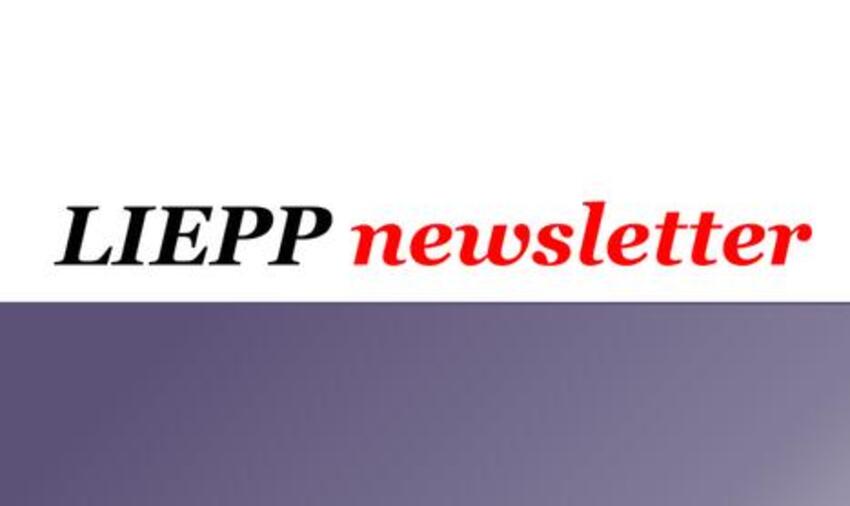
 Actualité Sciences Po
Actualité Sciences Po
To access the latest news from LIEPP, read the Newsletter.
European solidarity in the green transition

 Actualité Sciences Po
Actualité Sciences Po
LIEPP's Socio-fiscal policies and Environmental policies research groups are pleased to convene the seminar :
European solidarity in the green transition:
Evidence from a conjoint experiment on EU climate change mitigation policy
March 14th 2023. 2:30pm-4pm.
Location : Salle du LIEPP. Sciences Po, 1 place Saint-Thomas d'Aquin, 75007 Paris.
Mandatory registration to participate to the seminar in person / remotely
Speaker :
Sharon Baute (University of Konstanz)
Abstract :
To fight climate change, the European Union has developed a roadmap for a new growth strategy – the European Green Deal – which states the EU’s ambition to become the first climate- neutral continent in the world by 2050. However, reductions of emissions might come at the expense of exacerbating social inequalities. Against this background, the currentstudy examines the public attitudes towards EU climate change mitigation policy. Drawing on an original conjoint survey experiment among the German population, the study examines citizens’ preferences towards alternative policy designs. Results show that support for EU climate change mitigation policies depend on the program’s sectoral scope, social spending, financing, and allocation principles. More specifically, policy packages receive stronger support if these are targeted at the renewable energy sector, include social programs, are financed by increasing taxes on the rich, and allocate resources between EU member states based on population size. However, heterogeneous effects are observed by income position, in particular when it comes to the social spending dimension. European climate change mitigation policies which provide support for unemployment benefits, (re)training of workers or subsidies to low-income households are namely more effective in mobilizing support among lower income groups. These findings suggest that social policies can help finding broader support coalitions for the green transition in Europe.
LIEPP IN THE MEDIA - JANUARY 2023

 Actualité Sciences Po
Actualité Sciences Po
Socio-fiscal policies research group
- Réforme des retraites : « Forcer les perdants de la mondialisation à travailler plus longtemps va attiser la colère sociale qui nourrit le RN », tribune de Bruno Palier publiée par Le Monde le 12/01/2023
- Réforme des retraites : le système français, « démultiplicateur des inégalités du marché du travail », entretien avec Bruno Palier publié par Le Monde le 11/01/2023
- Retraites : en dehors de la réforme, point de salut ?, émission de France Culture avec Michaël Zemmour du 10/01/2023
- Retraites : quels sont les arguments qui divisent les partisans et les opposants à la réforme ?, article citant les propos de Michaël Zemmour publié par Ici le 09/01/2023
- Retraites et rapport du COR : "Le déficit n'est pas une menace", entretien avec Michaël Zemmour publié par Arrêt sur images le 08/01/2023
- Réforme des retraites : augmenter les cotisations de quelques euros par mois suffirait-il à équilibrer le système ?, article citant les propos de Michaël Zemmour publié par France Info le 08/01/2023
- Le système économique, un jeu à somme nulle ou positive ?, chronique d'Etienne Wasmer publiée par Les Echos le 04/01/2023
- Rien n’oblige à changer l’âge de la retraite, entretien avec Michaël Zemmour publié par Politis le 04/01/2023
- Réduire la durée d’indemnisation des chômeurs favorise-t-elle le retour à l’emploi, comme le dit Olivier Dussopt ?, entretien avec Clément Carbonnier publié par Libération le 29/12/2022
- Réforme des retraites : à quel âge et pour quoi faire ? / La valeur Travail, émission de France Culture avec Michaël Zemmour du 25/12/2022
Evaluation of democracy research group
- Comment la concentration des richesses impacte notre démocratie ?, émission avec Julia Cagé publiée par Oxfam le 16/01/2023
- L’avenir de la démocratie américaine est-il le nôtre ?, article d'Elisa Chelle publié par AOC le 09/01/2023
Educational policies research group
- Dans le sillage de Parcoursup, la prospérité d’un « marché de l’anxiété », article citant les propos d' Anne-Claudine Oller publié par Le Monde le 17/01/2023
Health policies research group
- Réguler l’installation des médecins : la comparaison avec le cas allemand, article de Matthias Brunn publié par The Conversation le 17/01/2023
- Pourquoi le système de santé français va si mal?, entretien avec Henri Bergeron publié par Le Point le 09/01/2023
- Avec le Covid, la santé est devenue un enjeu politique, entretien avec Henri Bergeron publié par l'Alsace le 06/01/2023
- Les nudges : ces outils pour suggérer les bons comportements sont-ils réellement efficaces ?, article citant les propos d'Henri Bergeron publié par Essentiel Santé le 03/01/2023
LIEPP Newsletter - january 2023

 Actualité Sciences Po
Actualité Sciences Po
To access the latest news from LIEPP, read the Newsletter.
Ten Principles For Policymaking In The Energy Transition

 Actualité Sciences Po
Actualité Sciences Po
LIEPP's Environmental Policies Research Group is pleased to convene the Round table:
Ten Principles for Policymaking in the Energy Transition. EEIST’s 2022 Report launch event in France.
Paris, February 3rd, 2023, 12.30-2 pm CET
Venue: Sciences Po, 9 rue de la chaise, Room 910
Read the Summary report : Ten Principles for Policymaking in the Energy Transition
Presentation :
The most outstanding successes so far in low carbon transitions in China, India, Brazil and Europe were achieved by policies implemented despite, not because of, dominant economic analysis and advice. That was the striking finding of the EEIST (Economics of Energy Innovation and System Transition) project’s report released at COP26. Now, a new report from the same group has been launched in Fall 2022, outlining ten principles for successful policymaking on low-carbon transitions. Based on detailed empirical evidence, these overturn conventional wisdom and suggest a new way forward to help countries accelerate innovation, job creation, and cost reduction in the shift from fossil fuels to clean technologies. The report highlights the need for governments to proactively use the three levers of policy: investment, tax and regulation, to accelerate innovation and cost reduction in clean technologies and to target ‘tipping points’, where clean technologies gain an advantage over fossil fuels, to achieve our climate goals.
LIEPP’s environmental research group is pleased to welcome Pr. Cristina Peñasco, one of the leading authors of the report. She will present the report and its main findings, followed by a round table discussion of the report by leading experts in the field.
The report is available here: EEIST website
The EEIST is a University of Exeter led project, funded by the Department of Business, Energy and Industrial Strategy of the UK Government and by the CIFF foundation.
Keynote :
Pr. Cristina Peñasco (Cambridge University & Bennett Institute)
Panel discussion :
Nicolas Berghmans, IDDRI, Lead European Affairs, Energy and Climate expert
Aurore Colin, I4CE, Cheffe de projet Territoires et climat
Romain Svartzman, Banque de France, Climate Change Centre (CCC)
The round table will be chaired by Charlotte Halpern (Sciences Po, CEE and LIEPP), co-director of LIEPP's environmental policies research group.
Contact : environnement.liepp@sciencespo.fr

Gender and the Welfare State. Understanding, categorizing and dealing with gender (in)equalities

 Actualité Sciences Po
Actualité Sciences Po
LIEPP's Socio Fiscal politicies Research group, RT6 and Espanet France are pleased to convene the symposium:
Gender and the Welfare State. Understanding, categorizing and dealing with gender (in)equalities
19 & 20th of january 2023
Location : Conservatoire National des Arts et Métiers, Paris
Mandatory registration. To register send an email to :
Olivier Giraud (olivier.a.giraud@cnrs.fr) and Claire Vivès (claire.vives@lecnam.net)
This symposium is organized with the Lise CNRS-Cnam laboratory and the Service recherche du Conservatoire National des arts et métiers.




LIEPP IN THE MEDIA - DECEMBER 2022

 Actualité Sciences Po
Actualité Sciences Po
Discriminations and Category-Based policies research group
L'exécutif toujours déterminé à repousser l'âge légal de départ à la retraite, émission de France Culture avec Virginie Guiraudon du 08/12/2022
L’Europe face aux flux migratoires, émission de France Culture avec Virginie Guiraudon du 19/11/2022
Les violences sexistes après #MeToo, recension de l'ouvrage de Catherine Cavalin publié par Actualitté le 17/11/2022
Il faut trouver une nouvelle articulation entre le marché, la famille et l'État social, entretien avec Helene Perivier publié par Eigensinn le 17/11/2022
Evaluation of Democracy research group
Citizen assemblies and the challenges of democratic equality, article d'Annabelle Lever publié par The Conversation le 05/12/2022
Hanouna ou les dangers du télé-populisme, article citant les propos de Julia Cagé publié par L'OBS le 23/11/2022
Les empires médiatiques comme celui de Bolloré dévorent notre démocratie, article citant les propos de Julia Cagé publié par Le Monde le 16/11/2022
Socio-fiscal policies research group
Carte bancaire : l’argent n’a pas de matière, émission de France Culture avec Jeanne Lazarus du 12/12/2022
Précarité étudiante : entre étudier ou manger il faut parfois choisir, émission de France Inter avec Tom Chevalier du 12/12/2022
Il n’y a pas besoin de faire une réforme purement budgétaire des retraites, article de Bruno Palier publié par Alternatives Economiques le 10/12/2022
Retraites, vers un âge légal de départ à 65 ans ?, émission de BFMTV avec Michael Zemmour du 05/12/2022
Cinq pistes pour combler le déficit des retraites sans se fatiguer, tribune de Michael Zemmour publiée par Alternatives Economiques le 05/12/2022
Les femmes se sentent moins légitimes à disposer de leur argent, entretien avec Jeanne Lazarus publié par Causette le 18/11/2022
La hausse inéluctable des taxes foncières, chronique d'Etienne Wasmer publiée par Les Echos le 17/11/2022
La valeur du foncier, recension de l'ouvrage d'Etienne Wasmer et Alain Trannoy publiée par Idées le 16/11/2022
Pourquoi augmenter la taxe foncière ?, émission de France Culture avec Etienne Wasmer du 15/11/2022
Educational policies research group
Qui peut encore acheter près d’un « bon » collège ?, article sur les recherches de Marco Oberti et Quentin Ramond publié par Le Café Pédagogique le 15/12/2022
Ecole : qui a peur de la mixité sociale ?, émission de France Culture avec Marco Oberti du 12/12/2022
«Travailler les compétences de lecture à la maison favorise l’apprentissage à l’école », entretien avec Anne-Claudine Oller publié par LaCroix le 01/12/2022
Les politiques jeunesse sources d’une « citoyenneté économique refusée » ?, article citant les propos de Tom Chevalier publié par Le Courrier des Maires le 01/12/2022
L’État paternaliste, recension de l'ouvrage de Coralie Chevallier publiée par Idées le 28/11/2022
Les méthodes en psychologie, recension de l'ouvrage de Grégoire Borst et Arnaud Cachia publiée par Actualitté le 16/11/2022
LIEPP Newsletter- December 2022

 Actualité Sciences Po
Actualité Sciences Po
To access the latest news from LIEPP, read the Newsletter.
5th Workshop Economics & Politics

 Actualité Sciences Po
Actualité Sciences Po
LIEPP's Evaluation of democracy research group, Lille University and the department of applied economics of the Université libre de Bruxelles are pleased to convene this workshop :
5th Workshop Economics & Politics
Lille University, December 12th and 13th.
PROGRAMME :
Monday 12
9.30 – 10.00 Welcome coffee
10.00 – 12.00 Session 1: Election
Chairman: Q. David (Lille University)
L.Coufalová (Masaryk University), The Grass Is Not Greener on the Other Side: The Role of Attention in Voting Behaviour. Disc: C.Le Pennec and J.Navarro
M.Fonseca (Nova SBE), The Electoral Impact of a Large Return Migration Shock in a Nascent Democracy. Disc: L.Coufalová and Q.David
G.Sandri (Université catholique de Lille), Did Perceptions of Governmental Action Against Covid-19 Affect Voting Choices in the 2022 French Presidential Election ? Disc: M.Fonseca and A.François
C.Le Pennec (HEC Montréal), Keep your Enemies Closer: Strategic Candidate Adjustments in U.S. and French Elections. Disc: G.Sandri and P-G.Méon
12:00 – 14:00: Lunch
14.00 – 16.00 Session 2: Conflict
Chairman: E. Grossman (Sciences PO)
N.Zakharov (University of Freiburg), Who Goes to (Proxy) War? The Long Shadow of the USSR Collapse and Volunteer Russian Fighters in Donbas. Disc: S.Varaine and S.Panel
L.Chauvet (Université Paris 1 Panthéon-Sorbonne), D-Day in the long-run: Economic recovery after the Battle of Normandy? Disc: N.Zakharov and N.Lagios
A.Pietri (University of Montpellier (CEE-M)), Testing evolutionary game theory in the lab: The case of a Tullock contest. Disc: L.Chauvet and A.Chatelain
S.Varaine (Pacte - Sciences Po Grenoble), Dying to die. New micro and macro evidence that suicide terrorists are suicidal. Disc: A.Pietri and Q.David
16.00 – 16.30 Coffee Break
16.30 – 18.00 Session 3: Norms and gender
Chairman: A. François (Lille University)
E.Borisova (Université de Lille), Agricultural ancestry and gender roles. Disc: P.Schafer and J.Lacroix
J.Haddad (Université libre de Bruxelles), Settlers and Norms. Disc: E.Borisova and J.Beuve
P.Schafer (University of Fribourg), Yes, we can! Political context and female political participation after their enfranchisement. Disc: J.Haddad and V.Westergren
19.30 – ... : Social Dinner
Tuesday 13
8.00 – 8.30 Welcome coffee
8.30 – 10.00 Session 4: Protest and political crisis
Chairman: S. Panel (Sciences PO Grenoble)
B.Monnery (EconomiX), Participatory democracy in step with social protest? Evidence from the Yellow Vests movement. Disc: C.Varriale and F.Briatte
M.Dorsch (Central European University), From the street to the ballot box: BLM protests and voting in federal elections. Disc: B.Monnery and I.Tojerow
C.Varriale (Bocconi University), The effectiveness of leaders’ public communication during crises. Disc: M.Dorsch and E.Grossman
10.00 – 10.30 Coffee Break
10.30 – 12.30 Session 5: Public opinion and action
Chairman: I. Tojerow (ULB)
Y.Elkhateeb (Paris 1 Panthéon-Sorbonne University), (Mis-)information technology: Internet use and perception of democracy in Africa. Disc: M.Guillot and E.Grossman
J.Fidrmuc (Université de Lille), Who Believes in Conspiracy Theories, and Why? Disc: T.Bastin and I.Tojerow
T.Schnatterer (Sciences Po Bordeaux), What governments want to know about citizens’ preferences: the agenda of government polls in Germany (2013-2020). Disc: J.Fidrmuc and V.Westergren
M.Guillot (Université de Liège), Is Charitable Giving Political? Evidence from Wealth and Income Tax Returns. Disc: T.Schnatterer and A.François
12.30 – 14.00 Lunch
14.00 – 15.30 Session 6: Politics of identity and culture
Chairman: P-G. Méon (ULB)
M.Laméris (University of Groningen), National identification and voting behaviour. Disc: V.Pons and N.Lagios
O.Hammar (Research Institute of Industrial Economics (IFN)), The Cultural Assimilation of Individualism and Preferences for Redistribution. Disc: M.Laméris and S.Panel
V.Pons (Harvard University), How Neighborhoods Shape Political Identity and Behavior: Evidence from Young Movers. Disc: O.Hammar and J.de Wit
This workshop was convened with the support of La Région Hauts-de-France.
Seminars of the Environmental policies research group
f280.jpg?1702994724)
 Actualité Sciences Po
Actualité Sciences Po
The environmental policies research group organizes seminars open to all, presenting research work on various topics related to its research themes.
Upcoming sessions :
Past sessions :
2023
- December 11th 2023 : The Comparative Politics of Just Transition Policies: How and why the new social risks of decarbonisation were addressed in Spain and Ireland. Programme
- December 5th 2023 : Side event COP28: Low carbon and climate-resilient health care: global perspectives on solutions and practices. Programme
- December 1st 2023 : Side Event COP28 : Pertes et préjudices: un mécanisme de justice climatique ?. Programme
- November 29th 2023 : LIED-LIEPP joint seminar : Une économie qui tourne en rond ? (Linear vs. circular views of the human-nature relationship in the history of economic thought; Life Cycle and Systems Thinking Methods to Support Policy Design and Evaluation when Transitioning to a Decarbonised, Circular Economy; European sustainability targets and policy assumptions in 2030 and beyond: a foresight assessment for circular economy) Programme
- November 21st 2023 : Changement climatique : quelle communication scientifique ?. Programme
- November 20th 2023 : Roles of Big Data Analytics in Governing Urban Energy Transitions: An Experience Sharing of a Transdisciplinary Project on Smart Energy communities in Hong Kong. Programme
- July 6th 2023 : Four Faced How Sustainability Governance is Failing our Planet and What to Do About it. Programme
- June 20th 2023 : Décarboner la route, une grande cause nationale. Programme
- May 30th 2023 : LIED – LIEPP joint seminar: Agriculture et cycle de l’azote. Programme
- March 22nd 2023 : Preparing for the next winter - energy supply security in the Eu. Programme
- March 14th 2023 : European solidarity in the green transition: Evidence from a conjoint experiment on EU climate change mitigation policy. Avec Sharon Baute (University of Konstanz, LIEPP). Programme
- February 3rd 2023 : Ten Principles For Policymaking In The Energy Transition. Programme
2022
- 05/12/2022 : Policy Instruments for the energy efficiency sector: enabling mechanisms for a “FIT for 55”. Programme
- 05/12/2022 : Journée (In)Justices environnementales et climatiques : Les justices au coeur de la transition sociale et écologique des territoires. Programme
- 23/09/2022 : Planetary health, protecting nature to protect ourselves : a discussion with Samuel Myers. Programme
- 15/09/2022 : Politiques climatiques et énergétiques du "Plan Vert" européen. Programme
- 8/09/2022 : Governing Nutrient Pollution Beyond Farmers. Programme
- 03-04/05/2022 : Journées Limites Planétaires. Programme
- 11/04/2022 : Limites planétaires : débats académiques et impact sur les politiques publiques
- 6/04/2022 : The politics and policy of the allocation of development finance for renewable energy projects. Programme
- 4/04/2022 : Planifier la transition vers une économie neutre en émission : le rôle des modèles énergie-environnement-économie (en partenariat avec AIRE)
- 15/03/2022 : 3ème workshop climat urbain. Programme
- 7/03/2022 : Évaluation économique de la Stratégie Nationale Bas Carbone en Tunisie (AIRE). Programme
- 8/02/2022 : Revue de littérature « Gouvernance et politiques publiques de transition écologique »
2020
- 14/12/2020 : Séminaire sur les îlots de chaleur. Programme
- 09/12/2020 : The impact of climate change on urban health: The Lancet Countdowns 2020 Report Launch Event in France. Programme
2015
- 13/02/2015 : Vulnérabilité socio-environnementale face aux changements climatiques. Programme
Call for applications for a 12-month (2024) postdoctoral fellowship in policy evaluation at LIEPP

 Actualité Sciences Po
Actualité Sciences Po
Position Definition: Post-doctoral fellowship
Location: The postdoctoral researcher will be based at LIEPP, Sciences Po in Paris, France
Type of contract: Temporary contract
Contract duration: 12 months
Expected start date: January 1st, 2024 (non negociable – the contract will have to end on December, 31st, 2024).
Work time: full-time
Required degree level: PhD in any relevant disciplines (Sociology, Political Science, Economics, Psychology, Public Health, or related fields)
Application deadline: November 6th, 2023
The Laboratory for Interdisciplinary Evaluation of Public Policies (LIEPP), a research platform at Sciences Po (Paris, France), launches a call for applications for a postdoctoral fellowships of 1 year. This call aims at supporting young researchers’ careers and fostering excellence in policy evaluation.
Created in 2011 under the "Investissements d'avenir" programme of the French National Research Agency, this laboratory has been redeployed since 2020 in partnership with Université Paris Cité. LIEPP develops an innovative approach to evaluative research: articulating quantitative, qualitative and comparative methods; confronting disciplinary views on the evaluated policies; and promoting the cross-fertilization of methodological and theoretical inputs from different disciplines, with those from the international field of evaluation. LIEPP thus works on anchoring policy evaluation in academic research.
This call for applications aims to promote research projects evaluating policies in line with the research proprieties or one or several of our research groups (please see online description of each research group for details):
- Discriminations And Category-Based Policies
- Educational Policies
- Environmental Policies
- Evaluation of Democracy
- Health Policies
- Socio-Fiscal Policies
Applications are welcome from all disciplines.
Functions
The successful candidate is expected, for the duration of their contract:
- To conduct their research project as submitted in relation with the research groups indicated above,
- To participate in the scientific activities of the laboratory (annual seminar, seminars of the corresponding research group).
The research activities are expected to lead to peer-reviewed publications (which may come out after the end of the contract). In this perspective, research teams are encouraged to submit a working paper for LIEPP’s publication collection, as well as a policy brief to be submitted after the peer-reviewed publication has been accepted.
We expect the postdoctoral fellows to work 80% on their LIEPP-related postdoctoral research and 20% on their other activities (ex. publications based on doctoral research, job search, etc.).
Application requirements
Doctoral degree should have been completed (thesis defended) before December, 1st, 2023 at the latest (a proof of defense is required as part of the application).
Sciences Po’s working languages are English and French. Mastering French is helpful, but not required for the positions. The publications expected to derive from the projects will be in English.
Employment conditions
Selected candidates will be recruited on a one-year contract from January, 1st, 2024 to December, 31st, 2024 (non negociable – the contract will have to end on December, 31st, 2024 at the latest).
The remuneration is 3,400 € gross (salaire brut) per month. Employment in France guarantees full access to healthcare, other social security benefits and social acquis (such as luncheon vouchers, contribution to transport costs).
The successful candidate will benefit from LIEPP’s working environment. Each candidate will receive a personal research fund of 2,000 euros for the duration of their contract.
Location
Sciences Po – Laboratory for Interdisciplinary Evaluation of Public Policies (LIEPP), Paris, France. Our offices are located in the center of Paris. A workspace will be available for the postdoctoral fellow, as well as access to the Sciences Po Library.
Application procedure
Applications should be sent to liepp@sciencespo.fr [subject: Postdoctoral Fellowship]. They include:
- A curriculum vitae;
- A cover letter stressing the proposed project’s contribution to innovative policy evaluation in one of the domains/thematic priorities of LIEPP’s research groups;
- A research proposal including project title, abstract (300 words maximum), project description specifying the theoretical framework of the project, the research question(s), the evaluative approach, the methods, the expected results, a work plan for the 12 months, as well as precise indications on planned publications and dissemination strategy (2500 words maximum);
- A proof of your PhD defense, or an administrative document certifying that your defense is scheduled to take place before December, 1st, 2023 at the latest.
- A single-authored piece of writing in English, whether a chapter of the PhD thesis, a conference paper or an article submitted to a journal.
The deadline for application is Monday, November, 6th, 2023.
The results of the selection will be made available in the second half of November.
The selection of applications will be made by the laboratory council (composed of the research groups directors and the director of LIEPP), on the basis of the scientific quality of the project and of the candidate’s profile, the project’s contribution to policy evaluation, and its fit with the priorities of one of LIEPP’s research groups. Remote interviews may be organized in order to prepare the selection.
LIEPP IN THE MEDIA - NOVEMBER 2022

 Actualité Sciences Po
Actualité Sciences Po
Discriminations and Category-Based policies research group
- Métiers en tension : les pays européens prennent conscience du manque de main-d'œuvre nationale, article citant les propos de Virginie Guiraudon publié par France 24 le 03/11/2022
Evaluation of Democracy research group
- L’Information est un bien public, recension de l'ouvrage de Julia Cagé et Benoît Huet publiée dans Pressenza le 28/10/2022
Socio-fiscal policies research group
- La hausse inéluctable des taxes foncières, chronique d'Etienne Wasmer publiée par Les Echos le 17/11/2022
- Le grand entretien - Bruno Palier Retraites : est-on condamné à travailler de plus en plus ?, émission d'Arte avec Bruno Palier le 09/11/2022
- Les réformes de l’exécutif visent à conforter une rupture avec le développement historique du système social français, tribune de Michaël Zemmour publiée par Le Monde le 21/10/2022
- Le débat : Budget, passage en force au 49-3, émission de BFMTV avec Michaël Zemmour du 19/10/2022
- Pour un salarié, la prime c’est du cash avec moins de droits sociaux associés, entretien avec Michaël Zemmour publié par La Marseillaise le 18/10/2022
Educational policies research group
- Quel est l'apport des neurosciences à l'école ?, émission de France Culture avec Grégoire Borst du 14/11/2022
- Comment fonctionne le cerveau (en ébullition) d’un adolescent ? entretien avec Grégoire Borst publié par Nice Matin le 11/11/2022
- Comment les neurosciences expliquent le comportement des adolescents, entretien avec Grégoire Borst publié par Ouest France le 02/11/2022
- L’anesthésie générale des enfants pourrait-elle avoir des conséquences cérébrales structurelles et comportementales ?, article citant les travaux de Grégoire Borst publié par Le journal Catalan le 02/11/2022
Health Policies research group
- Accès aux soins : l'amer bilan de la pandémie, émission de France Culture avec Elisa Chelle du 01/11/2022
- L’industrie du développement : conflits d’intérêt, (auto)censure et belles histoires édifiantes, tribune de Valery Ridde publiée par AOC le 01/11/2022
- Pour passer la rampe médiatique, un conflit social doit répondre à certains critères, entretien avec Jérôme Pélisse publié par Ouest France le 18/10/2022
Qui peut encore acheter un logement proche d’un bon collège ?

 Actualité Sciences Po
Actualité Sciences Po
L'axe Politiques éducatives du LIEPP a le plaisir de vous inviter au séminaire :
Qui peut encore acheter un logement proche d’un bon collège ? Accès à la propriété et sectorisation scolaire dans la métropole parisienne
13 décembre. 17h - 18h30
Lieu : Sciences Po, 1 place St Thomas d'Aquin, 75007 Paris
Salle : Salle d'innovation du LIEPP
Intervenants :
- Marco Oberti (Sciences Po - CRIS et LIEPP)
- Quentin Ramond (Institut d’études urbaines et territoriales, Université catholique du Chili)
Résumé :
Nous analysons la relation entre l’accession à la propriété et deux dimensions des inégalités scolaires : la distribution des ménages entre les secteurs scolaires et l’offre de collège public et privé de proximité permettant d’activer les stratégies d’évitement. L’analyse empirique s’appuie sur le traitement de la Base d’informations économiques notariales (BIEN, 2006-2015) que nous apparions avec la carte scolaire de Paris et des départements de la petite couronne et les caractéristiques des collèges. Les résultats montrent que les écarts de prix immobilier en fonction de la qualité du collège public local ont augmenté de manière significative. Par conséquent, les ménages à bas revenus sont de plus en plus exclus du marché de l’accession, et tout particulièrement dans les meilleurs secteurs scolaires, tout comme une frange des classes moyennes qui s’est progressivement reportée sur le marché immobilier dans les secteurs scolaires peu attractifs. Les catégories supérieures ont consolidé leur accès à la propriété dans toute la métropole parisienne, y compris dans les secteurs scolaires les plus valorisés. Finalement, cette étude montre que la sectorisation scolaire joue un rôle clef dans la reproduction des inégalités sociales, puisqu’elle affecte la qualité de l’établissement de scolarisation des enfants et les possibilités d’accumulation patrimoniale, ce qui pose des défis complexes pour les politiques publiques.
“La recherche expérimentale au service de l’éducation”, conférence de lancement du programme IDEE
e950.png?1668526142)
 Actualité Sciences Po
Actualité Sciences Po
L'axe Politiques éducatives du LIEPP est ravi de vous inviter à la conférence :
La recherche expérimentale au service de l'éducation
Le Lundi 28 novembre, 9h - 18h30, en présentiel
Lieu : Lycée Pierre-Gilles de Gennes 13 rue Pirandello, 75013 Paris.
Résumé :
Le 28 novembre 2022 se tiendra la conférence de lancement du programme “Innovations, Données et Expérimentations en Éducation" (IDEE) intitulée “La recherche expérimentale au service de l’éducation”. La conférence est organisée par le J-PAL Europe, la Direction générale de l’enseignement scolaire et le Conseil scientifique de l’éducation nationale, du Ministère de l’Education nationale et de la Jeunesse.
En présence de Monsieur Pap Ndiaye, Ministre de l’Education nationale et de la Jeunesse, et de Madame Esther Duflo, prix Nobel d’économie et co-directrice de J-PAL, la journée aura pour objectif de créer des temps de partage de connaissances, et de retour d’expérience, autour de la recherche expérimentale en éducation.
Qu’il s’agisse de la réduction des inégalités scolaires, de l’amélioration des compétences en sciences ou encore du renforcement des compétences socio-émotionnelles des élèves, l’expérimentation scientifique peut en effet aider à identifier des solutions efficaces s’appuyant sur l’expertise des chercheurs et chercheuses, mais aussi sur celle des cadres, personnels et partenaires de l’Education nationale.
Le programme IDEE, financé par le Programme d’investissements d’avenir via l’Agence nationale de la recherche, est porté par l’université PSL et mis en œuvre par le J-PAL Europe, avec de nombreux laboratoires partenaires. Il vise à soutenir le développement de la recherche expérimentale au service de l’éducation et à promouvoir l’utilisation des résultats produits pour nourrir les politiques publiques et les pratiques professionnelles.
Le LIEPP prend part dans le volet consacré aux outils méthodologiques et aux instruments de mesure pour la recherche expérimentale par le développement de protocoles de recherche et de mesure partagés. Il se focalise plus particulièrement sur la mesure des dimensions parentales en éducation.
La conférence aura notamment pour objectif : de présenter les enjeux, méthodes et résultats de la recherche expérimentale en éducation ; d’échanger avec l’ensemble des participants sur l’intérêt et les modalités pratiques pour mener à bien des expérimentations scientifiques ; et de débattre des agendas de recherches et d’actions à la croisée des enjeux de politiques publiques, de terrain et de recherche.
Policy Instruments for the energy efficiency sector: enabling mechanisms for a “FIT for 55”

 Actualité Sciences Po
Actualité Sciences Po
LIEPP's Environmental Policies Research Group and the European Investment Bank are pleased to convene:
Policy Instruments for the energy efficiency sector: enabling mechanisms for a “FIT for 55”
Kick-off consultation and engagement workshop
Brussels, 5 december 2022, 12.30 pm - 5 pm CET
Venue: EIB Office, Rond-Point Robert Schuman, 6, B-1040 Brussels
Workshop organizers :
Cristina Peñasco (Cambridge University & Bennett Institute) and Marc Ringel (Sciences Po, European Chair for Sustainable Development and Climate Transition).
Presentation :
Energy efficiency stands out as a key policy area in Fit for 55-package, the RePowerEU communication and the common agreement of EU member states on a voluntary reduction of natural gas demand by 15%. It is described as one of the quickest, fastest and more cost-effective ways to deliver all together climate, energy and social goals.
With the negotiations of the notably Energy Efficiency Directive (EED) coming to its last phase, this raises many questions about the next step, the implementation of the updated legislation: How can a swift and ambitious implementation in the member states be supported? Is further guidance and governance needed from the European level? Which measures and policy options should be frontloaded to deliver quick results? Did the negotiations leave out policy options that could be taken up in the next round of designing policies? How can especially action on energy efficiency in the building sector be enhanced with a clear gap between intended and implemented retrofit decisions?
The project “Policy Instruments For The Residential Energy Efficiency Sector: Enabling Mechanisms For A Fit For 55 Efficient Transition” (PIREES55) aims to look into these questions by aligning closely with experts and policy actors. The present workshop acts as a kick-off meeting to gather the views and recommendations from policy-makers and practitioners to co-design the focus of the research efforts. Based on inputs from the European Commission and the European Investment Bank it will allow experts to exchange and discuss the next steps of EU energy efficiency policies.
The workshop will be chaired by Charlotte Halpern (Sciences Po, CEE & LIEPP) and Fulceri Bruni Roccia (EIB). It is organized with the support of the Sciences Po European Chair for Sustainable Development and Cambridge University.
Contact : charlotte.halpern@sciencespo.fr

Parliamentary Stayers in Western Democracies: Mind the Gender-Gap in Political Endurance

 Actualité Sciences Po
Actualité Sciences Po
LIEPP's Discriminations and category-based policies research group and the CEE are pleased to convene this seminar :
Parliamentary Stayers in Western Democracies: Mind the Gender-Gap in Political Endurance
Tuesday 22 Novembre, 12:30 - 14:00, hybrid event (Zoom or in person)
Location : Sciences Po, 1 place Saint-Thomas d'Aquin 75007
Room : Salle K.011
Speaker :
- Ragnhild Louise Muriaas (University of Bergen)
Ragnhild Louise Muriaas is a Professor of Political Science at the Department of Government, University of Bergen
Earlier this year Ragnhild Louise Muriaas started a project funded by The European Research Council (ERC-Consolidator) with the title “Gender-Gap in Political Endurance: a novel political inclusion theory” (SUCCESS). The paper discuss the novelty of the concept of political endurance and aims to establish how the size of a gender gap in political endurance varies over time and countries in western democracies.Ragnhild Louise Muriaas obtained her PhD in comparative politics at the University of Bergen in 2008. Her research concerns questions of politics and gender with a focus on representation, political careers, and political financing. She was the PI of a large FRIPRO project financed by the Research Council of Norway called “Money Talks: Gendered Electoral Financing in Democratic and Democratizing States” (2016-2021) and she is currently also a research partner in a project on gender aspects of political violence.
She has published four books—one monography, two edited volumes and a text book, and she has published articles in such journals as the American Political Science Review, Comparative Political Studies, African Affairs, Political Studies and International Political Science Review. From 2017 to 2021 she served as the Vice Dean of Research at the Faculty of Social Sciences and the leader of the board at the Centre for Women's and Gender Research (SKOK) at the University of Bergen. She is a visiting scholar at LIEPP this semester and will join the Center for European Studies and Comparative Politics in the Spring.
Discussant :
- Elisa Bellè (CEE)
Abstract :
Based on research conducted by Ragnhild Louise Muriaas and Torill Stavenes
Read the paper : Parliamentary Stayers in Western Democracies: Mind the Gender-Gap in Political Endurance
The scholars study how gender shapes political endurance in parliaments, building on the research documenting how newcomers are disadvantaged their first term in office, while senior members enjoy certain privileges. Thus, if there are gender gaps in political endurance women could face more barriers than men in getting their job done as representatives. They put forward three different measures to study gender gaps in political endurance to find out if, how and when men are more likely than women to be a parliamentary stayer. Studying the endurance of all parliamentarians in 10 western democracies from 1965 to 2021 they show that there are gender gaps in political endurance across the different measurements, but that gender gaps are particularly apparent if they concentrate on those that have served as parliamentarians for three or more terms.
For more information, read LIEPP's interview with Ragnhild Muriaas "Why endurance matters to assess the gender gap in political representation"
LIEPP IN THE MEDIA : OCTOBER 2022

 Actualité Sciences Po
Actualité Sciences Po
Axe évaluation de la démocratie
- Médias : Une concentration inquiétante, article citant Julia Cagé publié par Syndicalisme Hebdo le 30/09/2022
- Ils défendent l’audiovisuel public d’une même voix, article citant Julia Cagé publié par Télérama le 27/09/2022
- L’audiovisuel public est un pilier de la démocratie, entretien avec Julia Cagé publié par l'Humanité le 17/09/2022
Axe évaluation des politiques socio-fiscales
-
Comment le couple enrichit les hommes et appauvrit les femmes, article citant Jeanne Lazarus publié par l'Obs le 14/10/2022
-
Il y a urgence à restaurer l'envie de travailler, chronique d'Etienne Wasmer publié par les Echos le 12/10/2022
-
Retraites: les projections de déficits ont-elles été artificiellement exagérées?, article citant Michaël Zemmour publié par Libération le 03/10/2022
-
Réforme des retraites : pourquoi des économistes contestent les chiffres du rapport du COR brandi par le gouvernement, interview de Michaël Zemmour dans La Dépêche du 30/09/2022
-
Moduler l’assurance chômage, un nouvel exemple des méfaits du faux bon sens, article de Clément Carbonnier publié par Alternatives Economiques le 27/09/2022
-
Argent : pourquoi plafonner les paiements en liquide ?, émission de France Culture avec Jeanne Lazarus du 27/09/2022
-
Les termes du débat : Assistanat, émission de France Culture avec Jeanne Lazarus du 23/09/2022
-
Assurance-chômage : « L’effet à attendre de la nouvelle réforme est une pression à la baisse sur les salaires », tribune de Clément Carbonnier publiée par Le Monde le 22/09/2022
-
Le débat : Neutralité carbone en 2050 visée par le fonds souverain norvégien, émission de BFMTV avec Michaël Zemmour du 20/09/2022
-
Financement des retraites : le système est-il en péril ?, émission de France culture avec Michaël Zemmour du 15/09/2022
Axe politiques éducatives
- Apprendre à coopérer, recension de l'ouvrage de Yann Algan et Elise Huillery publié par Les Echos le 11/10/2022
- Que se passe-t-il dans le cerveau de nos adolescents ?, émission de France Inter avec Grégoire Borst du 28/09/2022
- Peut-on éviter la récession ? Le budget 2023 est-il réaliste ? Les débats de l'éco, émission de FranceInfo avec Elise Huillery du 24/09/2022
- « Les Derniers Secrets de notre cerveau » dans « Le Monde de Jamy », émission de FranceTV avec Grégoire Borst du 21/09/2022
- Le duel des critiques, émission de BFMTV avec Yann Algan du 17/09/2022
Axe politiques de santé
- La crise des opioïdes pourrait-elle arriver en France?, article d'Elisa Chelle publié par AOC le 17/10/2022
- Assurance santé comportementale : la révolution qui n’a pas eu lieu, article citant Elisa Chelle publié par La Tribune de l'Assurance le 14/10/2022
- « Il existe aujourd’hui une opportunité unique de faire converger réformes de santé et politiques climatiques », tribune de Matthias Brunn dans Le Monde publié le 09/10/2022
- Dopesick : l’industrie de l’addiction, émission de France culture avec Elisa Chelle du 05/10/2022
- "Show médiatique" ou "réussite"? Le CNR voulu par Macron à l'épreuve de la santé, article citant Elisa Chelle publié par Challenges le 05/10/2022
- Santé : En France, les malades dépensent le moins, article citant Elisa Chelle publié par Challenges le 01/10/2022
- Budget, sécurité sociale : est-ce vraiment la fin du quoi qu’il en coûte ?, émission de France culture avec Isabelle Durand-Zaleski du 28/09/2022
Axe politiques environnementales
- La ville à l’heure de la sobriété, émission de France Culture avec Charlotte Halpern du 11/10/2022
Journée de restitution Projet REF-SANTE
L'axe Politiques de santé du LIEPP a organisé une journée de restitution :
Journée d'étude autour du projet REF-SANTE.
Vendredi 11 novembre à Londres.
Résumé du projet :
La réforme des études de santé, inscrite dans la loi du 24 juillet 2019 et en vigueur depuis la rentrée 2020, met fin à la Première Année Commune aux Études de Santé (PACES) et au numerus clausus. Le projet REF-SANTE vise une analyse scientifique de la réforme depuis sa conception jusqu’à sa mise en œuvre. L’évaluation porte à la fois sur le contexte de la décision politique et sur son impact sur les universités et ses usagers, notamment les inégalités de réussite et d’expérience étudiante.
Programme :
10h-10h45 : Acceuil et introduction
10h45-11h : Alice Oliver (Université de Lille / CRIS) et al. "The enactment and reception of the French reform of medical studies"
11h05-11h30 : Q&A
11h55-12h10 : Kath Woolf "Social background and medical school choice in the UK"
12h15-12h30 : Claudia Finger "Stratified diversity? Application strategies and admission chances for medical schools in Germany"
12h35-13h00 : Q&A
14h00-14h15 : Sally Curtis, Heather Mozley "Bursting bubbles: Exploring discourses, perceptions and experiences of widening participation in two UK medical schools"
14h20-14h35 : Anouk Wouters "How moving from lottery-based admissions to selection-based admissions impacted student diversity in the Netherlands"
14h35-14h50 : Q&A
15h15-15h30 : Léon Marbach & Agnès van Zanten "Applications and admissions in French medical studies"
15h35-15h50 : Paul Tiffin "Equality implications of selection to medicine on non-cognitive factors"
15h55-16h20 : Q&A
16h40-18h00 : Collaboration and Special Edition planning
Journée (In)Justices environnementales et climatiques

 Actualité Sciences Po
Actualité Sciences Po
L'axe Politiques environnementales du LIEPP et le Centre des Politiques de la Terre sont ravis de vous inviter à la journée d'étude :
Journée (In)Justices environnementales et climatiques :
Les justices au coeur de la transition sociale et écologique des territoires
Lundi 5 décembre, 9h00 - 18h, en présentiel
Lieu : Amphithéâtre Albert Sorel, 27 rue Saint Guillaume, 75007 Paris
Résumé :
Les inégalités socio-écologiques sont au cœur des enjeux de transition sur les territoires. Or en se centrant sur les objectifs d’atténuation et en négligeant relativement les questions d’adaptation au changement climatique, les politiques de transition exacerbent les inégalités. Cependant, des mobilisations variées en configurations, en modes d’interpellation, ou encore en publics, innovent en lien avec les acteurs publics dans un esprit de justice sociale et de solidarité. Cette journée, organisée à la suite du projet de recherche CIVIC ACT 2, explore les manières selon lesquelles action collective et publique se ressaisissent des réponses à apporter aux crises sociale et environnementale à l’échelle des territoires habités dans un esprit de justice sociale et de solidarité collective. Cette journée de recherche porte sur les justices environnementale et climatique, au cœur de la transition des territoires.
Programme :
9h00 : Accueil
9h30 – 11h : Richesse de l'action collective dans la transition
Intervenant·es : Camille Arnodin (directrice d’études qualitatives), Charles Aurouet (Chargé de mission Habitat et renouvellement urbain. Service politique de la ville - DDCT), Léa Billen (Université de Nanterre), Elisabeth Lehec (Chargée de mission, Ville de Paris), Hugo Rochard (Ladyss, Université Paris Cité)
Discutante : Laurence Grandchamp (MCF Université de Strasbourg)
11h20 – 13h : La démocratie locale aux prises avec la crise climatique
Intervenant·es :
Laurent Monnet (Maire adjoint à la transformation écologique Saint-Denis,Plaine Commune,Président de l’ALEC), Thomas Lamarche (Université Paris Cité), Sylvain Raifaud (Conseiller municipal et métropolitain de Paris), Stéphane Vincent (Délégué général de la 27ème région), et sous réserve Bernard Prieur (élu Ivry-sur-Seine)
Discutante : Léa Billen (Université de Nanterre)
13h – 14h30 : Déjeuner
14h30 – 16h : Enjeux de justices et inégalités sociales, environnementales et climatiques
Intervenant·es : Nathalie Blanc (CNRS, Université Paris Cité), Jean Chiche (Sciences Po), Laurence Grandchamp (Université de Strasbourg), Eloi Laurent (OFCE), Samuel Rufat (CY Cergy-Pontoise)
Discutante : Caroline Gallez (Université Gustave Eiffel)
16h20 – 17h30 : Regards croisés sur quatre territoires engagés dans la transition
Intervenant·es : Diego Antolinos-Basso (CEVIPOF-médialab, Sciences Po), Nathalie Blanc (CNRS, Université Paris Cité), Jean Chiche (CEVIPOF, Sciences Po), Caroline Gallez (Université Gustave Eiffel), Eléonore Genest (LIEPP)
18h00 : Cocktail et buffet

L’économie du savoir-être
006c.jpg?1669912000)
 Actualité Sciences Po
Actualité Sciences Po
L'axe Politiques éducatives du LIEPP a le plaisir de vous inviter au séminaire :
L'économie du savoir-être
Reporté au jeudi 1er décembre (initialement le 24 novembre), 17h - 18h30, en présentiel
Lieu : Sciences Po, 27, rue Saint Guillaume, 75007 Paris
Salle : Amphi Jeannie de Clarens
Intervenants :
Résumé :
Toutes les études internationales le montrent, les Français se démarquent par un faible niveau de confiance en soi, de sentiment d’efficacité personnelle, de persévérance et de coopération. Aux racines du phénomène, un système éducatif qui se focalise uniquement sur les facultés intellectuelles et néglige la relation à soi et aux autres. Résultat, nos élèves sont plus anxieux qu’ailleurs, craignent d’être considérés comme incompétents en cas d’échec, considèrent la réussite scolaire comme innée, et reculent devant l’obstacle et l’inconnu.
Dans ce séminaire, nous présentons une synthèse des recherches montrant qu’ un tel déficit de compétences sociales et comportementales a un impact élevé sur la réussite et les inégalités scolaires, l’insertion et la vie professionnelles et, plus généralement sur l’innovation et la réussite économique. Ces recherches sont présentées dans notre livre « L’économie du savoir-être », co-écrit par Elise Huillery et Yann Algan (Presses de Sciences Po 2022).
“Saturé de genre” : Affirmer ou minimiser le genre dans les papiers d'identité
_07851.png?1667984777)
 Actualité Sciences Po
Actualité Sciences Po
L'axe Discriminations et politiques catégorielles du LIEPP a le plaisir de vous inviter au séminaire :
“Saturé de genre” : Affirmer ou minimiser le genre dans les papiers d'identité
Jeudi 10 novembre, 12h30 - 13h30, format hybride
Lieu : Sciences Po, 1 place St Thomas d'Aquin, 75007 Paris
Salle : Salle d'innovation du LIEPP
Inscription obligatoire pour assiter au séminaire à distance / en présentiel
Intervenante :
Abigail Saguy (UCLA)
Discutante :
Lila Braunschweig (SciencesPo)
Résumé :
La littérature des mouvements sociaux identifie un dilemme auquel les personnes militantes se confrontent entre les principes d'affirmation et de déconstruction de l'identité de genre. S'appuyant sur des entretiens approfondis avec 87 personnes militantes de diverses perspectives politiques, cette recherche montre qu'en discutant des documents d'identité, les progressistes ont adopté une approche pragmatique qui reconnaissait à la fois les avantages et les inconvénients d’une telle forme de reconnaissance. Elles ont exprimé leur soutien à la fois aux initiatives qui fourniraient des options supplémentaires de marqueurs de sexe/genre sur les pièces d'identité et à celles qui supprimeraient complètement les marqueurs de sexe/genre des pièces d'identité. Cette recherche soutient que les progressistes ont facilement perçu les inconvénients de la reconnaissance dans le cas des pièces d'identité parce que ce contexte—plus que d'autres—suscite des inquiétudes concernant la réglementation et la surveillance de l'État. Les personnes militantes conservatrices, qui préconisent de limiter le pouvoir du gouvernement dans d'autres contextes, étaient moins susceptibles que les progressistes de soutenir l'idée de supprimer les marqueurs de sexe/genre des pièces d'identité du gouvernement, faisant appel à d'autres priorités pour justifier cette position. Ensemble, ces résultats soulignent à quel point les préoccupations pragmatiques motivent les personnes militantes. Ils montrent également comment l'orientation politique et le contexte social façonnent les préférences pour mettre l'accent sur le sexe/genre plutôt que de le réduire.
Sur la base de l'article Too full of gender : How activists conceptualize the promises and pitfalls of gender-neutral identity documents.
Handicap, genre et emploi : regards croisés

 Illustration Kate McDonnel, 2022
Illustration Kate McDonnel, 2022
L'axe Discriminations et politiques catégorielles du LIEPP a le plaisir de vous inviter à la journée d'étude :
HANDICAP, GENRE ET EMPLOI : REGARDS CROISÉS
Mardi 8 novembre, 9h15-17h15, format hybride
Lieu : Salle 910, 9 rue de la Chaise, Paris 7ème
Compte rendu de la journée "Handicap, genre et emploi : Regards croisés"
Résumé :
Journée de restitution et d’échanges autour du projet de recherche participative « Handicap, genre et précarité professionnelle : parcours biographiques et réception de l’action publique », financé par la FIRAH et l’Agefiph et mené à Sciences Po (CRIS-LIEPP) sous la direction d' Anne Revillard. Cette journée donnera lieu à des échanges autour du projet avec des chercheur.e.s, des personnes concernées et des acteurs publics et associatifs.
La recherche visait un double objectif : une meilleure connaissance des facteurs de précarisation professionnelle des femmes handicapées, et l’identification de pistes d’amélioration de l’action publique à partir de l’expertise expérientielle des personnes. Elle a été conçue en étroite relation avec six associations du secteur qui partagent un engagement commun en faveur de l’emploi des personnes handicapées, tout en ayant des formats et des spécialisations complémentaires : LADAPT, Agefiph, apiDV, APF-France handicap, Femmes pour le Dire Femmes pour Agir (FDFA), Fibromyalgie France.
Pour plus de renseignements, consultez la page du projet.
Programme prévisionnel :
9h20 - Mots d’accueil par Cécile Vallée (Chargée de développement, FIRAH) et Christophe Roth (Président de l’Agefiph)
9h30 - Handicap, genre et précarité professionnelle : une recherche participative et appliquée
Cette session revient sur la démarche participative du projet. Les associations partenaires ont été impliquées à toutes les étapes du projet, de la conception au questionnement à la diffusion des résultats, selon un triple rôle : expertise, relai, et opérationnalisation des savoirs. La recherche a ainsi vocation à produire des savoirs utiles pour la pratique.
- Présentation générale du projet par Cécile Vallée (Chargée de développement, FIRAH)
- Présentation du cadre scientifique du projet par Anne Revillard (Professeure associée en sociologie, Sciences Po - CRIS et LIEPP)
- Retours d'expériences des associations sur leur participation au projet, par Carole Saleres (APF - France handicap) et Carole Robert (Fibroymalgie France)
- Résultats et valorisation, par Mathéa Boudinet (Doctorante en sociologie, Sciences Po, CRIS-LIEPP)
- Dimension appliquée du projet, par Véronique Bustreel (Agefiph)
10h30 - Handicap, genre et travail : quelles données ?
Cette session revient sur les données qualitatives et quantitatives disponibles ou à produire pour investiguer l'articulation entre handicap genre et travail.
- Insertion professionnelle selon le handicap et le sexe, par Marc Collet (Responsable du suivi de l'insertion professionnelle des personnes handicapées, Ministère du Travail - Dares)
- Les données disponibles et manquantes, par Arnaud Lenoir (Agefiph)
- Présentation de l'ouvrage « Portraits de travailleuses handicapées », par Anne Revillard et Mathéa Boudinet (CRIS-LIEPP)
11h30 - Handicap, genre et accès à l’emploi
Quelles sont les difficultés d'accès à l'emploi des personnes handicapées et notamment des femmes ? Cette session croise les points de vue des chercheuses, d'une spécialiste de l'accompagnement vers l'emploi et de femmes directement concernées
- Handicap et division du travail au sein des couples, par Célia Bouchet (Postdoctorante en sociologie, Mission pour la place des femmes, CNRS, associée CRIS).
- Discrimination dans l'accès à l'emploi en raison du handicap, par Naomie Mahmoudi (Postdoctorante au CNAM, chercheuse affiliée au laboratoire de recherche ERUDIT)
- Accompagner vers l’emploi, par Déguène Alix (APF - France handicap)
- Témoignages de créatrices d’entreprise
13h – 14h30 – Pause déjeuner
14h30 - Handicap et genre au travail
Comment se joue l'articulation entre handicap et genre dans les expériences au travail ? Une fois en emploi, à quels obstacles les femmes handicapées doivent-elles faire face ? Quels sont les dispositifs publics et les pratiques des entreprises pour favoriser leur accompagnement ? Comment les faire évoluer ?
- L’endométriose, un enjeu de santé au travail, par Alice Romerio (Postdoctorante Gis-CREAPT, Ceet-CNAM, Cresppa)
- Barrières systémiques à l’insertion professionnelle : entre handicap, genre et culture, par Audrey Dupont (Postdoctorante Université de Montréal/CHU Ste-Justine - Université du Québec à Rimouski)
16h15 – Handicap, genre et politiques de l’emploi
Cette session ouvre un débat sur les recommandations issues de cette recherche participative et des autres travaux présentés au cours de la journée : comment améliorer l'accompagnement des femmes handicapées vers et dans l'emploi ?
- Quelles recommandations à l'issue de cette recherche, par Mathéa Boudinet (Doctorante en sociologie, Sciences Po - CRIS et LIEPP)
- Présentation de l’action de FDFA en matière d’emploi, et apports de cette recherche pour la réflexion et l’action associatives, par Claire Desaint (Vice-présidente de Femmes pour le Dire Femmes pour Agir, FDFA)
Retour vidéo sur cette journée (Réalisation Thomas Arrivé, Sciences Po).

Planetary health, protecting nature to protect ourselves : a discussion with Samuel Myers
7363.png?1713424210)
 Actualité Sciences Po
Actualité Sciences Po
LIEPP's Environmental Policies Research Group and the Centre des Politiques de la Terre are pleased to convene this seminar :
Planetary health, protecting nature to protect ourselves : a discussion with Samuel Myers
Friday September 23rd, 12:30 - 2:30 pm
Location : Sciences Po, 13 Rue de l'Université, 75007 Paris
Room : Amphithéâtre C. Erignac
Speaker :
Samuel Myers (Harvard T.H. Chan School of Public Health & Director, Planetary Health Alliance)
Abstract :
The publication of the French translation of this introduction to the planetary health paradigm will give us the opportunity to discuss with the author, Samuel Myers, Researcher at Harvard University. Samuel will present the challenges of this emerging discipline. Indeed, understanding how environment changes affect our health is increasingly critical to a variety of disciplines and professions. With an interdisciplinary approach, this collective book addresses a wide range of health impacts felt in the Anthropocene, including food and nutrition, infectious disease, non-communicable disease, dislocation and conflict, and mental health. It also presents strategies to combat environmental changes and its ill-effects, such as controlling toxic exposures, investing in clean energy, improving urban design, and more.
Chairs :
Anneliese Depoux (Université Paris Cité, Centre Virchow-Villermé de Santé Publique Paris-Berlin et CPT), Anne Revillard (LIEPP, CRIS) and Martin Hendel (ESIEE Paris, Université Paris Cité, LIED et LIEPP)
This seminar is organized with the support of the Alliance Santé Planétaire, the Centre Virchow Villermé and Rue de l'échiquier publishing house.
Contact : charlotte.halpern@sciencespo.fr




Prosecutor discretion in courtroom workgroups

 Actualité Sciences Po
Actualité Sciences Po
LIEPP'S Discriminations and category-based policies Research group is pleased to convene this seminar :
Prosecutor discretion in courtroom workgroups
Thursday October 6th, 12:30 - 01:30pm
Location : Sciences Po, 1 place St Thomas d'Aquin, 75007 Paris
Room : C.S16
Speaker :
Aurélie Ouss (University of Pennsylvania)
Abstract:
In the United States, prosecutors wield a wide array of discretion in their decisions of whether and how to charge cases, what plea offers to make, and whether to withdraw cases. Their priorities and decision-making processes are often hidden from public view leading some to describe prosecutorial discretion as a “black box”. This discretion could lead to sentencing disparities and coercive practices that undermine fairness and efficacy in the criminal justice system. Guidelines that place constraints on line prosecutor's discretion are one policy lever that head prosecutors can use to address this issue. However, the net effect will depend on how other legal actors, such as judges or defense attorneys, respond to these guidelines. We examine the effect of two internal guidelines, which differed in terms of transparency and precision, on sentencing outcomes. Both policy memos created sizeable decreases in the average sentencing severity; though, they did not change the distribution of sentences. This is partially driven by responses from other legal actors: we show that when concrete targets are offered, defense attorneys compare the “going rate” between prosecutors and judges when deciding how to resolve a case for their defendant. This paper provides empirical evidence that prosecutor guidelines can constrain discretion, but changes in the criminal justice must be considered in the broader context of interconnected decisions.
Read Aurélie Ouss's interview "Evaluer les politiques pénales en France et aux Etats-Unis"
Governing Nutrient Pollution Beyond Farmers

 Actualité Sciences Po
Actualité Sciences Po
LIEPP's Environmental Policies Research Group is happy to invite you to the seminar:
Governing Nutrient Pollution Beyond Farmers
Thursday September 8th, 1:00 - 2:30 pm
Location: Salle C.S16, 1 place Saint Thomas d'Aquin, Paris 7ème
Presented by:
David Kanter (New York University)
Abstract:
Nutrient pollution is one of the most significant environmental issues of our time, driven by the oversupply of fertilizer and manure to agricultural land. Most policies focus on changing farmer behavior, which is extremely difficult, largely ineffective and a major reason why pollution levels continue to rise. A more creative governance framework that can avoid the pitfalls of farmer-focused policies while spurring reductions in agricultural nutrient pollution is critical. Consequently, the core objective of the Governing Nutrient Pollution Beyond Farmers project is to design a new governance framework to address agricultural nutrient pollution in the US and the EU aimed at agri-food system actors beyond the farm capable of influencing farm-level nutrient management – from fertilizer companies to multinational retailers. Doing so would shift the regulatory burden away from the farmer and transform an intractable non-point source problem into a series of more manageable point source approaches.
Climate and energy policies of the European Green Deal

 Actualité Sciences Po
Actualité Sciences Po
LIEPP's Environmental Policies Research Group is happy to invite you to the seminar:
Climate and energy policies of the European Green Deal
Thursday September 15th, 5:00 - 06:30 pm
Location: Salle d'Innovation du LIEPP, 1 place Saint Thomas d'Aquin, Paris 7ème
Presented by:
Marc Ringel (European Chair for Sustainable Development and Climate Transition, Sciences Po)
Abstract:
The European Green Deal’s ambition to decarbonise the EU by 2050 and to reduce greenhouse gas emissions by 55% until 2030 raises the level of ambition of EU climate and energy policies. The legislative proposals for increased energy efficiency and stronger use of renewable energies (“Fit for 55 package“) have again been stepped up in the light of the present energy supply concerns and complemented by voluntary national saving targets for natural gas. From a climate and energy policy perspective, this raises many research questions: How and by which measures can the policy objectives be translated into effective national policy implementation? Will stakeholders support the ambitious decarbonisation measures? Which barriers and solutions exist for lowering energy consumption in the building sector? How would the next generation of policy measures in the field of energy efficiency look like? In this seminar, Marc Ringel (Director of the European Chair of Sustainable Development and Climate Transition) will present his research agenda in the framework of LIEPP to discuss cooperation and synergies with other LIEPP activities and members.
Criminalité & Justice : nouvelles perspectives en termes d'inégalités

 Actualité Sciences Po
Actualité Sciences Po
L'axe Discriminations et politiques catégorielles du LIEPP vous invite à la journée d'étude:
Criminalité & Justice : nouvelles perspectives en termes d'inégalités
Le mercredi 14 septembre de 9h30 à 17h00, en présentiel
Lieu: Salle K011, 1 place Saint Thomas d'Aquin, Paris 7ème
Programme
Communications en français et en anglais
9h30-10h00: accueil/coffee
10h00-10h45:
A justice rendered by women for women? What judicial intervention does to gender wealth gap,
Nicolas Frémeaux (Université Paris Panthéon-Assas) et Sibylle Gollac (CRESPPA) - Presentation
10h45-11h30:
Border Apprehensions and Federal Sentencing of Hispanic Citizens in the United States,
Simone Bertoli (CERDI) - Presentation
11h30-12h15:
Quand la mobilité des magistrats engendre une inégalité territoriale du traitement judiciaire. Le cas de la justice des mineurs,
Thomas Léonard (ENPJJ)
12h15-14h: lunch / déjeuner
14h-14h45:
Officer-Involved: The Media Language of Police Killings,
Aurélie Ouss (UPenn)
14h45-15h30:
Why do people commit crime ?,
Arnaud Philippe (University of Bristol) - Presentation
15h30-16h15:
Victim or Threat? Shipwrecks, Terrorist Attacks and Asylum Decisions in France,
Mathilde Emeriau (LSE) - Presentation
16h15-16h45: farewell coffee
Understanding the visible representation gaps in democratic parliaments
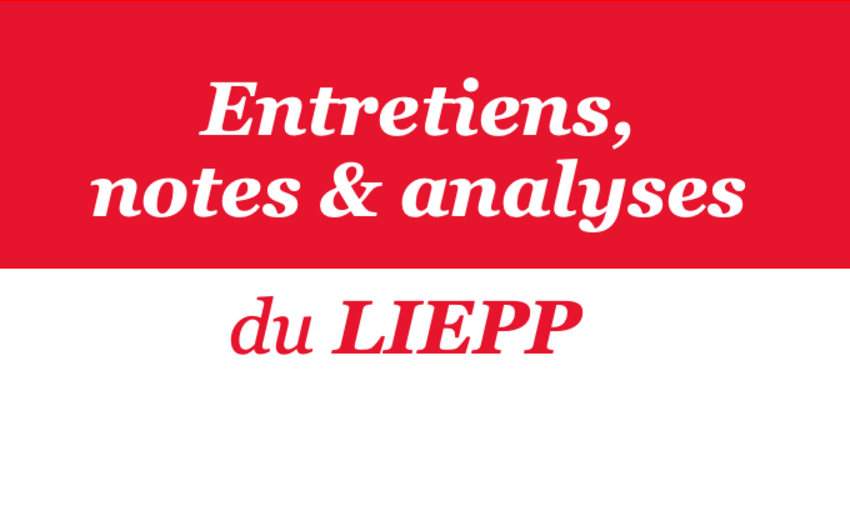
 Actualité Sciences Po
Actualité Sciences Po
On the occasion of the French legislative elections of June, the team at LIEPP (Sciences Po) discuss with Laura Morales (Professor of Comparative Politics at Sciences Po) and Claire Vincent-Mory (Post-doctoral researcher at LIEPP) how the project "Inclusive Democracies? Conceptualising and Measuring the Descriptive and Substantive Political Representation of Under-represented Groups in Democratic Parliaments (InclusiveParl)" can inform discussions and debates around the candidates running for these elections.
First, can you tell us briefly what is the focus of the project and what is its relevance?
Established representative democracies are currently facing a major crisis of citizen confidence, which manifests itself by a strong feeling among citizens that elected representatives are detached from the needs and demands of those whom they represent, and by growing electoral abstention. Oftentimes, this detachment is partly attributed (both by citizens and analysts) to the professionalisation and lack of social inclusiveness of representative institutions.
The aspiration to make public institutions more inclusive clearly affects various bodies and centres of power at the economic (e.g., boards of directors), social (e.g., mass media), and political (e.g., elected office) levels. However, it is in the political arena where the representation of the diversity of our societies has the most wide-ranging implications. Elected officials not only constitute key symbols of the allocation of power in society, they also exercise power and influence the regulation of diversity in other arenas of the public sphere.
As an illustration of this tension between aspirations and realisation, in June 2017 in France, the then newly created party led by Emmanuel Macron (La République en Marche !) won a majority of 53% of the seats in the National Assembly. This unprecedented success was partially fostered by the pledge to renew the political ranks that would enable 'normal people' to enter national politics. A similar impetus for political renewal and greater inclusiveness happened also in Italy and Spain in the mid-2010s, with the emergence of new and strong challenger parties (Movimento Cinque Stelle, and Ciudadanos and Podemos, respectively). A few years after this wave of renewal of the ranks of national legislative elites, it is unclear whether elite renewal has transferred into actual substantive change in terms of policy outputs. The project InclusiveParl addresses a number of interrelated questions around these tensions of political representation: To what extent is democratic representation biassed? Is there a link between the "visible" presence of elected representatives from marginalised and minority groups and the way and extent to which the interests and issues that these groups care about are included in the political and policy agenda? Does this link vary across European countries and over time?
The project InclusiveParl addresses these questions through an examination of the link between the visible descriptive political representation of several under-represented groups (women, youth, working classes, ethnic and migrant minorities, religious minorities, people with disabilities and LGBTI+) and their substantive political representation in four national parliaments (France, Italy, Spain and the United Kingdom).
How do you approach the examination of these challenges around political representation?
Since Hanna Pitkin's seminal 1967 book on The Concept of Representation, scholarship in political science has traditionally distinguished between descriptive, substantive and symbolic representation. Descriptive representation, applied to the political domain, refers to the ability of those present to re-present (or stand for) those absent and, hence, to mirror in one way or another (some of) their key characteristics. Substantive representation, instead, requires that the representatives act for those absent by representing their preferences, interests, demands or needs. Symbolic representation refers to the ability to stand in for, to substitute or replace the represented without necessarily resembling them or accurately corresponding to them.
Given these long-established distinctions, most of the research on the gaps in descriptive political representation revolves around the notion of presence and judges the quality of political descriptive representation based on it. By contrast, we contend that the conceptual and theoretical discussion around representation gaps needs to better incorporate an additional element to judge the ability to descriptively represent any group or category: visibility. We argue that the visibility of group identities and belonging is a necessary (but insufficient) condition to legitimately claim to descriptively represent a social group or category.
For example, an elected representative may belong to a religious denomination, or have a minority gender identity or sexual orientation without these being visible in the public arena. In such cases, the invisibility of their identities and belongings prevents them from descriptively representing such groups, despite their presence. We consider visibility as the result of various intersecting mechanisms: the material characteristics of the elected official (what is present), the agency of the official (what is presented), and voter perceptions (what is perceived).
From an empirical point of view, the project articulates the study of descriptive political representation around the measurement of the visibility of self-designation statements or of the social characteristics of elected legislators through the creation of large databases for the four countries studied since the 1990s, using detailed and comprehensive coding protocols that operationalise our approach to visibility. The various complexities in apprehending visible descriptive representation require a balanced approach: self-designation does not always match what is materially visible or voters' perceptions. In turn, substantive representation is studied through the analysis of the written questions submitted by legislators to the Executive, as well as through the selection of a number of law projects that particularly affect the interests of the studied under-represented groups.
What are the project findings at this stage and how can they inform the forthcoming French legislative elections?
At this stage we have collected biographical information on all the legislators who have held a seat in the lower chambers of parliament in France, Italy, Spain and the United Kingdom since the early 1990s for: their (apparent) sex, age, occupation prior to being elected parliamentarian, their own (and their parents') countries of birth and nationality, their self-designated ethnic identity (if any), their self-designated religious affiliation (if any) and, since the mid-2000s their self-designated gender identity and sexual orientation (if any) and their statements about any disabilities or impairments they may have [1]. These large biographical data sets contain also a wide range of information about their parliamentary tenure, the political and partisan careers, as well as their participation in parliamentary committees and activities. All of these pieces of information have been extracted from publicly available sources on the members of parliament, from the parliamentary websites, their own personal websites, their social media pages, newspaper and TV interviews, etc.
With these biographical data and the official statistics and survey data relating to the overall population in France, Italy, Spain and the United Kingdom, we can portray the extent of the representation gaps for each of the various social categories in the four countries and how they have evolved over time. We illustrate this with Figure 1, where we show the extent of the gaps for each of the eight social categories considered. The red areas demarcate the respective shares in the population, the blue areas represent the shares visibly identified among parliamentarians in the late 2000s or early 2010s, and the yellow areas in the more recent legislative terms.
Figure 1. The gap between population shares and visible descriptive presence in parliament in France, Italy, Spain and the United Kingdom for two recent parliamentary terms
Source: InclusiveParl project data set for data on legislators, several official statistics and surveys for the data on the population.
As we can see, the visible descriptive representation of the working and popular classes (which includes both skilled and low-skilled workers) and the youth present the largest gaps in all four countries, with little to no progress in recent times. Women's representation has improved in France and Italy in their most recent complete parliamentary terms, but both countries started from a worse prior point compared to the 40% representation of women in the Spanish parliament in 2011. The UK House of Commons still lags behind with only around 30% of women MPs (35% in the current 2019-2024 legislature). Overall, for France, the expanding yellow area in the graph suggests that visible descriptive representation has been gradually expanding from one parliamentary term to the next.
The considerable evolution of the inclusiveness of the French National Assembly in the last three terms, as well as the remaining visible descriptive representation gaps, are most evident in Figure 2, which provides the overtime change in the visible presence of legislators per social category compared to the population shares. While it is clear that political parties and electoral coalitions have become gradually more inclusive of women and the population of immigrant origin, the increased visibility of other social groups is still minimal (e.g. for youth and LGBTI+) or none (for the working classes, religious minorities or people with disabilities).
Figure 2. The visible descriptive representation gap in France, 2007-2022
Source: InclusiveParl project data set for data on legislators
Although the gap in visible descriptive representation is, to a certain extent, due to the absence of legislators from some of these groups (e.g. in the case of women, youth or working classes), for other groups the gap is also due to the lack of visibility of such group identities or belongings. For example, it is very likely that a larger number of French legislators are of immigrant origin or of minority religious faiths but that they have been reluctant to share the information about their ancestry and religious feelings because of the strong emphasis in France around the notion of laicité and the political taboo around communitarian identities (communautarisme). Similarly, it is quite likely that a larger number of them have some form of disability or impairment, or a non-heteronormal sexual preference or gender identity, and that they have not shared this with the public because they feel this information pertains to their private life and not their public representation role. Some may prefer not to share such details about themselves for fear of harassment or electoral penalties, and others may prefer not to be 'pigeonholed' in a given social category.
In fact, out of the 12 French 2017-2022 parliamentarians who publicly identified as LGBTI+, 7 were 'out' before the elections (58%) and the remaining 5 did so at a later stage. Similarly, out of the 11 French 2017-2022 parliamentarians who publicly declared to have a disability, only 4 (36%) did so before the 2017 elections.
Candidates to elected office may have extremely valid and legitimate reasons not to disclose personal information about themselves, and qualitative research on minority legislators demonstrates that the aforementioned reasons are recurrent concerns expressed by legislators who refrain from sharing such biographical information with the public. Nevertheless, this project shows that the pro-active agency of elected officials - what they present to the public - is an essential component of descriptive representation, as without this agency some groups will not be visibly present and without such visibility they cannot be descriptively represented. Now that parties and coalitions are presenting new candidates for the June 2022 French legislative elections, these candidates have a good opportunity to present themselves to the French electorate in a variety of ways. Opening up to the public on the various social characteristics, belongings and identities that define 'who they are' - individually, for each of them - will allow them both to help the public getting to know them better (and, hence, nurture that feeling of closeness that will facilitate voting for them) and also to provide visible descriptive representation to groups that have been traditionally marginalised from political representation.
Do prejudice and discriminatory attitudes play a role?
To a certain extent, they do, but not in obvious ways. On the one hand, the differences in the degree of parliamentary inclusiveness that we can observe across the four countries seem to run parallel to the relative degree of acceptance of (or lack of prejudice against) each of the studied groups. Figure 3 shows the percentage of citizens in each country (and for two time points, in 2012 and 2018) that say that they are completely comfortable with a person with a given characteristic holding the highest elected office in the country (i.e. President or Prime Minister). As a general rule and for most groups, the UK public is the most accepting or least prejudiced, followed by the Spanish, and then the French. For most groups, Italian citizens are (by a large margin) the least accepting or most prejudiced, and particularly of LGBTI+ minorities.
On the other hand, there is a link between inclusivity in parliaments and the public awareness of the discrimination faced by most of these under-represented groups. This has increased, as can be seen from the perceptions of widespread discrimination that citizens report on Eurobarometer surveys (Figure 4). Generally speaking, these are larger for ethnic minorities, LGBTI+ minorities and religious minorities. Interestingly enough, citizens of these four countries do not tend to consider that discrimination against young people is widespread, and the Eurobarometer surveys do not include questions about working class people or poorer people. Hence, the trend towards greater inclusivity over time matches the trend towards greater awareness of the discrimination facing these marginalized groups, but public perceptions of discrimination do not necessarily match the gap in visible presence in parliaments, given that the groups that face larger representation gaps are those for which there is a reduced awareness of them experiencing discrimination.
Figure 3. Acceptance of people with given characteristics for the highest elected office by group and country
Source: Eurobarometer 393 (2012) and Eurobarometer 83.4 (2018)
Figure 4. Public perceptions of widespread discrimination by group and country
Source: Eurobarometer 393 (2012) and Eurobarometer 83.4 (2018)
These results suggest that citizens' attitudes are connected in complex ways to how inclusive their parliaments are, as political elites reflect the underlying awareness of the need to combat discrimination at the same time that they grapple with the underlying prejudice vis à vis the supposed political abilities and trustworthiness that they will perceive (and to a certain extent share) amidst their voters. In turn, greater parliamentary inclusivity may also foster attitudinal change. Hence, achieving greater democratic inclusivity requires both initiative from political parties and elites, and changes in public perceptions and attitudes towards under-represented groups.
____
[1] We empirically appraise these social characteristics and self-designations as follows: 1) Sex: the stated or apparent sex of the legislator (male, female, other); 2) Age: the stated year of birth of the legislator; 3) Immigrant origin: whether the legislator and/or any of their parents were born in a country other than the country where the legislator was elected with foreign nationality at birth; 4) Ethnic minority: whether the legislator has self-identified with any ethnic, racial or bi-national label; 5) Religious minority: whether the legislator has self-identified with a non-Christian religion; 6) Disability: whether the legislator either has declared a disability or is visibly disabled; 7) LGBTI+: whether the legislator has declared being LGBTI+ or a trusted source has published that the legislator is LGBTI+; 7) Workers: based on the occupation of the legislator immediately prior to first joining parliament (coded into ISCO-08), and Daniel Oesch's (2006) classification of occupations based on ISCO-08 we include all occupations classified as skilled or low-skilled manual workers (ISCO groups 6 and 8), skilled and unskilled clerks (ISCO group 4 with a few exceptions and a few inclusions from groups 3 and 5), and skilled and low-skilled service workers (most of ISCO group 5 and a few from groups 3, 8 and 9).
References cited:
Oesch, Daniel. 2006. "Coming to Grips with a Changing Class Structure. An Analysis of Employment Stratification in Britain, Germany, Sweden and Switzerland.", International Sociology, 21 (2): 263-288.
Pitkin, Hanna F. 1967. The Concept of Representation. Berkeley: University of California Press.
Acknowledgements
This project and publication benefits from the support provided by the ANR and the French Government under the "Investissements d'Avenir" program LABEX LIEPP (ANR-11-LABX-0091, ANR-11-IDEX-0005-02) and the IdEx Université Paris Cité (ANR-18-IDEX-0001)
Laura Morales and Claire Vincent-Mory thank the research assistance of: Lucile Baumann, Martha Bearne, Charlotte Beddouk-Ginesy, Camille Brebion, Annina Claesson, Alma Gamper Saez, Gianni de Gennaro, Clémence Fontan-Ducret, Emma Lancha Hernández, Ester Molinaroli, Valerie Rein, and Yuxi Yi.
Qu’est-ce qu’un bon lycée ? Mesurer les effets établissements, au-delà de la moyenne

 Actualité Sciences Po
Actualité Sciences Po
L'axe Politiques éducatives du LIEPP a le plaisir de vous inviter au séminaire :
Qu’est-ce qu’un bon lycée ? Mesurer les effets établissements, au-delà de la moyenne
- Pauline Givord (DARES)
Étude réalisée avec Milena Suarez Castillo (PSE - EHESS)
Résumé :
Mesurer la capacité d’un établissement scolaire à faire progresser les élèves qu’il scolarise est un exercice complexe. Cette étude propose une discussion introductive sur les principaux indicateurs qui sont mobilisés pour identifier les « bons lycées », et l’usage qui peut en être fait. Même en se limitant aux indicateurs liés à la réussite scolaire, il rappelle qu’il est difficile de distinguer ce qui relève des effets propres de lycées du niveau initial des élèves. Des taux de réussite au baccalauréat élevé peuvent surtout refléter le degré de sélectivité du recrutement plutôt que la qualité du suivi des élèves. Par ailleurs, des indicateurs sur les taux de réussite moyens d’un établissement ne renseignent qu’imparfaitement sur la réussite de l’ensemble de ses élèves. A partir de données françaises sur le baccalauréat 2015, cette étude montre que, à composition sociale et scolaire donnée, certains lycées tendent à amplifier les écarts de niveau scolaire entre les élèves qu’ils scolarisent, tandis que d'autres parviennent à réduire les écarts de réussite, sans sacrifier le niveau moyen.
Où en est l'innovation publique ?

 Actualité Sciences Po
Actualité Sciences Po
Le LIEPP et l'École d'Affaires Publiques de Sciences Po sont partenaires du colloque de la Chaire Innovation Publique organisé par l'Institut national du service public (INSP), l'École nationale supérieure de création industrielle (ENSCI), Sciences Po et l'École Polytechnique :
Où en est l'innovation publique ?
23 et 24 novembre 2022
Lieu : 2 avenue de l'Observatoire, 75006, Paris
Ce colloque vise à croiser les regards entre praticiens et chercheurs dans le domaine de l’action publique et dans toutes les disciplines (sciences politiques, droit, histoire, sciences sociales, sciences de gestion, recherche en design, sciences du numérique, sciences comportementales…).
Il s'agit d'un événement ouvert à contributions ainsi qu'à toutes les méthodes de recherche. Une sélection des meilleures contributions présentées lors du colloque fera l'objet d'un dossier thématique et sera publiée dans la Revue française d’administration publique (RFAP).
Les intentions de communication - présentant une recherche finalisée (« recherche aboutie ») ou dont le terrain est en cours (« recherche en cours ») - devront contenir de 1 000 à 2 000 mots maximum, bibliographie et notes comprises.
Elles peuvent être rédigées en français ou en anglais.
Elles sont à déposer en ligne sur innopublique22.sciencesconf.org
1er juillet 2022 : date limite des soumissions en ligne
Retrouvez des propositions d'axes, les modalités de soumission et les dates prévisionnelles dans l'appel à communication
Developing policy evaluation in an academic setting: assets and challenges
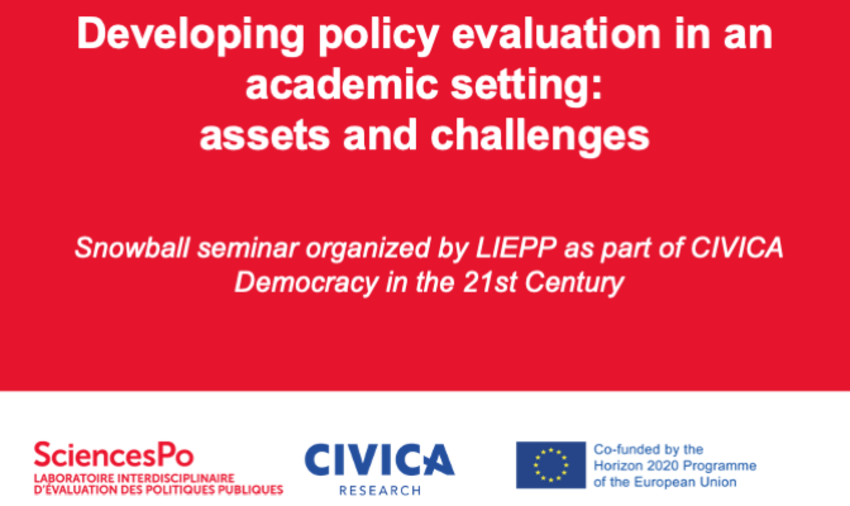
 Actualité Sciences Po
Actualité Sciences Po
This half-day snowball seminar organized at Sciences Po (Paris) aims at bringing together scholars interested in discussing the specificities of developing policy evaluation in an academic setting. The practice of evaluation involves a diversity of actors beyond academia: public administrations, parliaments, private consultants, NGOs… What are the specificities of academic evaluation, and how can we foster this practice in an academic setting?
There are arguably particular assets to developing evaluation from an academic standpoint, for example in terms of autonomy in the choice of objects of evaluation, in the possibility of developing long-term research frameworks, or in the capacity to bring “non-evaluation” academic research into the evaluative discussion. On the other hand, there are challenges to developing evaluation in an academic setting: for example, the rhythm of academic research may be too slow for evaluative needs, doing evaluation is valued to very varying degrees in the different academic disciplines, and the interdisciplinary approach often required by evaluation is a challenge when researchers themselves are evaluated based on disciplinary criteria. To what extent does producing research in an evaluative perspective favour certain types of methods, formats or research designs, such as systematic literature reviews or the promotion of more participatory approaches?
Beyond producing evaluative research, how can we make sure that the process and results of this research are conveyed to relevant stakeholders in adapted and efficient format that actually favour their impact on policymaking and civil society? Making research actionable and relevant to policymakers and civil society is a key component of policy evaluation. What publics do academic institutions target, what are the relevant formats? What role should academic institutions play in the training of policymakers, NGOs, etc., in evaluation? Can investing in training favour a broader awareness of the need for a more systematic evaluation of public policies?
The organization of this snowball seminar draws on the experience of Sciences Po’s Laboratory for interdisciplinary evaluation of public policies (LIEPP), in view of exchanging with scholars from other CIVICA member institutions on these institutional aspects of developing academic evaluation. It aims at connecting research centres and individual academic researchers involved in policy evaluation, and functioning as a breeding ground for new projects in this domain.
Location: Room K.008 (1 place Saint Thomas d'Aquin), 75007 or zoom
Mandatory registration: Register for a physical attendance - Register for a remote attendance
Programme:
2:00 - 2:10 : Introduction by Anne Revillard (Associate Professor, member of OSC and director of LIEPP, Sciences Po Paris)
2:10 - 3:40 : Roundtable 1: Developing academic evaluative research
This roundtable will reflect on the specificities of developing evaluative research from an academic setting. Who conducts evaluative research within academia? How is this research funded? What are the topics covered? How can we draw on the inputs of topic-based fundamental research to better inform evaluative practice? To what extent does producing research in an evaluative perspective favour certain types of methods, formats or research designs, such as systematic literature reviews or the promotion of more participatory approaches? This roundtable will also address the challenges to developing evaluation in an academic setting: for example, the rhythm of academic research may be too slow for evaluative needs, doing evaluation is valued to very varying degrees in the different academic disciplines, and the interdisciplinary approach often required by evaluation is a challenge when researchers themselves are evaluated based on disciplinary criteria. These are some of the questions which will be addressed in this first roundtable.
Speakers:
- Lucia Corno (Executive director, Laboratory for Effective AntiPoverty Policies (LEAP), Bocconi University, Milano)
- José Luis Fernández (Director of Care Policy and Evaluation Centre, London School of Economics, London)
- Danielle Mason (Head of Policy, What Works Centre for Local Economic Growth, Centre for Cities)
- Gaby Umbach (Robert Schuman Centre for Advanced Studies, European University Institute, Florence)
- Anne Revillard (Associate Professor, member of OSC and director of LIEPP, Sciences Po, Paris)
3:40 - 4:00: Pause
4:00 - 5:30 : Roundtable 2 : The role of academic institutions in outreach and training in evaluation
Making research actionable and relevant to policymakers and civil society is a key component of policy evaluation. This roundtable addresses the role of academic institutions in outreach and training in evaluation. Beyond producing evaluative research, how can we make sure that the process and results of this research are conveyed to relevant stakeholders in adapted and efficient format that actually favour their impact on policymaking and civil society? What publics do we target, what are the relevant formats? What role should academic institutions play in the training of policymakers, NGOs, etc., in evaluation? Can investing in training favour a broader awareness of the need for a more systematic evaluation of public policies?
Speakers:
- Thilo Bodenstein (Associate Professor at the Department of Public Policy, Central European University, Budapest)
- Andrew Cartwright (Associate Professor at the Department of Public Policy, Central European University, Budapest)
- Ioana-Roxana Melenciuc (Head of Department of International Relations and European Integration, Scoala Nationala de Studii Politice si Administrative, Bucarest)
- Diane Stone (School of Transnational Governance, European University Institute, Florence)
- Kai Wegrich (Professor of Public Administration and Public Policy, Hertie School of Governance, Berlin)
Equal Pay in Practice: Comparative Research on Policy Implementation
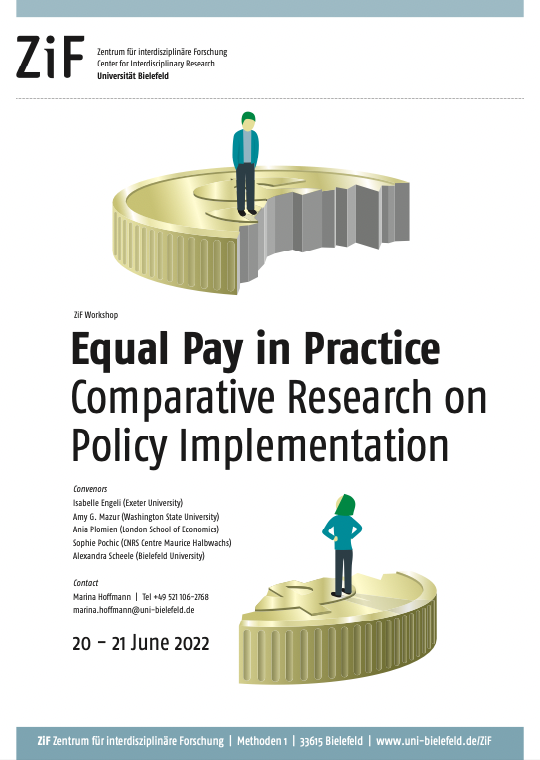
MONDAY, JUNE 20TH : COUNTRY ANALYSIS BY REGION
Short 10 minute presentations with 15 minutes of discussion after each regional grouping (s) and a question or two from the discussants to kick-off discussion.
Discussants:
- Jill Rubery (University of Manchester) (Day 1 Only)
- Iga Magda (Warsaw School of Economics)
9:00-9:30 Introductions: Goals, Framework and Agenda
Isabelle Engeli (Exeter University), Amy Mazur (Washington State University)
Sophie Pochic (CNRS Centre Maurice Halbwachs), Alexandra Scheele (Bielefeld University)
Ania Plomien (London School of Economics)
9:30-10:30 Southern Europe
Spain National : Olga Salido (Universidad Compultense Madrid)
France Firm level : Sophie Pochic (CNRS Centre Maurice Halbachs)
Italy : Elisa Chieregato (Goethe University/ University of Verona)
10:30-11:15 Germanic Europe
Austria : Stefanie Wöhl (University of Applied Sciences BFI Vienna) on-line?
Germany : Alexandra Scheele (Bielefeld University) and Andrea Jochmann-Doell (GEFA, Essen)
Belgium : Patrizia Zanoni and Veronika Lemeire
11:30-12:30 Nordic Countries
Norway : Mari Teigen and Ines Wagner (Institute for Social Research, Oslo)
Sweden National : Lenita Friedenvall (University of Stockholm)
Sweden Sub-national/ Firm Level : Anne Charlotte Callerstig (Orebro University) on-line?
Finland : Paula Koskinen Sandberg (Tampere University) – online?
13:30-14:00 EU – Sophie Jacquot (Université Saint-Louis – Bruxelles)
14:00-15:00 Central Eastern Europe
Poland : Ania Plomien (London School of Economics) and Zofia Łapniewska (Jagiellonian University in Kraków)
Albania and Montenegro : Ingrid Bego (Western Carolina University)
Croatia and North Macedonia : Andrea Spehar (University of Gothenburg)
15:00 -16:00 Anglo-American Countries
Australia Lucie Newsome (University of New England) on-line?
Canada : Francesca Scala ( University of Concordia)
UK : Susan Milner (University of Bath) - paper pre recorded?
USA National Level: Ashley English and (University of North Texas) and Meredith Neizgoda (University of North Texas)
USA Sub-National/ State: Season Hoard (Washington State University) and Sydney Smith (Washington State University)
16:30 -17h30 GROUP DISCUSSION: Lessons Learned Thus Far?
TUESDAY, JUNE 21ST : DISCUSSION OF CROSS-NATIONAL THEMES
Divided into 4 thematic sessions that come out of the first day. Each theme will have a 90 minute facilitated discussion with the discussant starting.
9:30-10:00 Organizing the Thematic Sessions
10:00-11:15 Collective Bargaining System as Implementation Practice (Actors and Empowerment)
11:30-12:30 Mix of Policy Instruments: Legislation, Court Cases, Pay Transparency (Reporting)/ Certificates/ Complaints – Outputs and Practice (Actors and Empowerment)
13:30-14:45 Multi Level/ Dimensional Issues
-
By Level of Governing Institution: EU/ National/ Sub-National ( Federal Systems)
-
By Collective Bargain Structure: Intersectoral/ Sectoral Firm Level – Practice and Empowerment
-
“ Street-Level”
15:00- 16:15 Outcomes/ The What If Problem
- Direct – Gender Wages Gaps – How to Measure
- Indirect – Change in implementers frames and social attitudes about equal pay Coffee Break
- Overall Gender Transformation
16:15 -17:30 Closing Session
La réforme des études de santé: de la genèse à la mise en œuvre

 Actualité Sciences Po
Actualité Sciences Po
Le projet REF-Santé vous invite au séminaire de restitution des résultats de l'étude :
La réforme des études de santé : de la genèse à la mise en œuvre
Mercredi 8 juin, 16h30 - 18h
Lieu : Salle C.S25, 1 place Saint Thomas d'Aquin, 75007
Programme :
La première intervention concerne la genèse et la mise en œuvre de la réforme. Le focus est mis sur le temps long de réflexions et paradigmes sur la formation des professionnels de santé, y compris l’introduction de la « Paces » (première année commune aux études en santé) et les expérimentations qui s'ensuivent. Un intérêt particulier est porté vers les acteurs de la réforme et le processus de décision entre eux.
Interventions de :
- Matthias Brunn (LIEPP, Sciences Po)
- William Genieys (CEE, Sciences Po, CNRS)
Lors de la deuxième intervention, l'équipe du projet reviendra sur la façon dont la réforme a été reçue et mise en œuvre du point de vue des usager.ères, à savoir les candidat.es aux filières PASS et L.AS, les étudiant.es et leurs parents. Elle éclairera entre autres les ressorts du mouvement de contestation de la réforme.
Interventions de :
- Alice Olivier (Clersé, Université de Lille, OSC, Sciences Po)
- Agnès van Zanten (OSC, Sciences Po, CNRS)
2nd LIEPP International scholars in policy evaluation programme

 Actualité Sciences Po
Actualité Sciences Po
LIEPP International scholars in policy evaluation programme
Call for Applications for a research stay in 2023
The Laboratory for Interdisciplinary Evaluation of Public Policies (LIEPP), a research platform at Sciences Po (Paris, France), launches its second International scholars in policy evaluation programme. The visiting fellowships funded as part of this programme (for visits in 2023) aim at fostering the incoming mobility of scholars from universities and research institutions outside of France, in order to expand LIEPP’s research activities and develop its international relations.
Created in 2011 under the "Investissements d'avenir" programme of the French National Research Agency, this laboratory is being redeployed since 2020 in partnership with Université Paris Cité.
LIEPP develops an innovative approach to evaluative research: articulating quantitative, qualitative and comparative methods; confronting disciplinary views on the evaluated policies; and promoting the cross-fertilization of methodological and theoretical inputs from different disciplines, with those from the international field of evaluation. LIEPP thus works on anchoring the evaluation approach in academic research.
This call for applications is targeted at scholars specializing in policy evaluation and who, in their universities or research institutions, are in permanent academic positions equivalent to those of Full Professor, Associate Professor, or Assistant Professor. Applications from all countries outside of France are welcome. LIEPP is open to all social science disciplines, including (but not limited to) economics, education, environmental science, management, political science, public administration, psychology, sociology.
Research activities conducted by the visiting scholar should focus on one or more of the following areas of specialization of LIEPP (see links for a description of each research program):
- Discriminations and category-based policies (research group led by Morgan Laouenan and Anne Revillard)
- Educational policies (research group led by Carlo Barone)
- Environmental policies (research group led by Charlotte Halpern)
- Evaluation of democracy (research group led by Julia Cagé and Emiliano Grossman)
- Health policies (research group led by Henri Bergeron and Thomas Rapp)
- Socio-fiscal policies (research group led by Clément Carbonnier, Nathalie Morel and Michaël Zemmour)
Applications by scholars with a broader (methodological or theoretical) specialization in evaluation are also welcome.
The selection of applications will be made by the laboratory council (composed of the research groups directors and the director of LIEPP), on the basis of the scientific quality of the project, its relevance in terms of policy evaluation, and its fit with one or more of LIEPP’s areas of specialization.
For more information about LIEPP’s activities, please check our website : www.sciencespo.fr/liepp/en
Terms & conditions
As part of this visiting programme, LIEPP is offering a stay of one month covering the expenses related to accommodation in Paris up to 3000 euros for one month. In addition, LIEPP will finance travel expenses for one roundtrip ticket to Paris in economy class (and airport transfers).
The one-month stay is to be scheduled between January 2nd, 2023 and December 15th, 2023 (except in August).
Scientific contribution
During the stay, the visiting scholars will be asked to present their work in one of our seminars, and to contribute to our LIEPP Open Access publication series via a working paper or a policy brief(1) on a topic of relevance to policy evaluation. The working paper or policy brief, whose title and abstract will be sent with your application, should be delivered within four months after the visit at the latest.
Location
Sciences Po – Laboratory for Interdisciplinary Evaluation of Public Policies (LIEPP), Paris, France. Our offices are located in the center of Paris. A part-time workspace should be available for the visiting scholar (depending on office space availability at the time of visit), as well as access to the Sciences Po Library.
Deadline for application
The deadline for application is September 8th, 2022.
The results of the selection will be made available at the beginning of October, 2022.
Application
Applications can be written in English or French.
They should be sent to liepp@sciencespo.fr [subject: Visiting programme]. They include:
-
A curriculum vitae ;
-
A cover letter explaining your interest and contribution to policy evaluation in one of the LIEPP research areas, or broader methodological or theoretical contribution to policy evaluation. Specify which project(s) you would plan to work on during your stay. Collaborations with LIEPP affiliates are encouraged. Make sure to mention precisely which LIEPP research group your fellowship would be affiliated to (see list above).
-
A pdf copy of one published (or in print) article or book chapter that illustrates your contribution to policy evaluation.
-
The first draft (or at least title and abstract) of your working paper or policy brief to be published in LIEPP’s publication series.
-
A seminar proposal: title of your presentation and abstract (the seminar may be organized around your working paper proposal).
Don’t hesitate to contact us at liepp@sciencespo.fr if you need additional information ahead of your application.
Programme Laureates :
- Sharon Baute (University of Konstanz, Allemagne)
- Meng-Hsuan Chou (Nanyang Technological University (NTU),Singapore)
- Joan Costa-Font (London School of Economics, Royaume Uni)
- Anthony Halog (University of Queensland, Australie)
- Ana Manzano (University of Leeds, Royaume Uni)
- Valérie Pattyn (Leiden University, Pays-Bas)
- Isabel Perera (Cornell University, Etats-Unis)
- Sean M. Theriault (University of Texas at Austin, Etats-Unis)
(1) LIEPP Policy Briefs are intended to present the results of research that has already been completed, and that has already been validated in the form of a research report or scientific article, for example, which should be referenced in the PB. The PB aims to present these results in a synthetic manner, emphasizing the implications for the evaluation of public policies. The PB is short (less than 5,000 words) and aims to make the results of the research accessible to a wide audience (public actors, civil society).
Call for projects « Interdisciplinary Evaluation of gender policies » (closed) 2022

 Actualité Sciences Po
Actualité Sciences Po
LIEPP call for projets 2022:
« Interdisciplinary evaluation of gender policies »
The Laboratory for Interdisciplinary Evaluation of Public Policies (LIEPP) is launching its second call for projects in partnership with the PRESAGE programme and the Cité du Genre, on interdisciplinary evaluation of gender policies. This call for projects is part of the redeployment of LIEPP in partnership with Université Paris Cité.
It aims to promote the development and valorisation of interdisciplinary academic research on evaluation of public policies, either on the design, implementation and effects of policies that explicitly address gender issues (e.g. gender equality policies, policies on gender identity and LGBTQI+ issues), or on the effects, in terms of gender, of public policies that address other issues relevant to the research themes (e.g. social and fiscal policies, migration policies, policies relating to health or disability, educational policies, environmental policies, evaluation of democracy).
Contributions should be interdisciplinary, as the call is broadly open to all disciplines that contribute to public policy thinking. Three types of projects can be submitted: interdisciplinary literature reviews, research projects, and organisation of interdisciplinary events or networks in public policy evaluation.
Each project is led by one or two researchers, at least one of whom must be a full researcher whose main affiliation is with a Sciences Po or Université Paris Cité laboratory. Funded projects have a maximum duration of 24 months, with a timetable ending in November 2024 at the latest.
Those interested in this call for projects are invited to contact LIEPP adminisitrative team to express their wish to submit a project, by sending a short message with the subject [Call for gender projects] to liepp@sciencespo.fr. LIEPP administrative team will be at their disposal to answer their questions and assist them in setting up their project (in particular, strengthening interdisciplinarity and budgeting) (NB: LIEPP administrative team will not be available between 22 July and 26 August).
Projects can be submitted in English or French.
If you want to know everything about this call in the form of FAQs, check this link.
Projects must be submitted by 18 September 2022 at the latest, using the online application form.
Incomplete or late applications will not be considered. The results will be announced at the end of October, and projects can start in November 2022.
Attached documents :
- Full text of the call for projects (pdf)
- Preview of the application form (pdf)
- Budget sheet (xls)
List of selected projects :
- Abortion in the European Union: Institutional sources of divergences and solidarities
- Assessing the criminalization of procuring in France
- Side Effects of Role MOdel interventioN (SERMON)
- Welfare State Change as a Polanyian Double Movement. How social policy change affects women across different social classes. (POLWOM)




